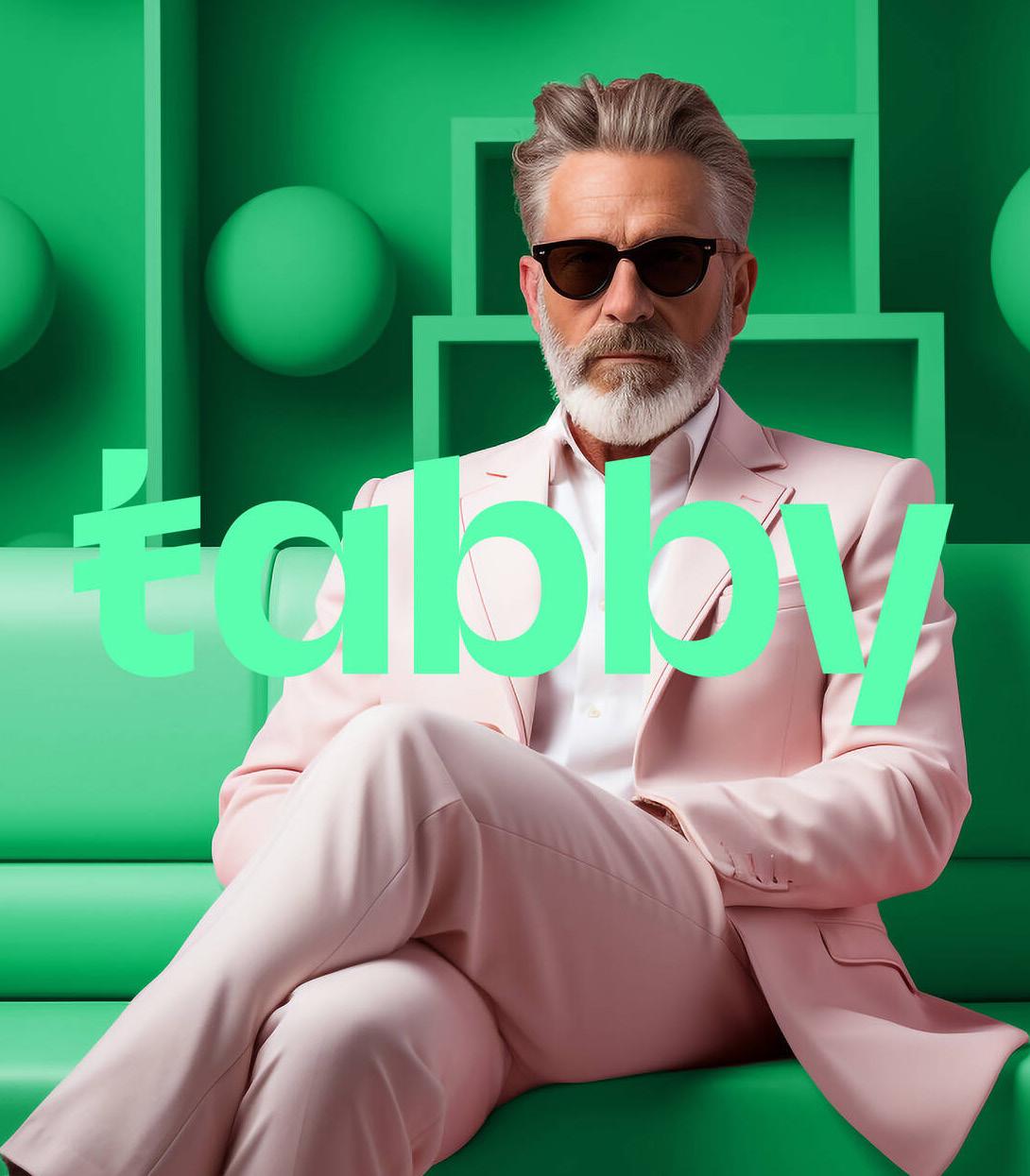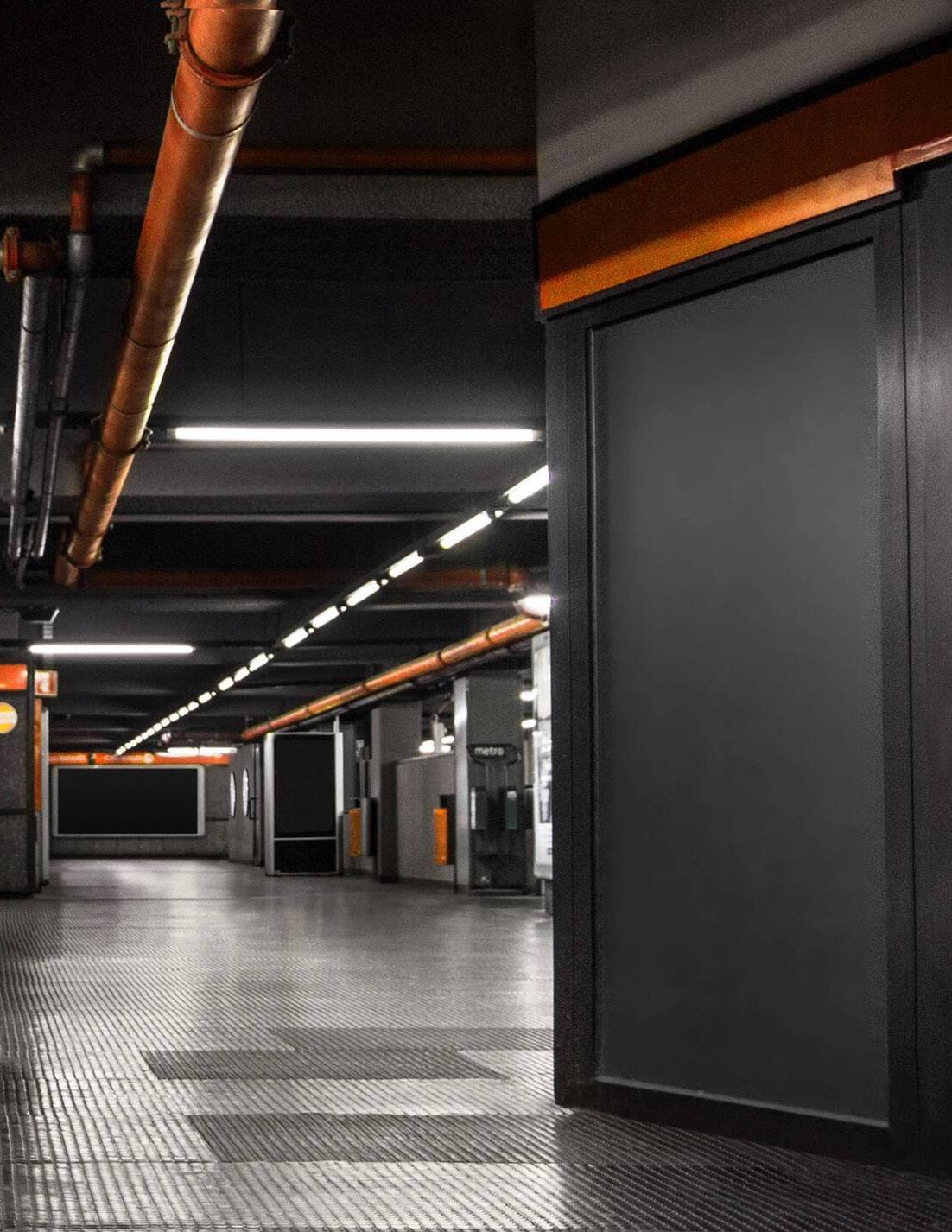










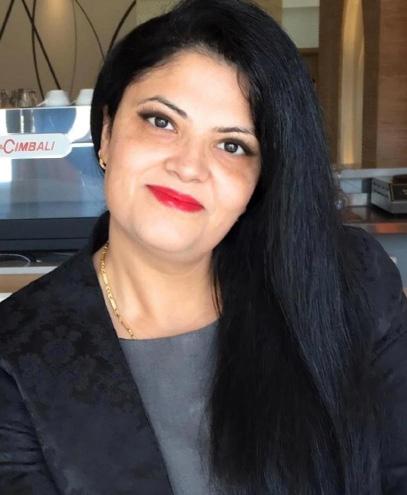

Bhavna Batra Managing Editor CEO Weekly UAE
Welcome to CEO Weekly UAE’s special edition on sustainability. In a world where the environmental challenges are becoming more pressing with each passing day, the need for sustainable practices has never been more critical. This issue is dedicated to exploring how individuals, businesses, and communities can come together to drive meaningful change and secure a greener future for generations to come.
In our Brief Section, we begin with an Introduction to Sustainable Practices in Everyday Life. This segment offers an insightful overview of how each of us can incorporate sustainability into our daily routines. From reducing waste and conserving water to making mindful choices about the products we use, every small action can contribute to a larger environmental impact. This section underscores the importance of individual efforts and how they collectively create a significant difference.
Moving to our Focus Section, we delve into the world of Green Building and Sustainable Architecture. This feature explores eco-friendly construction practices and highlights the benefits of green buildings, not only for the environment but also for the occupants. Through in-depth analysis and case studies, we demonstrate how sustainable architecture can lead to healthier living spaces, energy efficiency, and reduced environmental footprints. This section is a mustread for those interested in how the construction industry is evolving to meet the demands of a sustainable future.
In the Trends Section, we examine the intersection of Corporate Social Responsibility (CSR) and Sustainability. As businesses worldwide increasingly recognize the importance of sustainable practices, CSR has become a pivotal component of corporate strategy. This segment looks at the latest trends in how businesses are adopting sustainability, the impact of these practices on brand reputation, and the growing consumer trust in environmentally responsible companies. The insights provided here are essential for understanding how sustainability can drive business success and foster a loyal customer base.
Beyond these thematic explorations, this edition also shines a spotlight on personalities who are making significant strides in the field of sustainability. From innovative entrepreneurs to visionary leaders, we cover stories of individuals who are not only advocating for change but are also implementing groundbreaking initiatives to create a sustainable impact. Their journeys and achievements serve as inspiration for all of us to take bold steps towards a more sustainable world.
At CEO Weekly UAE, we are committed to highlighting the importance of sustainability and the role each of us plays in this global effort. Through this special issue, we aim to provide valuable insights, practical advice, and inspirational stories that motivate our readers to contribute to a sustainable future.
Thank you for joining us in this crucial conversation. Let’s work together to pioneer a sustainable future, starting today.
Enjoy the read!
Sincerely,
Bhavna Batra Managing Editor CEO Weekly UAE
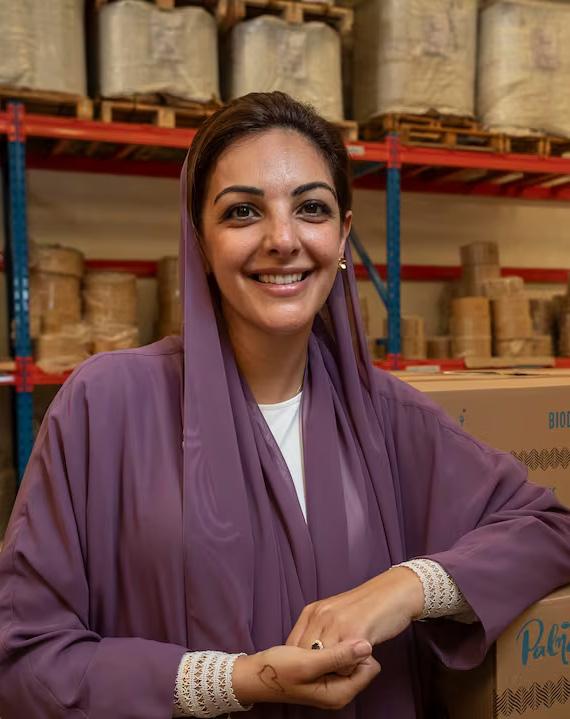
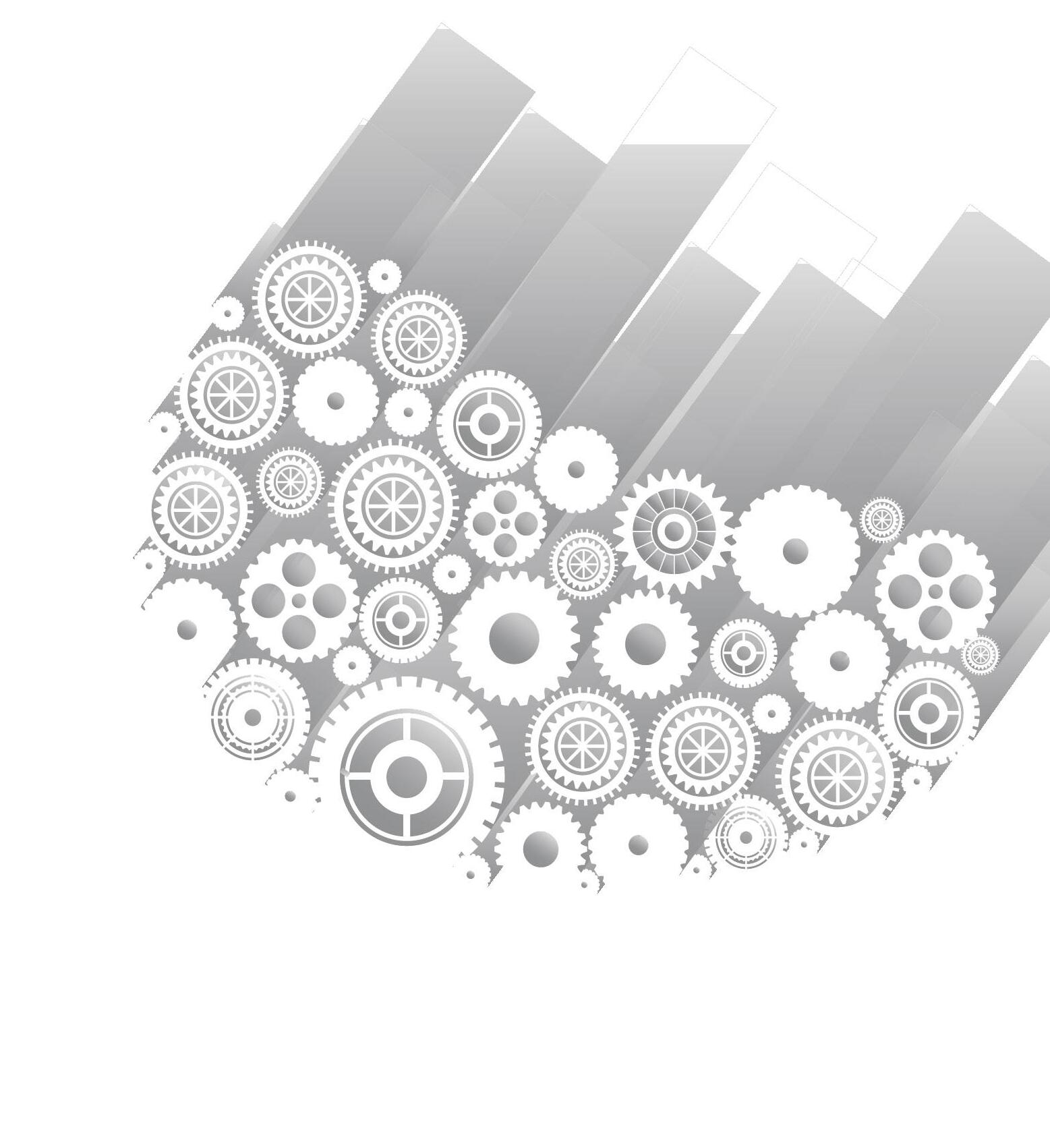
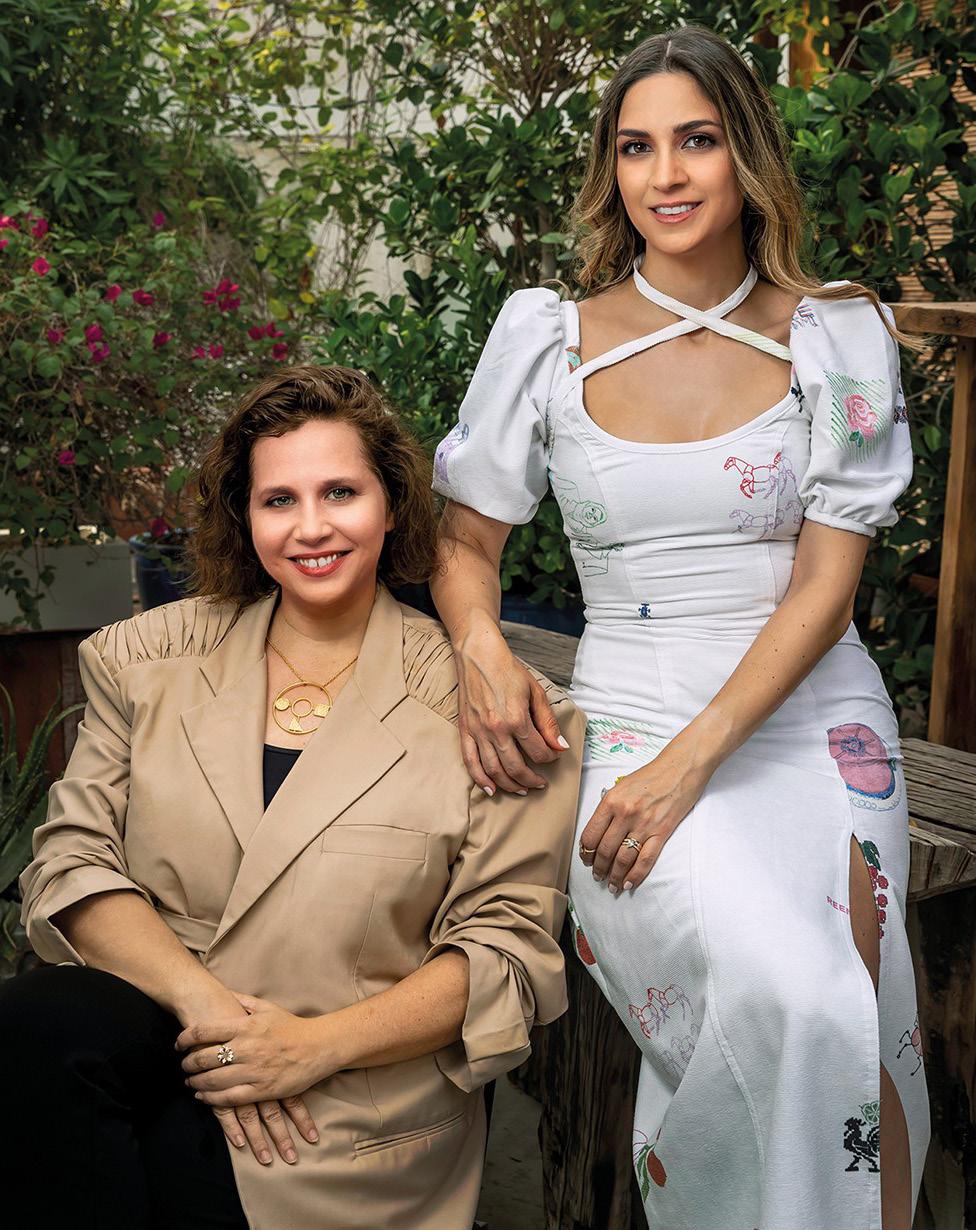

Understanding Sustainability
Reducing Waste
Energy Conservation
Sustainable Transportation
Conscious Consumerism
Water Conservation

In a world grappling with environmental challenges, the concept of sustainability has gained immense importance. From the melting ice caps to the increasing levels of pollution, the signs of environmental distress are all around us. However, the good news is that every individual has the power to make a positive impact. By incorporating sustainable practices into our daily routines, we can collectively contribute to a healthier planet. This article explores various ways individuals can adopt sustainability in their everyday lives and highlights the significance of small actions in creating a larger environmental impact.
Sustainability, at its core, is about meeting our present needs without compromising the ability of future generations to meet theirs. It encompasses three main pillars: environmental, economic, and social sustainability. While large-scale efforts and policies are crucial, individual actions are equally significant in driving change. Sustainable practices can be seamlessly integrated into our daily lives, often requiring only minor adjustments to our habits and routines.
Sustainability is no longer a buzzword; it is a necessity. As the world grapples with the effects of climate change, environmental degradation, and resource depletion, individuals are increasingly recognizing the importance of adopting sustainable practices in their daily lives. This article explores how we can incorporate sustainability into our routines and highlights the significance of small actions in contributing to a larger environmental impact.
Environmental protection focuses on reducing our ecological footprint, which includes minimizing waste, conserving energy, and preserving natural resources. By making conscious decisions about what we consume and how we live, we can significantly reduce our impact on the planet.
Social equity involves ensuring that all individuals have access to the resources and opportunities they need to live
healthy, productive lives. This includes fair labor practices, supporting local communities, and promoting diversity and inclusion.
Economic viability ensures that the actions we take to protect the environment and promote social equity are also economically sustainable. This means supporting businesses and practices that are not only environmentally and socially responsible but also economically feasible.
Incorporating sustainability into our daily routines may seem daunting, but it can start with small, manageable steps. Here are some practical ways to integrate sustainable practices into everyday life.
Waste reduction is one of the most straightforward ways to practice sustainability. Here are some strategies to minimize waste:
Single-use plastics, such as straws, bags, and bottles, are major contributors to environmental pollution. To reduce plastic waste:
• Use reusable shopping bags, water bottles, and coffee cups.
• Avoid products with excessive plastic packaging.
• Choose glass, metal, or biodegradable alternatives when possible.
Composting organic waste, such as food scraps and yard waste, reduces the amount of waste sent to landfills and provides nutrient-rich soil for gardening. Many municipalities offer composting programs, or you can start your own compost bin at home.
Recycling helps to conserve resources and reduce landfill waste. Ensure you:
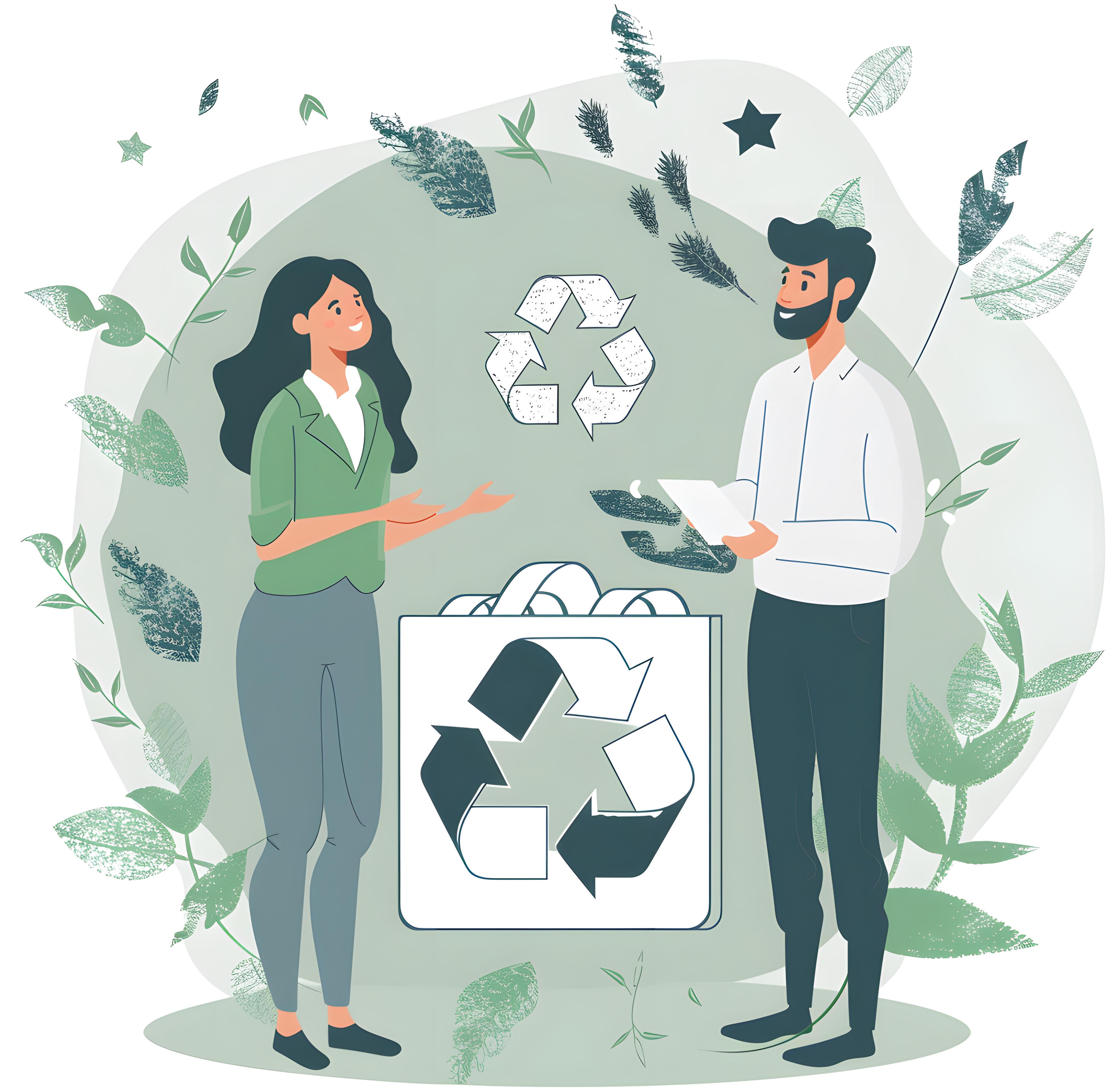

Know your local recycling guidelines and sort your recyclables accordingly.
• Clean and dry items before recycling them to prevent contamination.
• Avoid “wish-cycling,” or putting non-recyclable items in the recycling bin in the hopes they will be recycled.
Energy conservation is crucial for reducing greenhouse gas emissions and mitigating climate change. Here are some tips to save energy:
1. Use Energy-Efficient Appliances
Energy-efficient appliances use less electricity and water, leading to lower utility bills and a reduced environmental impact. Look for appliances with the Energy Star label, which indicates they meet strict energy efficiency guidelines.
2. Implement Smart Home Technologies
Smart home technologies, such as programmable thermostats and energy-efficient lighting, help to optimize energy use. These devices allow you to control your home’s energy consumption remotely and set schedules to reduce energy waste.
3. Practice Energy-Saving Habits

Simple habits can make a big difference in energy conservation:
• Turn off lights, appliances, and electronics when not in use.
• Use natural light whenever possible. Set your thermostat to an energy-efficient temperature.
Transportation
Transportation is a significant source of greenhouse gas emissions. Adopting sustainable transportation options can help to reduce your carbon footprint:
1. Walk or Bike
Walking or biking instead of driving reduces emissions and promotes physical health. For short trips, consider these eco-friendly modes of transportation.
2. Use Public Transit
Public transit systems, such as buses, trains, and subways, offer a more sustainable alternative to driving. Using public transit reduces the number of vehicles on the road and decreases overall emissions.
3. Carpool or Rideshare
Carpooling or using rideshare services reduces the number of vehicles on the road, leading to

lower emissions and less traffic congestion. Organize carpools with colleagues or neighbors to make your commute more sustainable.
Sustainable Food Choices
Food production has a significant impact on the environment. Making sustainable food choices can help to reduce this impact:
1. Eat More Plant-Based Foods
Plant-based diets have a lower environmental impact than diets high in animal products. Incorporate more fruits, vegetables, legumes, and grains into your meals.
2. Support Local and Organic Farmers
Buying locally-produced and organic foods supports sustainable agriculture practices and reduces the carbon footprint associated with transporting food long distances. Visit farmers’ markets and look for local produce in grocery stores.
3. Reduce Food Waste
Food waste contributes to greenhouse gas emissions and represents a waste of resources. To reduce food waste:
• Plan meals and buy only what you need.
• Store food properly to extend its shelf life. Use leftovers creatively to avoid throwing away food.
Sustainable Clothing Choices
The fashion industry is a significant contributor to environmental pollution and resource depletion. Making mindful clothing choices can help to mitigate this impact:
1. Buy Less, Choose Well
Focus on quality over quantity by purchasing fewer, higher-quality items that will last longer. Invest in timeless, versatile pieces instead of following fast fashion trends.
2. Shop Secondhand
Buying secondhand clothing reduces the demand for new production and helps to divert textiles from landfills. Explore thrift stores, consignment shops, and online secondhand marketplaces.
3. Support Sustainable Brands
Support brands that prioritize sustainable and ethical practices. Look for certifications such as Fair Trade, Organic, and B Corp, which indicate a commitment to social and environmental responsibility.
Sustainable Water Use
Water is a precious resource, and conserving it is essential for sustainability. Here are some ways to reduce water usage:
1. Fix Leaks
A dripping faucet or leaky toilet can waste a significant amount of water over time. Fix leaks promptly to conserve water and reduce your water bill.
2. Install Water-Efficient Fixtures
Water-efficient fixtures, such as low-flow showerheads and faucets, reduce water usage without sacrificing performance. These fixtures can significantly decrease your household’s water consumption.
3. Practice Water-Saving Habits
Adopt habits that conserve water in daily activities:
• Turn off the tap while brushing your teeth.
• Take shorter showers.
• Use a broom instead of a hose to clean driveways and sidewalks.
Sustainable Household Practices
Sustainable practices extend beyond waste reduction, energy conservation, and water usage. Here are some additional ways to make your household more sustainable:
1. Use Non-Toxic Cleaning Products
Conventional cleaning products often contain harmful chemicals that can pollute the environment and harm human health. Choose non-toxic, biodegradable cleaning products or make your own using natural ingredients such
as vinegar and baking soda.
2. Adopt a Minimalist Lifestyle
Minimalism encourages you to prioritize experiences over possessions and reduce clutter in your home. By consuming less, you decrease your environmental impact and create a more sustainable lifestyle.
3. Support Eco-Friendly Companies
Support companies that prioritize sustainability in their products and practices. Look for businesses that use sustainable materials, minimize packaging, and implement eco-friendly policies.
While individual actions may seem insignificant in the face of global environmental challenges, they collectively have a substantial impact. Here’s why small actions matter:
Small actions, when multiplied by millions of people, lead to significant changes. For example, if everyone reduced their plastic use or conserved water, the cumulative effect would be immense.
Individual actions contribute to a broader cultural shift towards sustainability. When people see others making sustainable choices, they are more likely to adopt similar behaviors. This
ripple effect can lead to widespread change. Influencing Policy and Business Practices
Consumer demand for sustainable products and practices can influence policy and business decisions. When individuals prioritize sustainability, companies and governments are more likely to implement eco-friendly policies and practices.
Taking small steps towards sustainability empowers individuals to feel responsible for their impact on the environment. This sense of responsibility can inspire further action and commitment to sustainable living.
Incorporating sustainability into everyday life is a journey that starts with small, manageable steps. By reducing waste, conserving energy, choosing sustainable transportation, making mindful food and clothing choices, conserving water, and supporting eco-friendly practices, individuals can significantly reduce their environmental footprint. The cumulative impact of these actions, combined with the cultural shift towards sustainability, can drive meaningful change. Each small action contributes to a larger environmental impact, demonstrating that everyone has the power to make a difference. By embracing sustainable practices, we can create a healthier, more sustainable future for ourselves and future generations.

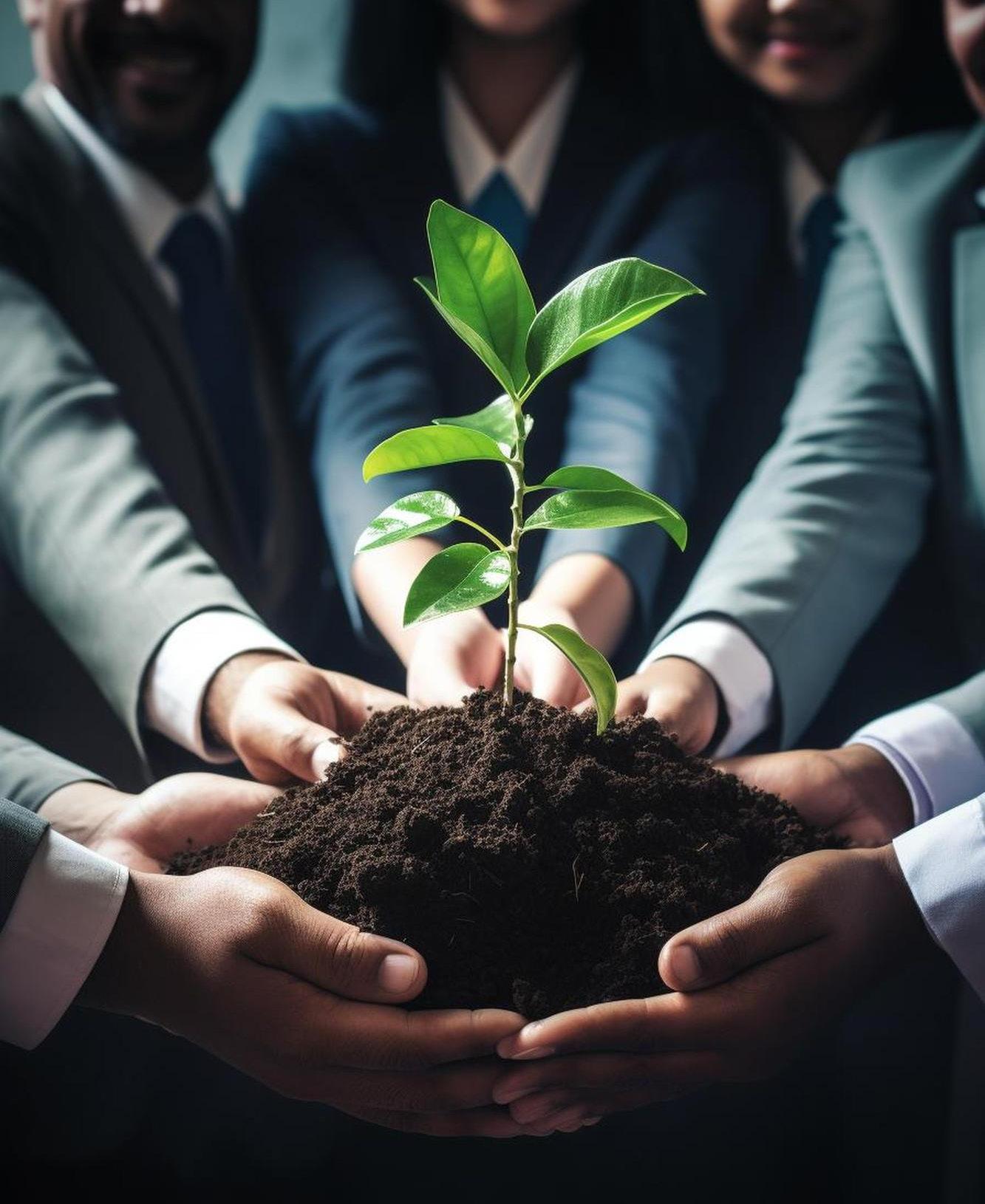
Corporate Social Responsibility (CSR) and sustainability have evolved from being mere buzzwords to becoming integral components of business strategy. In recent years, businesses across the globe have increasingly adopted sustainable practices, driven by a combination of regulatory requirements, consumer expectations, and a genuine commitment to environmental stewardship and social equity. This article delves into the trends in how businesses are adopting sustainable practices and explores the profound impact of CSR on brand reputation and consumer trust.
Corporate Social Responsibility refers to a business model in which companies integrate social and environmental concerns into their operations and interactions with stakeholders. It encompasses a wide range of practices, from reducing carbon footprints and supporting community projects to ensuring fair labor practices and promoting diversity and inclusion.
Sustainability, often used interchangeably with CSR, specifically focuses on meeting present needs without compromising the ability of future generations to meet theirs. It includes environmental sustainability, which involves reducing waste and conserving natural resources, and social sustainability, which aims to promote well-being and equity within societies.
As businesses recognize the importance of sustainability, several key trends have emerged in how they are adopting sustainable practices.
In the past, CSR activities were often seen as peripheral to a company’s main business objectives. Today, sustainability is increasingly being integrated into the core
business strategy. Companies are recognizing that sustainable practices can drive innovation, reduce costs, and open up new markets. This integration ensures that sustainability is not an afterthought but a fundamental aspect of business operations.
The circular economy model is gaining traction as businesses seek to reduce waste and make better use of resources. Unlike the traditional linear economy (take, make, dispose), the circular economy emphasizes reusing, recycling, and refurbishing materials. Companies are designing products with longer life cycles, using recycled materials, and developing take-back programs to recover and reuse products at the end of their life.
Climate change is a pressing global issue, and businesses are increasingly committing to carbon neutrality. This involves reducing greenhouse gas emissions through energy efficiency, transitioning to renewable energy sources, and offsetting remaining emissions through carbon credits or reforestation projects. Major corporations like Apple, Google, and Microsoft have pledged to achieve carbon neutrality, setting a precedent for other companies.
Transparency in sustainability practices has become crucial for building trust with stakeholders. Companies are adopting comprehensive reporting frameworks such as the Global Reporting Initiative (GRI), the Sustainability Accounting Standards Board (SASB), and the Task Force on Climate-related Financial Disclosures (TCFD). These frameworks help businesses to systematically report their environmental, social, and governance (ESG) performance, providing stakeholders with clear insights into their sustainability efforts.
Sustainable supply chain management involves ensuring that every aspect of the supply chain, from raw materials to finished products, adheres to environmental and social standards. Businesses are increasingly conducting audits, setting sustainability criteria for suppliers, and collaborating with them to improve practices. This approach helps to mitigate risks, enhance supply chain resilience, and promote sustainability throughout the value chain.
Social sustainability is gaining equal importance as environmental sustainability. Companies are emphasizing diversity, equity, and inclusion (DEI) within their workforce and promoting fair labor practices across their supply chains. Initiatives include creating inclusive workplaces, supporting minority-owned businesses, and ensuring fair wages and safe working conditions.
The adoption of CSR and sustainable practices has a profound impact on brand reputation. Here’s how:
Companies that are seen as socially and environmentally responsible often enjoy a positive brand image. Consumers, especially the younger generation, prefer brands that align with their values. Sustainable practices differentiate a company from its competitors, making it more attractive to socially conscious consumers. For example, Patagonia’s commitment to environmental sustainability has strengthened its brand image and loyalty among outdoor enthusiasts.
Trust is a critical component of brand reputation, and CSR activities can significantly enhance consumer trust. When companies are
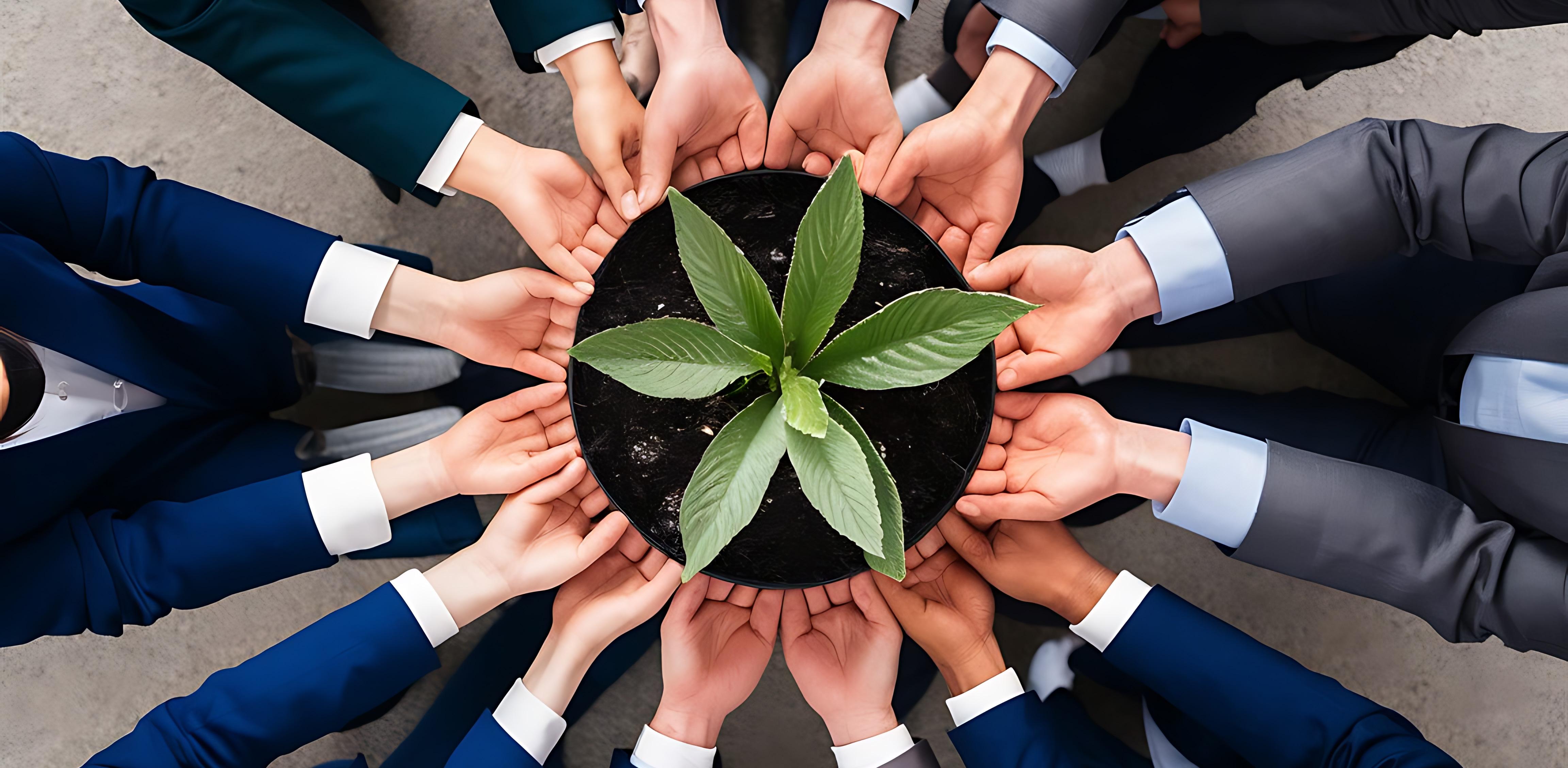
Businesses are actively engaging in community projects and social initiatives to give back to society. This includes supporting education, healthcare, and local economic development. Corporate philanthropy, employee volunteer programs, and partnerships with non-profit organizations are common ways through which companies contribute to community well-being.
transparent about their sustainability efforts and demonstrate genuine commitment, consumers are more likely to trust them. This trust translates into customer loyalty, repeat business, and positive word-of-mouth. Starbucks, with its ethical sourcing and community involvement, has built strong consumer trust and loyalty.
A company’s reputation as a responsible business can also attract and retain top talent. Employees want to work for companies that have a positive impact on society and the environment.
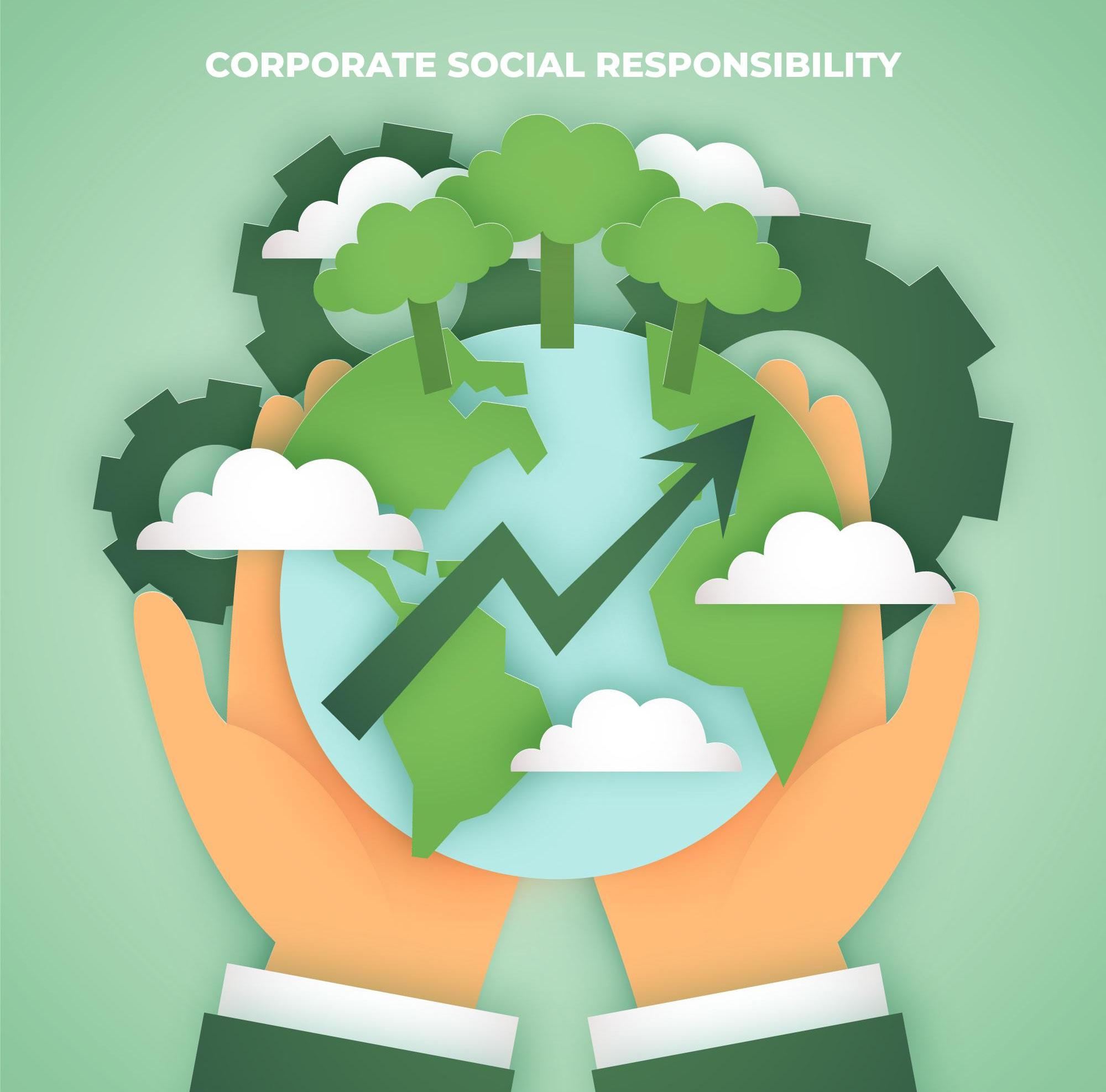
By promoting sustainability and social responsibility, companies can enhance their employer brand and create a motivated and engaged workforce. Google’s emphasis on sustainability and employee well-being makes it a preferred employer for many professionals.
Engaging in CSR helps businesses to identify and mitigate risks related to social and environmental issues. Companies that proactively address these risks are better prepared to handle crises and regulatory changes. For example, companies that adopt sustainable sourcing practices are less likely to face supply chain disruptions or reputational damage due to unethical practices.
Sustainable practices and CSR initiatives often attract positive media coverage. Media outlets are keen to highlight stories of companies making a difference, which enhances brand visibility and reputation. Positive media coverage not only reaches consumers but also investors, partners, and other stakeholders.
Investors are increasingly considering ESG factors in their investment decisions. Companies that demonstrate strong CSR and sustainability performance are more likely to attract investment. Sustainable businesses are seen as less risky and more likely to generate long-term value, which boosts investor confidence.
CSR activities provide opportunities for companies to engage with their customers and communities. This engagement fosters stronger relationships and creates a sense of shared purpose. Community involvement, in particular, helps companies to understand local needs and build goodwill.
Consumer trust is a cornerstone of successful business relationships. CSR and sustainability efforts play a vital role in building and maintaining this trust.
Consumers today are highly informed and skeptical of greenwashing (the practice of making misleading claims about the environmental benefits of a product or service). Authenticity and transparency in CSR efforts are crucial for building trust. Companies that openly share their successes, challenges, and progress in sustainability earn the respect and trust of consumers.
Businesses that actively listen to and address consumer concerns about social and environmental issues demonstrate that they value their customers’ opinions. Responsiveness to such concerns fosters trust and shows that the company is committed to continuous improvement. For instance, Unilever’s Sustainable Living Plan directly responds to consumer demand for sustainable products.
Ethical business practices are fundamental to building consumer trust. This includes fair treatment of employees, ethical sourcing, and responsible marketing. When consumers perceive a company as ethical, they are more likely to trust its products and services.
Consumers are more likely to trust companies that contribute positively to their communities. Community involvement and social impact initiatives demonstrate a company’s commitment to societal well-being. Companies like Ben & Jerry’s, known for their social activism, enjoy high levels of consumer trust.
Consistency in CSR efforts is key to maintaining consumer trust. Companies that demonstrate a long-term commitment to sustainability, rather than short-term or one-off initiatives, build a stronger foundation of trust. Consistent efforts show that the company’s values are ingrained in its culture and operations.
Satisfied consumers who trust a company are likely to become advocates, sharing positive experiences with their networks. This word-ofmouth marketing is invaluable and further reinforces consumer trust. Advocacy from trusted sources, such as friends and family, carries significant weight in influencing purchasing decisions.
Consumers have high expectations for companies regarding CSR. Meeting and exceeding these expectations is crucial for building trust. Companies that go above and beyond in their sustainability efforts not only meet consumer demands but also set industry standards.
To illustrate the impact of CSR on brand reputation and consumer trust, let’s explore some case studies of companies that have successfully integrated sustainability into their business models.
Patagonia, an outdoor apparel company, is renowned for its commitment to environmental sustainability. The company’s mission statement, “We’re in business to save our home planet,” reflects its dedication to environmental activism. Patagonia donates 1% of its sales to environmental causes and actively engages in campaigns to protect natural habitats.
Patagonia’s unwavering commitment to environmental sustainability has earned it a loyal customer base and a strong brand reputation. The company’s activism and transparency resonate with consumers who value environmental stewardship.
Patagonia’s authenticity in its sustainability efforts has built deep consumer trust. Customers trust that the company’s products are made with the highest environmental standards and that their purchases support meaningful causes.
Unilever, a global consumer goods company, launched its Sustainable Living Plan in 2010, aiming to decouple its growth from environmental impact while increasing its positive social impact. The plan focuses on improving health and well-being, reducing environmental footprint, and enhancing livelihoods.
Unilever’s commitment to sustainability has enhanced its brand reputation as a responsible corporate citizen. The company’s initiatives, such as reducing plastic waste and promoting sustainable agriculture, differentiate it from competitors.
Unilever’s transparency in reporting its progress and challenges fosters consumer trust. The company’s responsiveness to consumer concerns, such as the demand for sustainable products, further strengthens this trust.
Starbucks has made significant strides in ethical sourcing and community engagement. The company’s Coffee and Farmer Equity (C.A.F.E.)
Practices ensure that its coffee is ethically sourced, and its Community Stores initiative supports local community development.
Impact
Starbucks’ efforts in ethical sourcing and community engagement have bolstered its brand reputation. The company is seen as a leader in promoting sustainable agriculture and supporting communities.
Impact
Starbucks’ ethical sourcing practices build consumer trust by assuring customers that their purchases support fair labor practices and sustainable farming. The company’s community engagement initiatives also create a sense of shared values with consumers.
Ben & Jerry’s, an ice cream company, is known for its social activism and commitment to fair trade. The company’s mission includes promoting economic and social justice, environmental sustainability, and supporting grassroots activism.
Ben & Jerry’s strong stance on social and environmental issues has earned it a distinctive brand reputation. The company’s activism resonates with consumers who share similar values and appreciate its bold advocacy.
Consumers trust Ben & Jerry’s because of its transparency and consistency in supporting social causes. The company’s fair trade practices and environmental initiatives further reinforce this trust.
IKEA, the global furniture retailer, has made significant strides in sustainability. The company’s People & Planet Positive strategy focuses on creating a positive impact on people and the environment through sustainable products, energy efficiency, and responsible sourcing.
Impact
IKEA’s commitment to sustainability has enhanced its brand reputation. The company’s initiatives, such as using renewable energy and promot-
ing sustainable living, differentiate it as a leader in the furniture industry.
IKEA’s transparency in sustainability reporting and its efforts to make sustainable products accessible to consumers build trust. Customers trust that IKEA’s products are made with environmental and social considerations in mind.
The future of CSR and sustainability is promising, with several trends indicating a continued focus on responsible business practices.
Governments and regulatory bodies are imposing stricter regulations on environmental and social practices. Businesses will need to comply with these regulations and proactively adopt sustainable practices to avoid penalties and reputational damage.
Environmental, Social, and Governance (ESG) metrics are becoming crucial for investors, consumers, and stakeholders. Companies will need to measure and report their ESG performance transparently to attract investment and build trust.
Technological advancements, such as artificial intelligence and blockchain, are enabling more efficient and transparent sustainability practices. These technologies can help companies track and report their environmental and social impact more accurately.
Collaboration among businesses, governments, non-profits, and communities will be essential for addressing global sustainability challenges. Partnerships can drive innovation, share best practices, and amplify the impact of CSR initiatives.
Consumer demand for sustainable products and practices will continue to grow. Companies that prioritize sustainability will be better positioned to meet this demand and gain a competitive advantage.
Climate action will remain a top priority for businesses. Companies will need to set ambitious targets for reducing emissions, transitioning to renewable energy, and mitigating climate risks.
Businesses will adopt a more holistic approach to sustainability, integrating environmental, social, and economic considerations into all aspects of their operations. This approach will drive long-term value creation and resilience.
Corporate Social Responsibility and sustainability are no longer optional; they are essential for business success in the modern world. Trends in sustainable practices, such as integrating sustainability into core strategies, adopting circular economy models, and committing to carbon neutrality, are reshaping the business landscape. The impact of CSR on brand reputation and consumer trust is profound, enhancing brand image, increasing consumer loyalty, and attracting top talent.
As businesses continue to embrace CSR and sustainability, they will play a pivotal role in addressing global challenges and creating a more equitable and sustainable future. The journey towards sustainability is ongoing, and every step taken by businesses and consumers alike contributes to a collective effort for a better world. By prioritizing CSR and sustainability, companies not only enhance their reputation and build trust but also ensure their long-term success and positive impact on society and the environment.
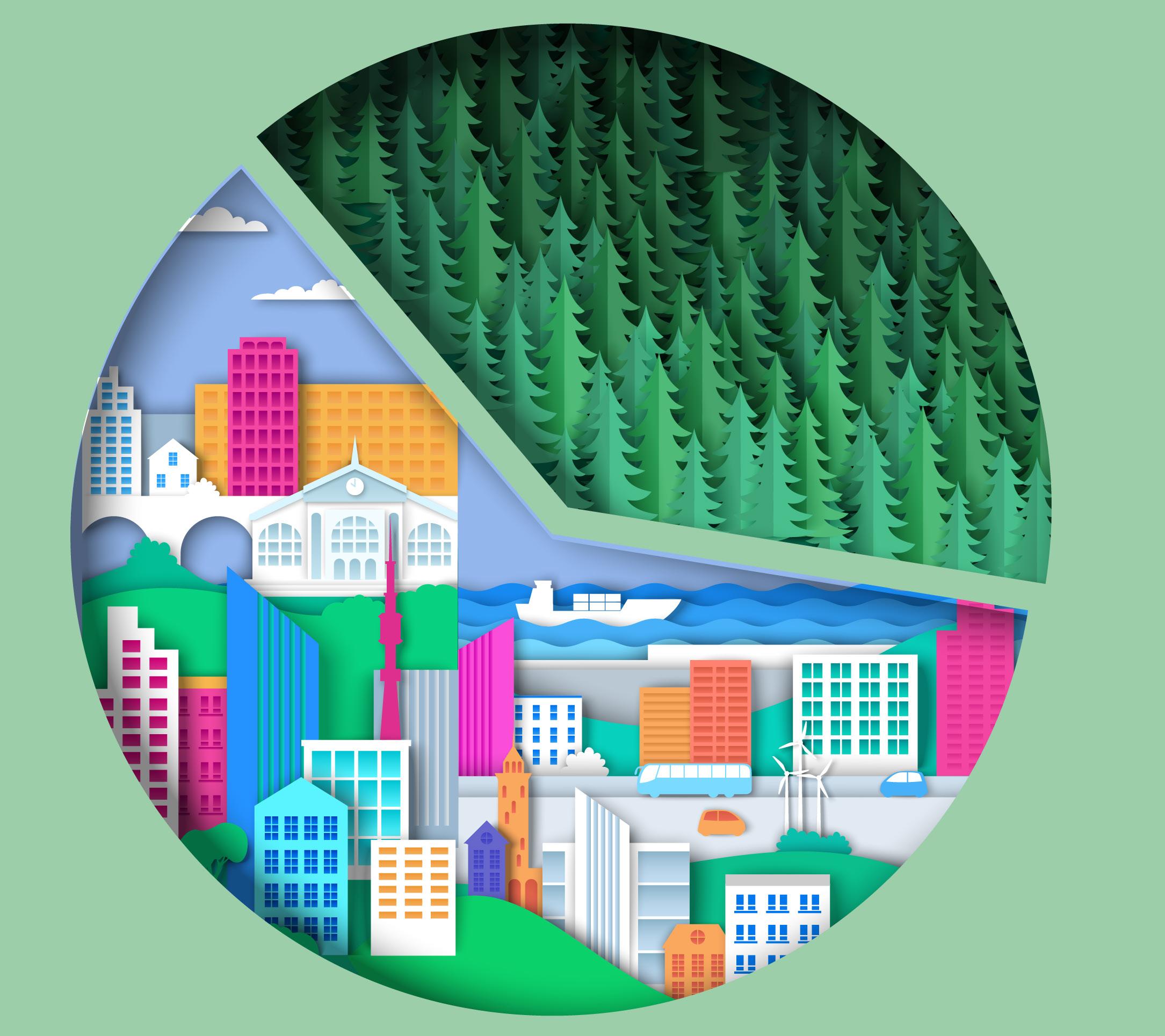
Study nature, love nature, stay close to nature. It will never fail you.
Green building and sustainable architecture represent a transformative approach to designing, constructing, and operating buildings. These practices emphasize the use of environmentally responsible and resource-efficient processes throughout a building’s lifecycle. As the world grapples with climate change, resource depletion, and environmental degradation, the adoption of green building practices is essential for creating a sustainable future. This article explores eco-friendly construction practices and the benefits of green buildings for occupants and the environment.
Green building, also known as sustainable or eco-friendly building, is the practice of creating structures that are environmentally responsible and resource-efficient. This involves using sustainable materials, reducing energy and water consumption, minimizing waste and pollution, and enhancing indoor environmental quality.
Sustainable architecture refers to the design of buildings that minimize their environmental impact through energy efficiency, use of renewable resources, and integration with the natural environment. Architects and builders who embrace sustainability principles strive to create buildings that are not only functional and aesthetically pleasing but also environmentally harmonious.
Several key principles underpin green building and sustainable architecture:
1. Energy Efficiency
Energy efficiency is a cornerstone of green building. This involves designing buildings that require less energy for heating, cooling, lighting, and operations. Techniques include:
• High-Performance Insulation: Using advanced insulation materials to reduce heat loss or gain.
• Energy-Efficient Windows: Installing double or triple-glazed windows with low-emissivity coatings.
• Efficient HVAC Systems: Utilizing high-efficiency heating, ventilation, and air conditioning systems.
• Renewable Energy Integration: Incorporating solar panels, wind turbines, and other renewable energy sources.
Water conservation is critical in green building practices. Strategies include:
• Low-Flow Fixtures: Installing low-flow toilets, faucets, and showerheads to reduce water usage.
• Greywater Recycling: Reusing greywater from sinks and showers for irrigation or flushing toilets.
• Rainwater Harvesting: Collecting and storing rainwater for landscape irrigation and other non-potable uses.
• Drought-Resistant Landscaping: Using native plants that require minimal water.
3. Sustainable Materials
The selection of sustainable materials is essential for reducing the environmental impact of construction. This includes:
• Recycled and Reclaimed Materials: Using materials that have been recycled or reclaimed from other structures.
• Locally Sourced Materials: Reducing transportation emissions by sourcing materials locally.
• Rapidly Renewable Materials: Using materials that regenerate quickly, such as bamboo and cork.
• Non-Toxic Materials: Choosing materials that do not emit harmful chemicals or pollutants.
Improving indoor environmental quality enhances the health and well-being of occupants. Key strategies include:
• Natural Ventilation: Designing buildings to maximize natural airflow and reduce reliance on mechanical ventilation.
• Daylighting: Utilizing natural light to illuminate interior spaces, reducing the need for artificial lighting.
• Low-VOC Materials: Using paints, adhesives, and finishes that have low levels of volatile organic compounds (VOCs).
• Indoor Plants: Incorporating indoor plants to improve air quality and provide a connection to nature.
Sustainable site planning involves minimizing
the environmental impact of the building site. This includes:
• Site Selection: Choosing sites that do not disturb sensitive ecosystems or valuable farmland.
• Minimizing Land Disturbance: Preserving existing vegetation and topography during construction.
• Stormwater Management: Implementing systems to manage stormwater runoff and prevent erosion.
• Transportation Access: Ensuring the site is accessible by public transportation, reducing reliance on cars.
Eco-friendly construction practices are diverse and encompass a wide range of techniques and technologies aimed at reducing the environmental impact of buildings. Here, we explore some of the most impactful practices.
Green roofs and walls are vegetated surfaces that provide numerous environmental benefits. Green roofs, also known as living roofs, are covered with vegetation and soil or a growing medium. They provide insulation, reduce the urban heat island effect, and manage stormwater runoff. Green walls, or vertical gardens, can be installed on building exteriors or interiors to improve air quality and provide aesthetic value.
Passive solar design leverages the building’s orientation, layout, and materials to maximize natural heating, cooling, and lighting. This includes designing south-facing windows to capture sunlight in the winter and shading devices to block excess heat in the summer. Thermal mass, such as concrete or stone floors, can absorb and store solar energy during the day and release it at night.
A high-performance building envelope includes the roof, walls, windows, and doors. It is designed to minimize energy loss and improve thermal comfort. Techniques include using advanced insulation materials, airtight construction, and energy-efficient windows with low-emissivity coatings.
Net-zero energy buildings produce as much

energy as they consume over a year. This is achieved through a combination of energy-efficient design and renewable energy generation. Photovoltaic panels, wind turbines, and geothermal systems are commonly used to achieve net-zero energy performance.
Prefabrication and modular construction involve manufacturing building components off-site in a controlled environment. This method reduces waste, improves construction efficiency, and allows for more precise quality control. Prefabricated components can be quickly assembled on-site, reducing construction time and disruption.
Sustainable urban planning involves designing cities and communities to minimize environmental impact and enhance quality of life. This includes promoting mixed-use development, reducing urban sprawl, and creating walkable neighborhoods with access to public transportation. Green spaces, such as parks and greenways, are integrated to provide recreational opportunities and support biodiversity.
Construction waste contributes significantly to landfills. Green building practices emphasize waste reduction and recycling. This includes:
• Construction Waste Management: Implementing waste management plans to recycle or repurpose materials.
• Deconstruction: Carefully dismantling buildings to salvage materials for reuse.
• On-Site Recycling: Using mobile recycling equipment to process waste materials on-site.
Building automation systems (BAS) use advanced technologies to monitor and control building systems, such as heating, cooling, lighting, and security. These systems optimize energy use, improve occupant comfort, and provide real-time data on building performance. BAS can be integrated with smart home technologies to further enhance energy efficiency.
Green buildings offer numerous benefits for both occupants and the environment. These benefits extend beyond immediate cost savings to include improved health, well-being, and long-term sustainability.
Green buildings are designed to enhance indoor environmental quality, which has a direct impact on occupant health and well-being. Features such as natural ventilation, lowVOC materials, and indoor plants improve air quality and reduce exposure to harmful pollutants. Access to natural light and views of nature also positively affect mental health and productivity.
Green buildings provide superior thermal comfort through advanced insulation, energy-efficient windows, and effective HVAC systems. These features maintain stable indoor temperatures and reduce drafts, ensuring a comfortable living or working environment. Acoustic insulation also minimizes noise pollution, contributing to a quieter and more peaceful space.
Energy-efficient design and appliances, along with water-saving fixtures, reduce utility bills for occupants. The integration of renewable energy sources, such as solar panels, further offsets energy costs. Water conservation measures, such as low-flow fixtures and rainwater harvesting, lower water bills and promote responsible water use.
Green buildings often have higher property values due to their energy efficiency, sustainability features, and overall desirability. They are attractive to buyers and tenants who prioritize environmental responsibility and cost savings. Additionally, green buildings may qualify for financial incentives, such as tax credits and rebates, further increasing their value.
Indoor air quality is significantly improved in green buildings due to the use of low-VOC materials, effective ventilation systems, and air purification technologies. This reduces
the risk of respiratory issues, allergies, and other health problems associated with poor air quality. Improved air quality contributes to a healthier and more comfortable living or working environment.
Green buildings significantly reduce greenhouse gas emissions through energy efficiency and the use of renewable energy sources. By minimizing reliance on fossil fuels, green buildings contribute to mitigating climate change. Energy-efficient design and renewable energy integration are key strategies for achieving a lower carbon footprint.
2. Conservation of Natural Resources
The use of sustainable materials and resource-efficient construction practices conserves natural resources. This includes using recycled materials, reducing waste, and sourcing materials locally. Sustainable forestry practices ensure that wood and other natural materials are harvested responsibly, preserving ecosystems and biodiversity.
3. Minimized Waste and Pollution
Green building practices prioritize waste reduction, recycling, and responsible disposal of construction materials. This minimizes the environmental impact of construction and reduces landfill waste. Non-toxic materials and sustainable construction methods also reduce pollution and prevent harmful chemicals from entering the environment.
4. Water Conservation
Water-efficient fixtures, greywater recycling, and rainwater harvesting reduce water consumption and promote sustainable water use. Green roofs and permeable paving help manage stormwater runoff, preventing erosion and protecting water quality. These practices are essential for addressing water scarcity and preserving freshwater resources.
5. Biodiversity and Habitat Protection
Sustainable site planning and green spaces support biodiversity and protect natural habitats. Green roofs and walls provide habitats for birds, insects, and other wildlife in urban areas. Preserving existing vegetation and integrating native plants into landscaping enhances local ecosystems and promotes biodiversity.
Challenges and Opportunities in Green Building and Sustainable Architecture
Challenges
1. Initial Costs
The initial costs of green building materials and technologies can be higher than conventional options. This includes the cost of energy-efficient appliances, renewable energy systems, and sustainable materials. However, the long-term savings in energy and water bills, as well as potential financial incentives, can offset these initial costs.
2. Lack of Awareness and Education
A lack of awareness and education about the benefits and practices of green building can hinder its adoption. Builders, architects, and consumers may not fully understand the advantages of sustainable construction or the available options. Increasing awareness through education and advocacy is essential for promoting green building practices.
3. Regulatory Barriers
Regulatory barriers, such as outdated building codes and zoning laws, can impede the implementation of green building practices. Advocating for updated regulations that support sustainable construction and streamline permitting processes is crucial for overcoming these barriers. Collaboration between government agencies, industry stakeholders, and advocacy groups is necessary to drive regulatory change.
4. Technical Challenges
Implementing advanced green building technologies and practices can pose technical challenges. This includes integrating renewable energy systems, managing building automation systems, and ensuring proper installation of energy-efficient components. Providing training and support for builders, architects, and engineers can help address these challenges and ensure successful implementation.
1.
Innovation in sustainable materials and construction technologies presents significant opportunities for green building. This includes the development of new insulation materials, energy-efficient windows, and renewable energy systems. Continued research and development in these areas will drive advancements in green building practices and make them more accessible and affordable.
Financial incentives, such as tax credits, rebates, and grants, can make green building more financially viable. Governments and organizations are increasingly offering incentives to encourage sustainable construction and energy efficiency. Taking advantage of these incentives can offset initial costs and promote the adoption of green building practices.
Consumer demand for sustainable and eco-friendly products is on the rise. This trend extends to the housing and commercial real estate markets, where buyers and tenants are seeking green buildings. Meeting this demand presents a significant opportunity for builders and developers to differentiate their offerings and attract environmentally conscious consumers.
Collaboration between industry stakeholders, government agencies, non-profits, and communities is essential for advancing green building practices. Partnerships can drive innovation, share best practices, and amplify the impact of sustainability initiatives. Collaborative efforts can also address regulatory barriers and promote widespread adoption of green building practices.
Education and advocacy are critical for promoting green building and sustainable architecture. Increasing awareness of the benefits and practices of sustainable construction can drive demand and support from consumers, builders, and policymakers. Advocacy efforts can also influence regulatory changes and promote financial incentives for green building.
Green building and sustainable architecture are essential for creating a sustainable future. Eco-friendly construction practices, such as energy efficiency, water conservation, sustainable materials, and improved indoor environmental quality, offer numerous benefits for occupants and the environment. These practices reduce the carbon footprint, conserve natural resources, minimize waste and pollution, and support biodiversity.
Despite challenges such as initial costs, regulatory barriers, and technical complexities, the opportunities for green building are significant. Innovation in materials and technologies, financial incentives, growing consumer demand, collaboration, and education can drive the adoption of sustainable construction practices.
As the world continues to face environmental challenges, the importance of green building and sustainable architecture cannot be overstated. By embracing these practices, we can create buildings that are not only functional and aesthetically pleasing but also environmentally responsible and resource-efficient. The journey towards sustainability is ongoing, and every step taken by builders, architects, and occupants contributes to a collective effort for a better world. Through green building and sustainable architecture, we can build a future that is resilient, healthy, and sustainable for generations to come.

In a world constantly evolving and expanding, the stories of remarkable women who have paved the way in their respective fields serve as powerful beacons of inspiration. These women not only break barriers but also redefine the boundaries of possibility, leading with vision, resilience, and innovation. This introduction shines a spotlight on five such extraordinary women whose achievements span various domains, reflecting their indomitable spirit and transformative impact. These five women, each a name in her field, exemplify the diverse ways in which visionary leadership and relentless pursuit of excellence can reshape industries and inspire future generations. Their stories are a testament to the power of resilience, innovation, and the enduring impact of women who dare to challenge the status quo.

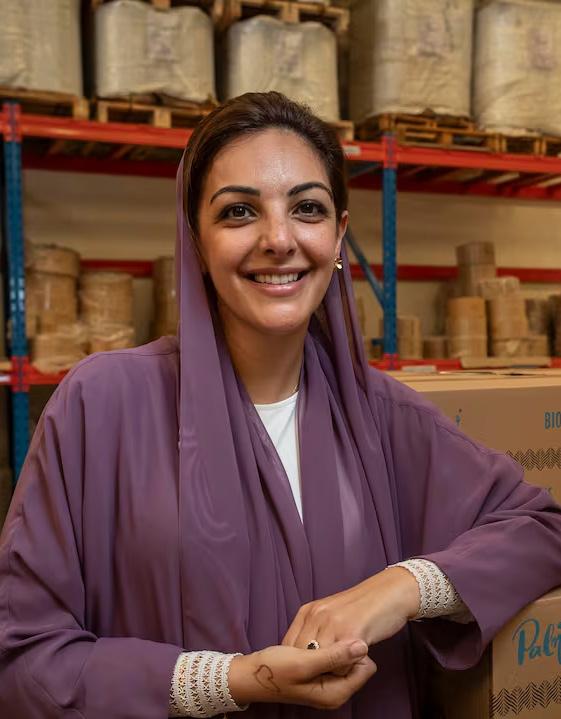
In a world of inequality and environmental challenges, two women shine as beacons of hope, catalysing positive change through philanthropy, education, and social entrepreneurship. With their distinctive journeys and impactful initiatives, Claudia Pinto and Lara Tseng, exemplify the transformative power of social entrepreneurship aligned with the United Nations Sustainable Development Goals (SDGs).
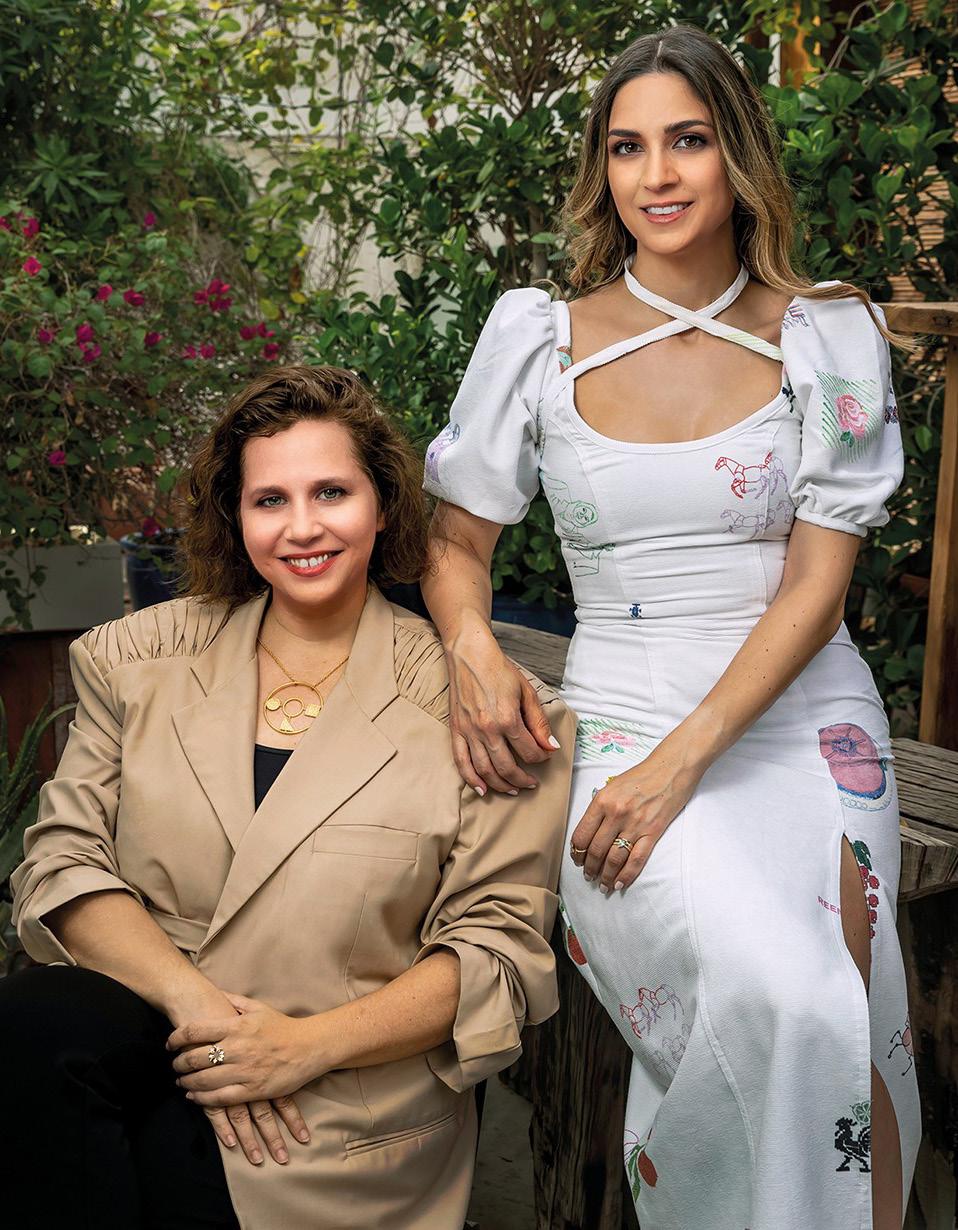
Lamis Al Hashimy, an Emirati entrepreneur and co-founder of Palmade, has emerged as a trailblazer in the field of sustainable innovation. Her journey from a finance professional to an eco-entrepreneur is a testament to her dedication to environmental sustainability and her ability to transform seemingly ordinary materials into groundbreaking products. This biography explores the life, vision, and achievements of Lamis Al Hashimy, highlighting her significant contributions to sustainable practices in the UAE and beyond.
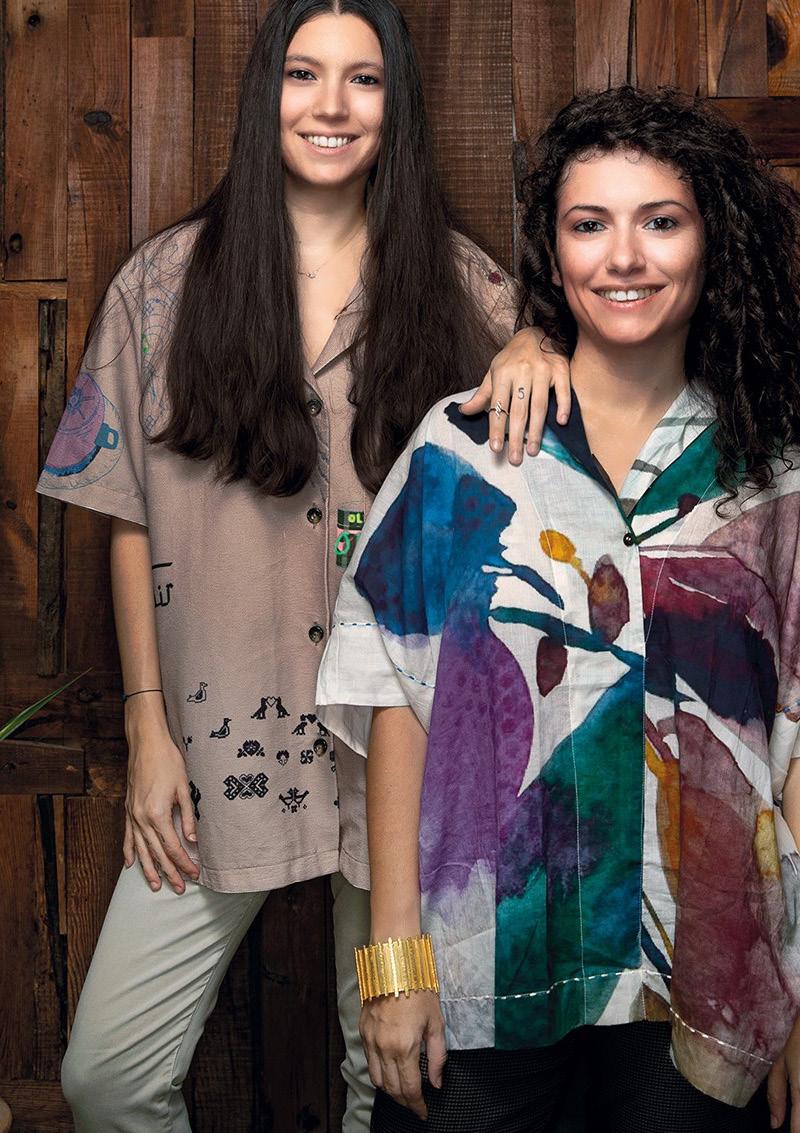
The aisles of mega-supermarkets are often overwhelming, with endless rows of plastic bottles filled with various cleaning products. On one serendipitous day, this common sight sparked a revolutionary idea in the minds of two extraordinary women, Farida El Agamy and Samar Sayegh. It was a moment of clarity that would set them on a path to transform the fast-moving consumer goods (FMCG) industry and challenge the status quo.
In the midst of a global pandemic, as the world reeled from the impacts of COVID-19, two visionary women embarked on a journey that would transform not only their lives but also the environmental landscape of the United Arab Emirates. Lara Hussein and Ceylan Uren, flatmates turned co-founders, dared to dream big and ask profound questions about their role in protecting the environment. This is the story of how they left behind successful careers to start The Waste Lab, a sustainable business venture focused on minimizing food waste and converting it into enriching compost.

UNITING FORCES FOR A BRIGHTER FUTURE: CLAUDIA PINTO AND LARA TSENG’S JOURNEYS IN EMPOWERMENT, EDUCATION, AND GLOBAL IMPACT
In a world of inequality and environmental challenges, two women shine as beacons of hope, catalysing positive change through philanthropy, education, and social entrepreneurship. With their distinctive journeys and impactful initiatives, Claudia Pinto and Lara Tseng, exemplify the transformative power of social entrepreneurship aligned with the United Nations Sustainable Development Goals (SDGs).
We are privileged to talk with two remarkable women who are transforming communities and empowering women through their innovative initiatives. Claudia Pinto, Head of Philanthropy and Sustainability Adviser of HH Sheikh Marwan bin Mohammed bin Rashid Al Maktoum, and Lara Tseng, founder of the Laraglobalpedia and Small School Support Project(SSSP), have recently announced their collaboration on a groundbreaking project aimed at fostering sustainable development and gender equality.
Claudia Pinto, founder of The Empowering Women, is dedicated to empowering women and promoting sustainable business initiatives in the Middle East. She integrates philanthropy with social entrepreneurship, offering investors opportunities to contribute to impactful projects. Her commitment aligns with the United Nations Sustainable Development Goals, particularly SDG 5 on Gender Equality. Claudia’s initiatives include vocational training and entrepreneurship for women in underserved communities, addressing SDG 4 on Quality Education and SDG 8 on Decent Work and Economic Growth. She collaborates with organizations like the CH Hoop Foundation to build schools like the “Seeds of Life” school in Zanzibar. Recently, The Female Founders Initiative Global (FFI-G) proudly announced the appointment of Ms. Claudia Pinto as the Official Ambassador for the Middle East and Africa. Her role will be instrumental in advancing FFI-G’s mission to support and uplift female entrepreneurs across these regions. She emphasizes clear vision, commitment to long-term sustainability, genuine relationships, community needs, and adaptability.
Lara Tseng, a cross-cultural explorer, has created a unique course called “Lara’s Globalpedia” for 5-15-year-olds in Taiwan. The course, based on her MBA dissertation, helps students understand different cultures through picture books in multiple languages. As students grow, the course shifts to International News and geopolitical studies. Lara’s passion for education and empowerment led her to become a podcaster, showcasing trailblazing
women. In 2021, she joined an NGO assisting Syrian refugees in Turkey, focusing on children’s rights and war-related issues. Lara initiated projects like Reading Day, Library programs, and Teacher’s training, emphasizing education as a key factor in changing destinies.
As we started our conversation, we asked Claudia about her initial inspiration to pursue a career in philanthropy and sustainability, she replied,
“My father’s dedication to community development and philanthropy sparked my passion for giving back and addressing underserved populations. Travels and exposure to global challenges solidified my resolve to make a difference. Combining philanthropy with sustainability allows me to create solutions that address immediate needs and ensure a better future for generations to come.”
She continued with providing vocational training and entrepreneurship opportunities for women in underserved communities and the initiatives align with the United Nations Sustainable Development Goals, and their importance as,
“I encountered numerous women with incredible potential who faced struggles due to limited access to education and resources. They highlighted the transformative power of vocational training and entrepreneurship in empowering women, breaking the poverty cycle, and driving positive change within their communities. This commitment promotes economic empowerment and fosters dignity and independence among women. The initiatives of HH Sheikh Marwan bin Mohammed bin Rashid Al Maktoum are designed to align with several SDGs, including quality education, gender equality, decent work and economic growth, and reduced inequalities. These goals provide a comprehensive framework for addressing pressing global issues and guide the organization’s mission to create sustainable and inclusive growth.” She told.
Then we asked Lara, to describe the inspiration behind founding the Laraglobalpedia brand, and she answered,
“Lara Globalpedia was born out of a personal journey that began when I was a full-time mother to my two children. Initially, I was deeply career-oriented, but after my children were born, I chose to stay home, dedicating my time to their upbringing. As they grew, I realized that while I had become known primarily as “Marcus’ mom” or “Mama Alicia,” I yearned to reclaim my own identity without com-
As the founder of Empowering Women, I am committed to creating sustainable initiatives that not only generate positive social impact but also promote long-term economic empowerment and equality.
promising my role as an attentive mother. Drawing on my academic background in cross-cultural influences on business and my proficiency in five languages—English, Mandarin, Russian, German, and Japanese—I started reading multilingual picture books to my children. This nurtured their understanding of diverse cultures and sparked the idea for Lara Globalpedia, a platform to extend this enriching experience to other children globally.” This idea changed many lives.
Lara’s background in Russian language and literature influenced her approach to education and curriculum development,
“My background in Russian literature and language, combined with an MBA in cross-cultural business, shaped Lara Globalpedia’s curriculum. I have created a unique educational model that simplifies complex topics, making them accessible to young children. Integrating multilingual learning enhances global awareness and cognitive flexibility.” She proudly shared.
Lara founded the Taiwan International Refugee Education Support Association and the Small School Support Project (SSSP) to help Syrian refugees.
“My journey to founding SSSP after studying global perspectives, the Middle East’s complexities, and the Syrian civil war. I was inspired by a Taiwanese community centre supporting Syrian refugees. This centre supported the refugees by providing handicraft work for women and educational courses for children. Inspired by this initiative, I began collab-
Women are the backbone of society. Their empowerment is essential for the advancement of nations

orating on humanitarian efforts in the region. The 2023 earthquake in Turkey and Syria fuelled my commitment, leading to establishing my education initiatives. This experience prompted me to make a tangible difference in the region and contribute to humanitarian efforts.My experience, after observing NGOs, identifies a gap in addressing refugees’ most critical needs. I have founded SSSP to support underserved and unnoticed groups, such as small educational initiatives, which lack the visibility to attract substantial aid from large NGOs or the UN. SSSP’s core mission is to provide targeted, meaningful support where it’s most needed, making it a unique entity in international aid.” She became emotional while talking about the 2023 earthquake.
Moving to Claudia, we asked her to talk more about the “Seeds of Life” school in Zanzibar and its impact on the local community, she answered,
“The “Seeds of Life” school in Zanzibar is a project close to my heart. This school was established to provide quality education and vocational training to children and adults in the local community. By focusing on sustainability and community development, the school has become a beacon of hope. It equips students with the skills and knowledge needed to improve their lives and contribute positively to their community. The graduates have significantly contributed to local businesses and community projects, fostering a cycle of growth and development.”
There are challenges while we collaborate across diverse regions and organizations. Claudia shared her experience,
“Fostering collaboration across diverse regions and organizations comes with its set of challenges. Cultural differences, varying expectations, and communication barriers are common hurdles. Additionally, aligning the goals and priorities of multiple stakeholders can be complex. However, these challenges can be overcome by fostering mutual respect, understanding, and open communication. Building trust and establishing common objectives are key to successful collaboration. By embracing diversity and leveraging the unique strengths of each partner, we can achieve more effective and impactful outcomes.” She clarified.
Claudia told us about balancing philanthropic efforts with her business responsibilities, and how she ensures they complement each other as,
“Balancing philanthropic efforts with business re-
sponsibilities involves prioritizing and integrating philanthropic goals into the business strategy, creating a synergistic approach that enhances social impact. This alignment allows business resources to amplify philanthropic efforts, ensuring cohesive and effective outcomes. Regularly reassessing priorities and maintaining flexibility is key to making meaningful progress in both areas.” She affirmed.
Lara was listening to her partner and we switched to Lara and asked how she balanced her work across multiple cities like Taipei, Moscow, Beijing, Shanghai, Tokyo, and Dubai and she revealed the secret,
“Balancing my professional responsibilities across different time zones in Taipei, Dubai, and Turkiye is facilitated by strategic scheduling and leveraging the time differences to my advantage. In Dubai, where I reside, I conduct my online courses in the afternoon, corresponding to evening time in Taiwan. This schedule aligns perfectly with my personal life, allowing me to dedicate time to my children after their school day ends. Meanwhile, my humanitarian work focuses on the Syrian refugees located in Turkey and within Syria. These sessions are scheduled after their working or school hours, around 10 p.m., which is also beneficial as it coincides with the time my children in Dubai go to bed. Despite often working late into the night—typically until midnight or 1 a.m. every day—I don’t start my day very early, which provides some needed flexibility. This schedule allows me to balance my daytime activities and professional tasks effectively. I emphasize the importance of genuine passion for my work in managing my demanding schedule. I believe that this passion makes long hours of a fulfilling process, providing energy and motivation to balance personal life and professional commitments, ensuring effectiveness and drive in all areas.” Lara perfectly organized her routine to manage multiple missions.
As we already discussed Lara was helping Syrian refugees and had faced some challenges in providing educational aid to empower them.
“Offering free online courses to Syrian refugees presents a challenge in addressing the common human tendency to undervalue free services. Initially, recipients express gratitude, but over time, commitment decreases due to low attendance despite high registration numbers. This pattern is common in various humanitarian contexts.We introduced a policy, that mandated registrants to pay a fee for missed classes, initially causing resistance. However, through clear explanations and community

education about the course’s value and costs, attitudes towards the policy gradually changed.Our commitment to educating the community about the value of class attendance and the consequences of non-attendance has led to increased attendance and respect for our services. This strategy has improved engagement and resource utilization, thereby enhancing the overall impact of our educational programs.” She elaborated on the policies implemented to overcome them.
Listening to these unexpected challenges Claudia told us about the strategies she uses to build genuine relationships with the communities to serve and understand their needs as,
“Building genuine relationships with the communities we serve involves prioritizing active listening and inclusive participation. We engage community members in decision-making processes through regular meetings, feedback sessions, and collaborative planning. We can better understand their needs by fostering open communication
and trust and ensuring our initiatives are relevant and impactful. Additionally, we focus on long-term engagement rather than short-term interventions, which helps build stronger, more sustainable relationships. These strategies ensure that our efforts are community-driven and aligned with the specific needs and aspirations of the people we serve.” She added.
Claudia joined hands with the CH Hoop Foundation to provide education and this influenced her approach to education and community development, she told us,
“My work with the CH Hoop Foundation has been instrumental in shaping my approach to education and community development. It has reinforced the importance of a holistic approach that integrates various support systems, such as health, education, and economic empowerment. The foundation’s focus on comprehensive and sustainable solutions has shown me the value of addressing multiple aspects of community development simultaneously.
This experience has taught me that lasting change requires a multifaceted approach, and it has inspired me to implement similar strategies in other initiatives.” She shared her learnings.
On probing Lara’s work which involves cross-cultural education and negotiation, we asked her to share an example of a particularly challenging negotiation and how she resolved it,
“I’m going to give 3 examples, representing 3 stages of my career life and also 3 different culture shocks.
Japan - Gender Roles in Business: When I was in my new job at 23 years old, I faced a situation where I was excluded from important business discussions due to gender roles. Clients preferred male colleagues, not including me in sales. This led me to speak up and ensure inclusion in discussions, despite traditional cultural expectations.
Russia - Directness in Communication: During
Empowerment isn’t just about providing support; it’s about inspiring confidence, fostering independence, and enabling others to achieve their dreams
three years working in Russia, I learned about the unique business culture. The people are direct and don’t fear being seen as rude. For instance, a customer who disagreed with our payment terms was straightforward and insisted on their conditions, which felt rude to me coming from a culture that values politeness. They even ended a meeting abruptly, but surprisingly, they came back two years later ready to work together as if nothing had happened. This taught me that being direct doesn’t ruin business relationships and people can move on quickly from disagreements.
Syria - Adjusting Communication Style: I faced language barriers in Syria and being too direct in communication with local culture, confusing using Google Translate to talk with colleagues. I also realized that my direct approach, acceptable in Russia, was too blunt for Syrians. This experience taught me the importance of adapting communication styles to accommodate different cultural expectations and maintain respect.
These situations have helped me learn the right balance in communication for successful international negotiations.” She gave us a clear picture.
Lara’s multilingual ability highly benefited her career and philanthropic endeavours. She added,
“My multilingual skills have been crucial in my career and philanthropy. I launched Lara Globalpedia in 2015, an educational program that uses multilingual teaching methods. Reading picture books in different languages to my son inspired me to use my unique ability to enrich teaching and open cultural
windows for students. Learning multiple languages has broadened my perspective on the world, and allowed me to access global resources. This fostered an open-mindedness, essential for innovation in education and philanthropy. Understanding multiple languages and associated cultures enhances empathy and communication in humanitarian work. I emphasize that understanding the context and nuances of each language fosters genuine connections and enables effective community needs addressed. Being multilingual has improved my communication and bridged cultural gaps in education and philanthropy, fostering a richer, more compassionate engagement with the world.”
Again, switching to Claudia, we asked her to discuss a project or initiative that she is particularly proud of and she answered,
“One project I am particularly proud of is our vocational training program for women in rural Uganda. This initiative has provided women with the skills and knowledge needed to start their businesses and become economically self-sufficient. The outcomes have been remarkable, with many participants now running successful enterprises and contributing to their communities’ economic growth. The ripple effect of this empowerment has been profound, fostering a sense of community and solidarity among the women. Currently, I am supporting the Sanyu African Foundation in Uganda, Kampala, which focuses on removing hunger and bringing education through arts and talent development.” She proudly listed the outcomes.
That was a commendable feedback. Being an advocate for sustainability plays a crucial role in Claudia’s philanthropic projects, and she told us about ensuring their long-term impact as,
“Sustainability is at the core of our projects. We focus on creating self-sustaining programs that can continue independently over time. This includes training local leaders, fostering community ownership, and implementing environmentally friendly practices. Ensuring long-term impact involves continuous monitoring and evaluation to adapt and improve our initiatives as needed. As an Ambassador of UAEworld, committed to “BUILDING SUSTAINABLE FUTURE SECURITY FROM THE UAE TO THE WORLD” , I prioritize sustainability to ensure that our efforts remain impactful for years to come.” She is adamant in this decision.
Then we asked Lara about the steps she takes to ensure the sustainability and effectiveness of the projects under the SSSP, and she replied,
“At SSSP, we anchor our approach in three fundamental principles to ensure sustainability and effectiveness:
1. Expertise and Familiarity: My educational background and years of experience provide a strong foundation for designing effective programs. This ensures that the projects I lead are built on knowledgeable, tried-and-tested practices that I am confident in delivering.
2. Understanding Real Needs: I invested significant time and resources in understanding the needs of the communities they serve, including Syrian refugees, to tailor their support to be truly beneficial, rather than assuming their needs from an outsider’s perspective.
3. Mutual Responsibility and Contribution: The principle of no free lunch is emphasized in our online courses, which are free but come with a commitment. Participants are expected to attend and engage actively, and if they miss a class, they must compensate by paying for missed sessions and catching up before the next one. This policy teaches responsibility and ensures that participants do not take the opportunities for granted.
These three pillars help us create a sustainable model where beneficiaries are not just passive receivers but active participants in their educational journey. This mutual engagement ensures that our efforts are received, respected, and valued, leading to more effective outcomes and fostering a cycle of positive contributions back into the community.” She listed the practices implemented.
Lara started the PEACE EDUCATION program and she told us about its key components and its impact on the children she teaches,
“The Lara Globalpedia educational program focuses on understanding and respecting diversity from a young age. It begins with multilingual picture books to introduce children to different cultures and languages. As they grow, the curriculum expands to geography, history, and geopolitical situations, fostering critical thinking and a global perspective. The program emphasizes the normalcy of difference and diversity, teaching children that variations in skin colour, language, culture, and perspective are normal and not feared. The Lara Globalpedia program aims to instill peace education in children, teaching them to value and respect differences, and fostering an environment where diverse ideas coexist harmoniously. This approach helps children grow into adults who seek understanding over con-

flict, respect over intolerance, and peace over discord, reducing misunderstandings and contributing to a more peaceful world where differences are celebrated rather than feared.”
Lara launched a podcast to celebrate successful women and named it “Laraglobalpedia” to talk about Education, Global perspectives, women’s empowerment, and so on, she added its significance as,
“The podcast series, called ‘HerStoryYourStory’, tells the stories of women who have influenced history and continue to do so. It features women like Malala Yousafzai, who advocates for children’s education rights, Hedy Lamarr, whose inventions laid the groundwork for modern wireless communications including Bluetooth, and Fatima al-Fihri, who founded one of the world’s first universities in the 9th century, who have overcome societal and cultural barriers to make significant contributions. The series, originally in Mandarin, aims to inspire Taiwanese students and emphasizes that gender should not limit one’s capabilities. In 2023, it won the Excellence in Media Award for Best Women’s Empowerment Podcast and I expanded to English and Arabic editions to reach a broader audience. This is the world’s first podcast featuring synchronization in three different languages. The series, available globally, acts as a catalyst for change, encouraging a new generation to pursue their dreams with conviction.” She shared her vision.
On the other side, we have Claudia, who aligns her business goals with philanthropic values. According to Claudia, “To stay adaptable in our philanthropic approach, we regularly assess the impact of our projects, gather feedback from the communities we serve, and stay informed about global trends and best practices. Flexibility, continuous learning, and evolving strategies are crucial for maintaining relevance and effectiveness. Promoting gender equality is integral to our work. We achieve this by providing equal opportunities for education and vocational training, advocating for women’s rights, and creating empowerment programs. By fostering leadership and entrepreneurship among women, we aim to build a more inclusive and equitable society, benefiting both individuals and communities.” She disclosed her approach to philanthropy and promoting gender equality within the communities she supports.
Claudia, an expert in business and philanthropy, learned a lot of things from her experiences and shared some key lessons with us,

“Resilience and adaptability are crucial, challenges are inevitable, but staying committed to your mission and being flexible in your approach can help overcome them. Collaboration is powerful—working with various stakeholders can amplify your impact. Understanding the unique needs and contexts of different communities is essential for creating effective solutions. Finally, integrating business acumen with philanthropic goals enhances the efficiency and sustainability of initiatives.” She emphasized the importance of sustainable collaborations.
As Lara also had the same views related to their joined missions. We asked Lara if integrating topics like children’s rights, war, and peace into the curriculum impacts young learners.
“At Lara Globalpedia, I aim to introduce these subjects in a manner that resonates with young minds while ensuring that they feel safe and supported.
1. Simplifying Concepts: I simplify complex topics like children’s rights into simpler, everyday
concepts like the right to play, learn, and be safe, making the abstract idea more tangible for young children.
2. Storytelling: Storytelling is a powerful tool for children to learn about various topics in an engaging and less intimidating way. For example, teaching about “Refugee” involves reading a picture book by Sanna Francesca, which combines storytelling with drawing to make the story feel presentable and engaging for the children.
3. Relating to Personal Experiences: By connecting children’s personal experiences with these topics, they can understand their relevance and understanding of these issues. Discussing how they feel when kindly treated or how they solve conflict with their friends can help bridge the gap to larger issues like peace.
4. Encouraging Empathy and Discussion: The curriculum encourages open dialogue and empathy among children, fostering a deeper understanding
of issues. Through stories, relatable examples, and interactive conversations, young learners grasp complex subjects in an accessible and meaningful way. The goal is to cultivate a generation that values peace, understands rights, and contributes positively to society.”
After listening to Lara, Claudia talked about the success rate of their philanthropic projects, “Measuring the success of our philanthropic projects and their alignment with the SDGs involves a combination of quantitative and qualitative metrics. We track specific outcomes, such as the number of people trained or increases in income levels, while also gathering personal stories and feedback from beneficiaries. Regular evaluations ensure our projects align with the SDGs and achieve meaningful progress. Additionally, we conduct impact assessments to understand the long-term effects of our initiatives and adjust our strategies accordingly. This comprehensive approach helps us stay focused on achieving our goals and maximizing our impact.” She detailed to us the success rate.
Then Claudia shared an example of a successful partnership that has significantly enhanced her impact,
“We measure the success of our philanthropic projects through a combination of quantitative and qualitative metrics, including tracking specific outcomes like the number of people trained and income level increases, alongside gathering personal stories and feedback from beneficiaries. Regular evaluations and impact assessments ensure alignment with the SDGs and help us adjust strategies for long-term effects. For example, our partnership with local NGOs in Zanzibar, particularly through the “Seeds of Life” school, has significantly enhanced our impact. These organizations’ deep-rooted community connections have enabled us to implement more effective, culturally sensitive programs, combining resources and expertise for a more substantial and lasting impact. Seeing the tangible impact of our work on individuals and communities keeps me motivated. Every success story, every improved life, and every positive change reaffirms the importance of what we do. The gratitude and resilience of the people we help inspire me to keep pushing forward, even when faced with challenges. Knowing that our efforts contribute to building a more equitable and sustainable world is a powerful driving force. Additionally, my role as the Head of Philanthropy and Sustainability Adviser of HH Sheikh Marwan bin Mohammed bin Rashid Al Maktoum, along with my ambassadorship with
UAEworld, reinforces my commitment to “BUILDING SUSTAINABLE FUTURE SECURITY FROM THE UAE TO THE WORLD” . She emphasized.
Success stories are always inspiring and fuel our drive for future endeavours. Claudia shared a personal story that highlights the impact of her work on an individual,
“One story that stands out is about a young woman named Amina from rural Uganda. She participated in our vocational training program, learning tailoring skills. With her new skills, she started a small business, which not only supports her family but also employs several other women in her community. Amina’s success has inspired others in her village to pursue similar paths, creating a ripple effect of positive change. Her story exemplifies the transformative power of education and empowerment. Currently, I am supporting the Sanyu African Foundation in Uganda, Kampala, focusing on removing hunger and bringing education through arts and talent development.” She said with pride.
We always want to ensure that the voices and needs of the community members are heard and addressed in our projects, and Claudia said,
“Ensuring that community voices are heard involves active listening and inclusive participation. We prioritize engaging community members in the planning and implementation of our projects through regular meetings, surveys, and feedback sessions. By involving them in decision-making processes, we ensure that our initiatives address their actual needs and aspirations. Building trust and fostering open communication are essential. Additionally, we employ participatory approaches to ensure that the community feels a sense of ownership and responsibility towards the projects, which enhances their effectiveness and sustainability.”
Moving to Lara, we asked her to describe a memorable moment or success story from her work with the SSSP in Taiwan,
“One significant and memorable achievement with the SSSP was the successful organization and execution of a film screening in Taiwan during Chinese New Year in February this year. We secured the rights to publicly show the Canadian animated film ‘Dounia,’ which poignantly illustrates the impact of war through the eyes of a 6-year-old girl from Aleppo, Syria. The event was a tremendous success, selling out 500 tickets rapidly and attracting a diverse audience spanning three generations. The film deeply touched attendees, broadening their un-
I
am a passionate advocate for empowering women and fostering sustainable business initiatives. I believe in creating opportunities that enable women to thrive in all aspects of life, while also promoting practices that ensure long-term environmental and economic sustainability. My goal is to contribute to a world where both women and sustainable enterprises can flourish together.
derstanding of the realities of war and the plight of refugees. This raised awareness and fostered a profound connection between Taiwanese audiences and distant geopolitical issues. SSSP successfully delivered 1,400 school bags to children in the Al-Rukban camp during Al-Eid Fitr, a besieged and isolated area near the border of Syria, Iraq, and Jordan. Despite logistical challenges, the initiative fostered collaboration among conflicting groups, demonstrating how humanitarian efforts can transcend political and logistical barriers. This achievement underlines the mission of SSSP to bridge gaps, raise awareness, and deliver real help to vulnerable populations, highlighting the power of community and international cooperation in achieving seemingly impossible goals.” She joyously added.
Lara then shared the most rewarding aspect of her journey as an educator and philanthropist.
“Witnessing the growth and transformation of students. For instance, hosting an online English graduation party for the first cohort of our English language program under SSSP was particularly fulfilling. These students progressed from minimal English proficiency to actively participating in work meetings in English. Such successes affirm my belief in education as a powerful catalyst for change, aligning perfectly with my
mission. Each student’s achievement is a testament to the impact of our efforts.” She added.
Lara shared how she incorporates her experiences and challenges as a woman into her work and teachings. “I emphasize resilience, self-care, and the importance of maintaining physical and mental health while balancing personal and professional roles. Lara believes societal expectations often create guilt and conflict for women pursuing careers. By encouraging women to embrace their unique talents and aspirations, she aims to foster personal fulfillment and professional success. Setting clear goals and building supportive networks are crucial. My goal is to inspire and empower women and girls to pursue their passions confidently, translating my experiences into lessons of empowerment and self-respect.
Claudia expressed her thoughts in a beautiful way as a poem and shared it with us. She delighted us with a few lines. The name of the poem is ‘In the Heart of Humanity’ and it begins as,
In the heart of humanity, a fire glows bright, A beacon of hope in the darkest of night. With hands interwoven, we stand side by side,
In compassion and kindness, our spirits abide. From deserts to oceans, across every land, We build bridges of peace, with love we expand. In faces diverse, our unity lies, Under one sky, we all share the same sunrise. (continues..)
This poem captures the essence of humanity, emphasizing unity, compassion, and the collective strength we have when we come together.
Before wrapping up we asked Claudia to share her future goals for philanthropic and sustainability efforts, she added,
“Our future goals include expanding our vocational training programs to reach more regions, increasing our focus on environmental sustainability, and continuing to align our efforts with the SDGs to maximize our global impact. Additionally, we plan to strengthen our partnerships with local and international organizations to enhance our reach and effectiveness. As the Head of Philanthropy and Sustainability Adviser of HH Sheikh Marwan bin Mohammed bin Rashid Al Maktoum, I am also dedicated to qualifying projects and innovations to move to Dubai and become part of the most sustainable city in the world.”
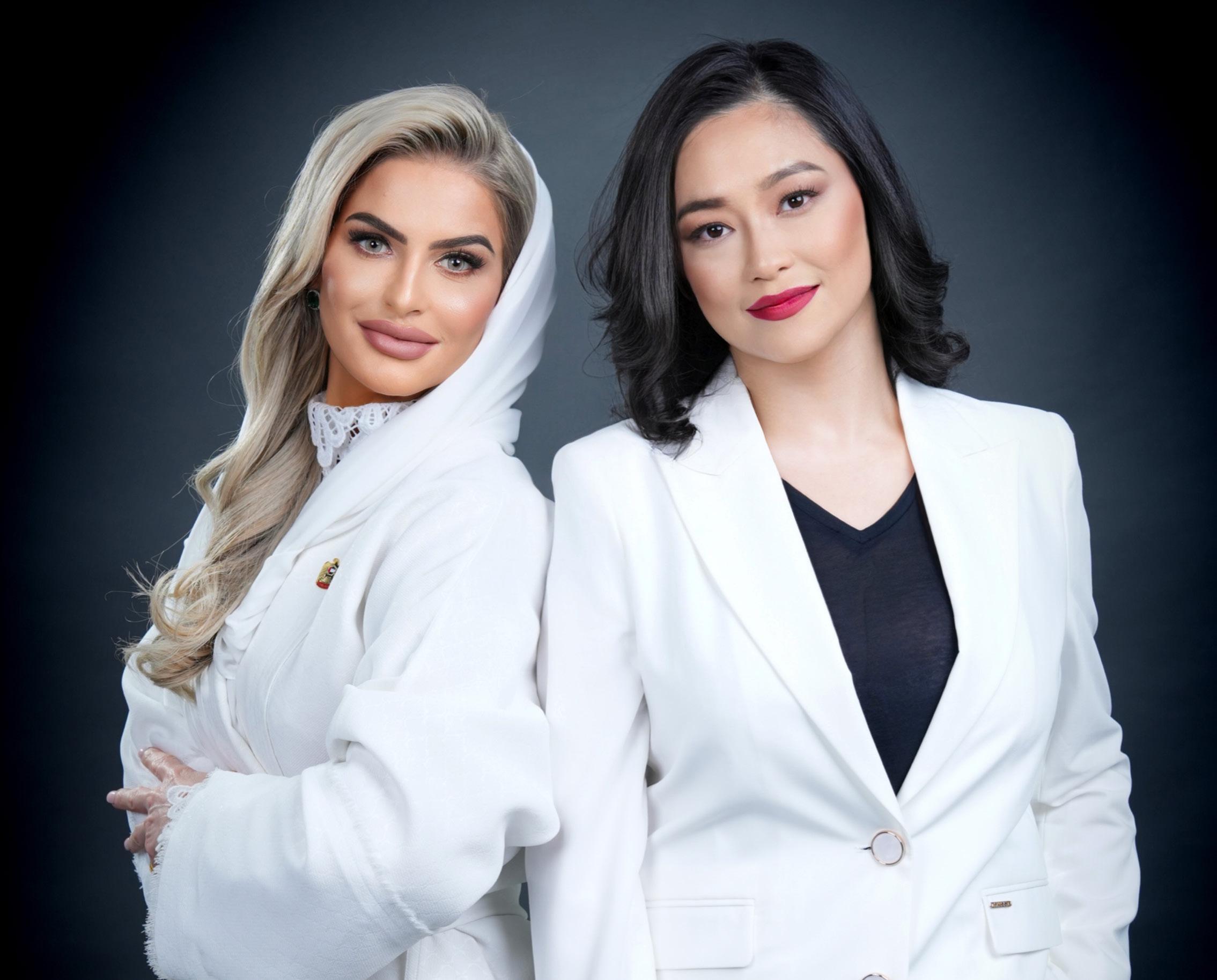
The combination of philanthropy and social entrepreneurship leads to a multifaceted approach to societal impact:
Economic Empowerment: By supporting women entrepreneurs and businesses that focus on women’s needs, we boost economic growth and stability.
Education and Skill Development: Investing in education and vocational training empowers women with the knowledge and skills they need to succeed.
Healthcare and Well-being: Ensuring access to healthcare services improves the overall well-being of women, enabling them to lead healthier and more productive lives.
Advocacy and Rights: Promoting women’s rights and advocating for gender equality creates a fairer society where everyone has the opportunity to succeed.
Claudia wants to shed light on a start-up named
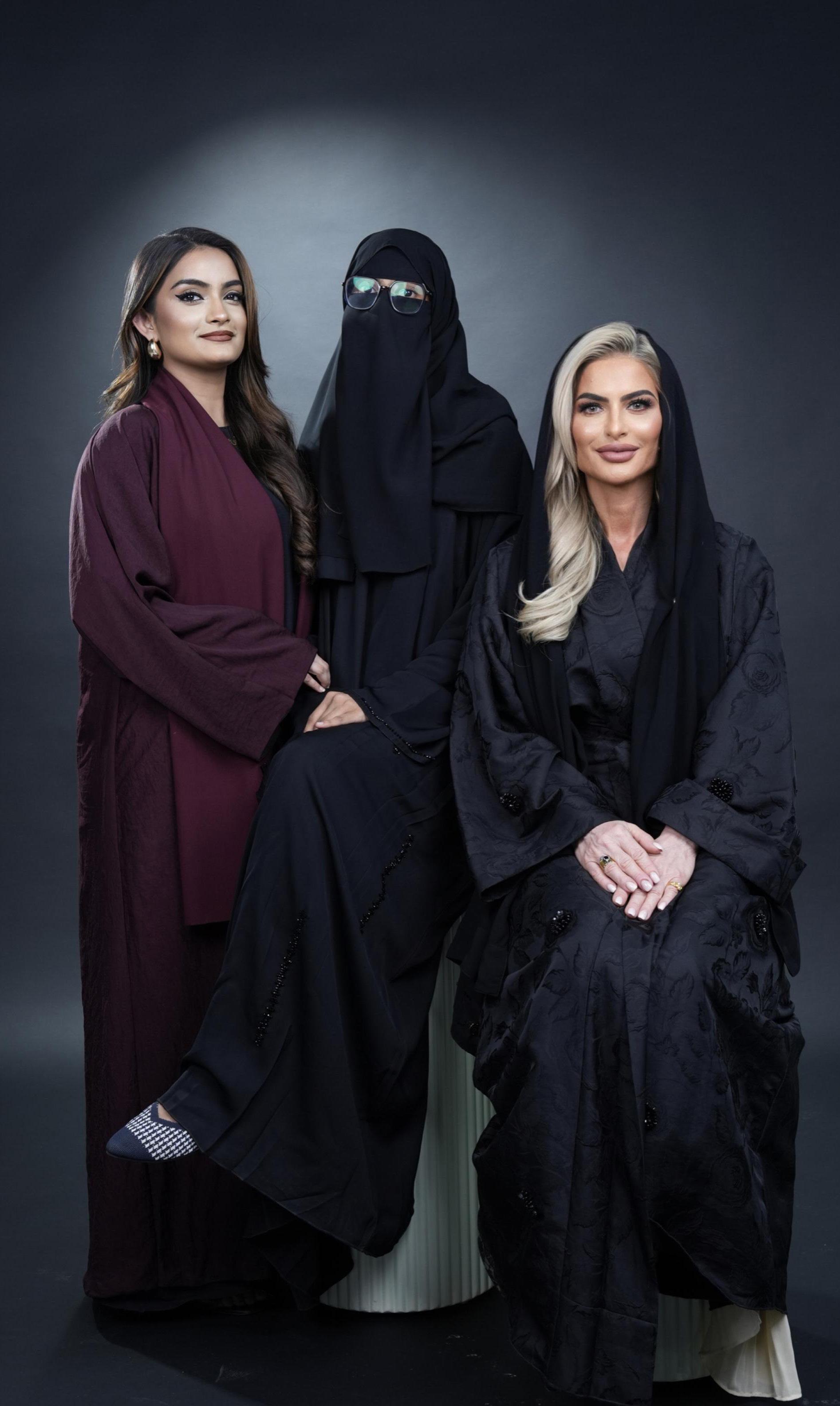
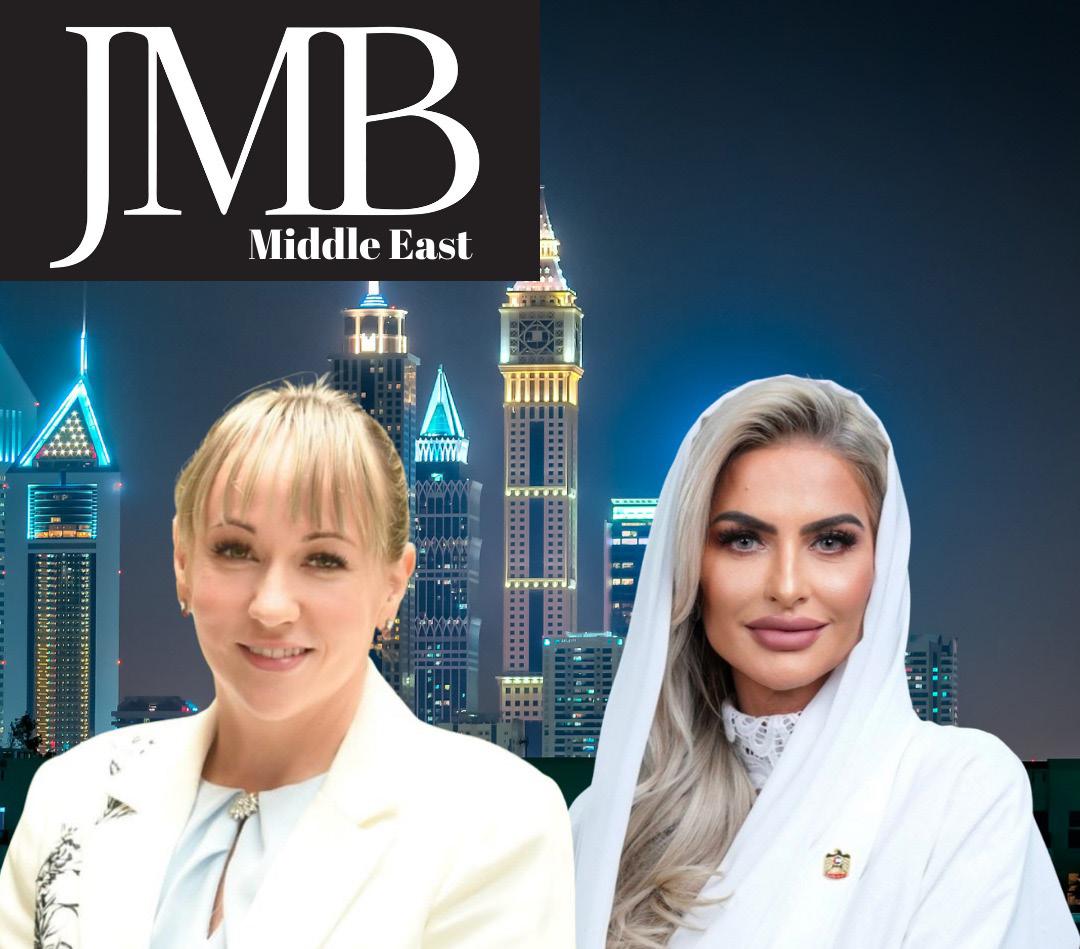
Pupilar a mobile application and online community, that aims to eliminate youth unemployment by providing jobs for 15-30-year-olds. Founded by Maimuna Rashid and Aqsa Khalifa, Pupilar, UAE’s largest Youth Career Community, engages over 5000 youth through its online platform and GEN2XP, offering exclusive membership opportunities and industry expert networking. They are giving guidance to the youth for getting hired after university. The initiative aims to eliminate youth unemployment and achieve SDG 8.
Another company CAI Concierge AI, an advanced, AI-powered system that surpasses traditional boundaries. With over 20 years of expertise, it excels in gathering information and understanding unique needs. The CAI Concierge AI’s project, led by CTO Alimkhan Nurekenov, is participating in a hackathon at the LEAP conference in Saudi Arabia. The project has been featured in Inc Arabia, by the Minister of Economy UAE, and has the support of Claudia Pinto, Head of Sustainability Projects of HH Sheikh Marwan Bin Mohamad bin Rashid Al Maktoum.
Then Claudia mentioned Jennifer McShane Bary, founder and CEO of Dubai-based JMB Project Management, with over 20 years of experience in strategic business management and technology integration. She has driven significant change across industries like healthcare, government, re-

tail, entertainment, and smart mobility. She has held CIO roles at The O2, Queensland Health, and eHealth NSW.
Jennifer McShane Bary, a dynamic leader with extensive industry expertise, established JMB Project Management in Saudi Arabia in 2021. Her experience in working on the NEOM project, the world’s first cognitive city, emphasized the need for integrated project management. JMB has become synonymous with innovation, excellence, and client-centric solutions, consistently exceeding client expectations. Her commitment to diversity, inclusion, care, and continuous learning drives the company’s success.
Our role in advising companies involves:
• Strategic Guidance: Helping businesses develop strategies that align with social impact goals.
• Inclusive Policies: Encouraging the adoption of inclusive policies that promote diversity and gender equality.
• Sustainable Practices: Advising on sustainable business practices that benefit both society and the environment.
• Innovation: Fostering innovation to create products and services that address the unique needs of women.By combining philanthropy and social entrepre-
neurship, we create a powerful platform that not only empowers women but also drives meaningful and lasting change in society. Through strategic guidance and support, we help businesses succeed while making a positive social impact.
Lara also shared her vision for the future of Laraglobalpedia and the SSSP, “Laraglobalpedia aims to create a diverse group of educators with diverse experiences from various fields, incorporating real-world perspectives from the global business environment. This approach aims to create a dynamic, interdisciplinary educational environment that enriches students’ understanding of global cultures and industries, preparing them for the complexities of the global landscape.
SSSP aims to support small-scale educational initiatives providing local benefits through financial support and youth empowerment programs. The upcoming Bridge Program will equip young learners with essential skills like English proficiency, digital literacy, and professional etiquette, integrating them with global work opportunities. This initiative aims to transform students into community figures capable of driving societal change, building sustainable local capacity, and ensuring enduring and self-sustaining changes.” Lara shared her plans. Both Claudia and Lara concluded this insightful conversation with their vision for a bright and sustainable future.

SCHOOL BAG PROJECT
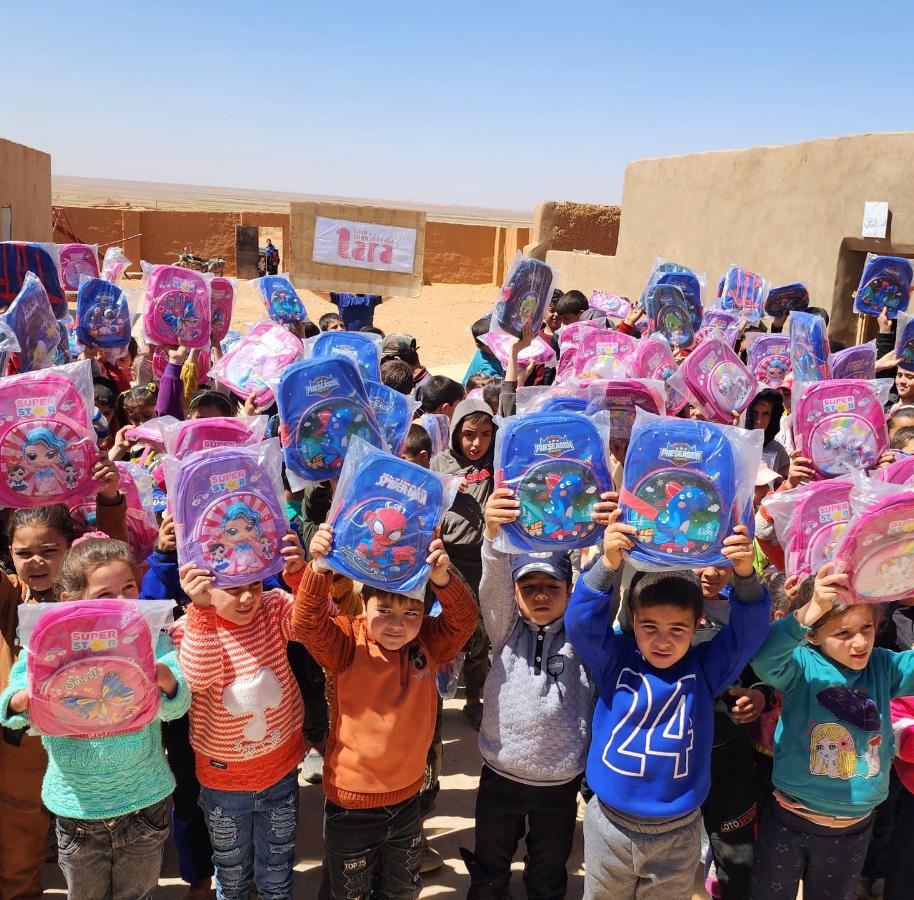


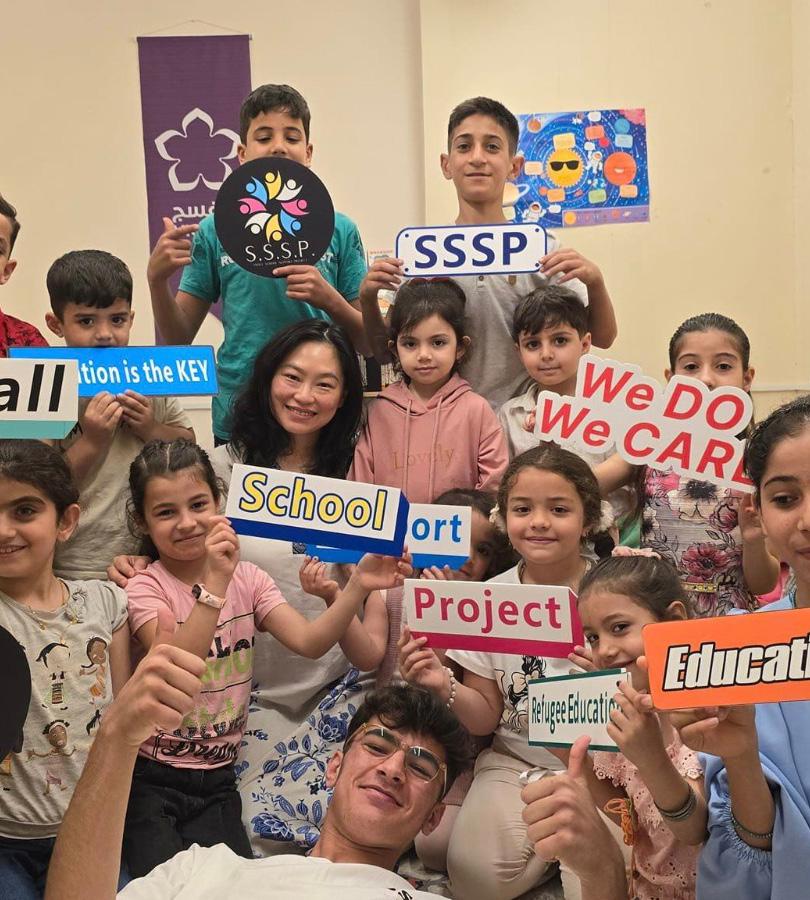
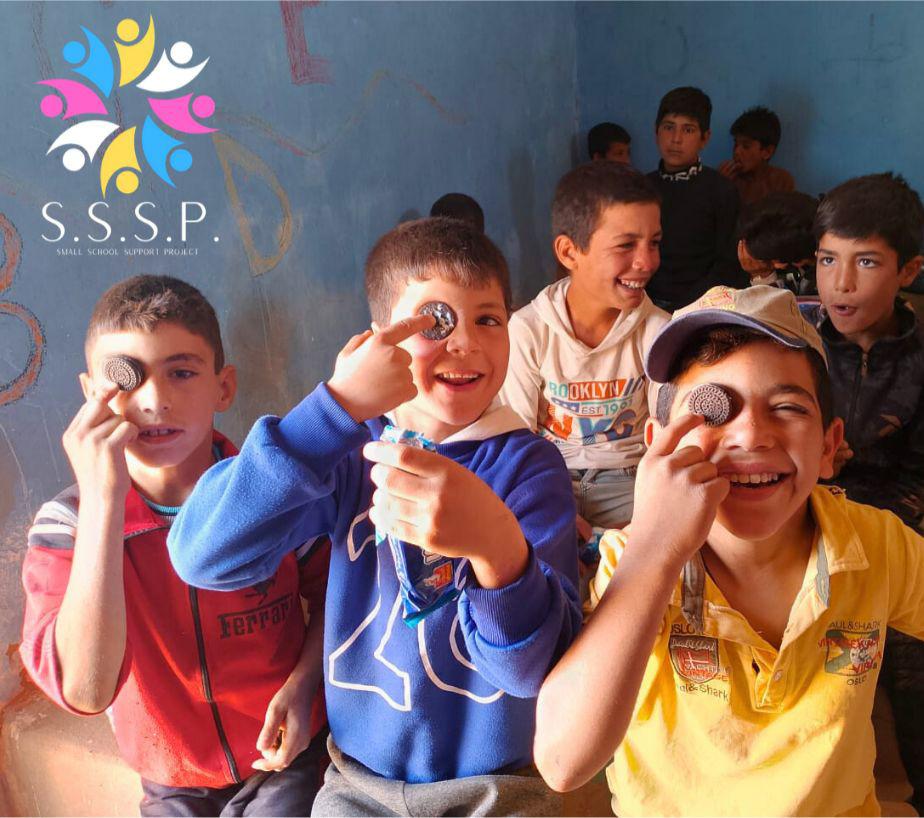
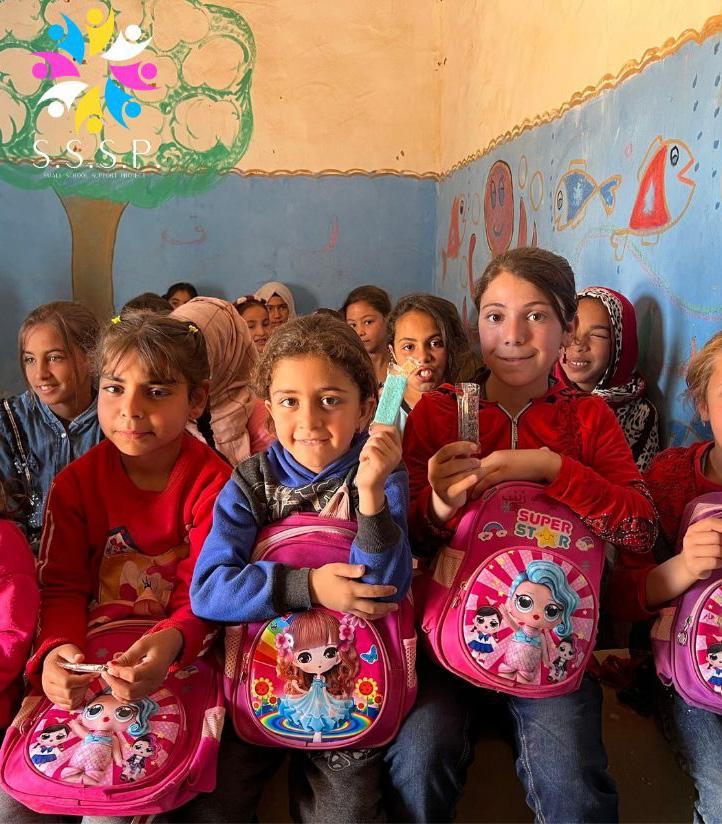

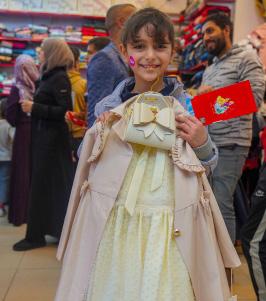

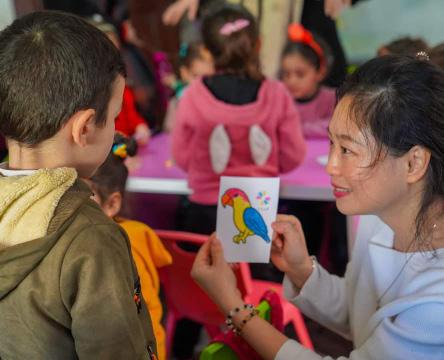



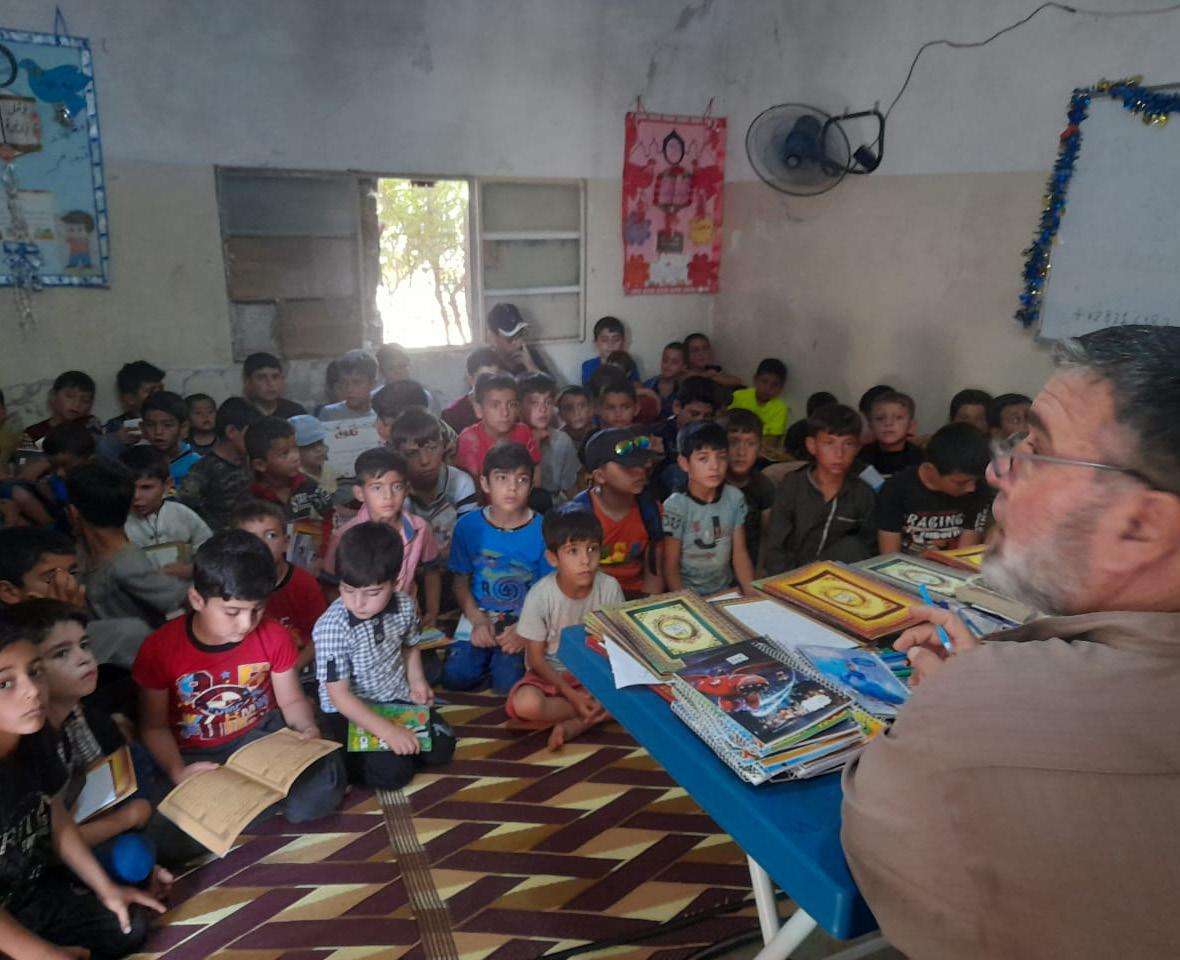

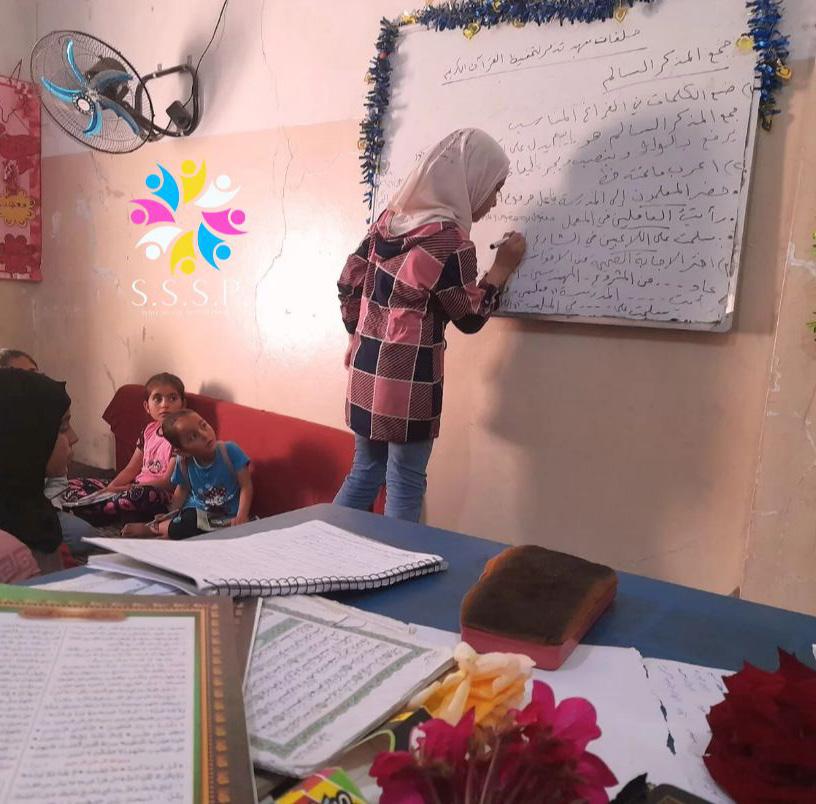
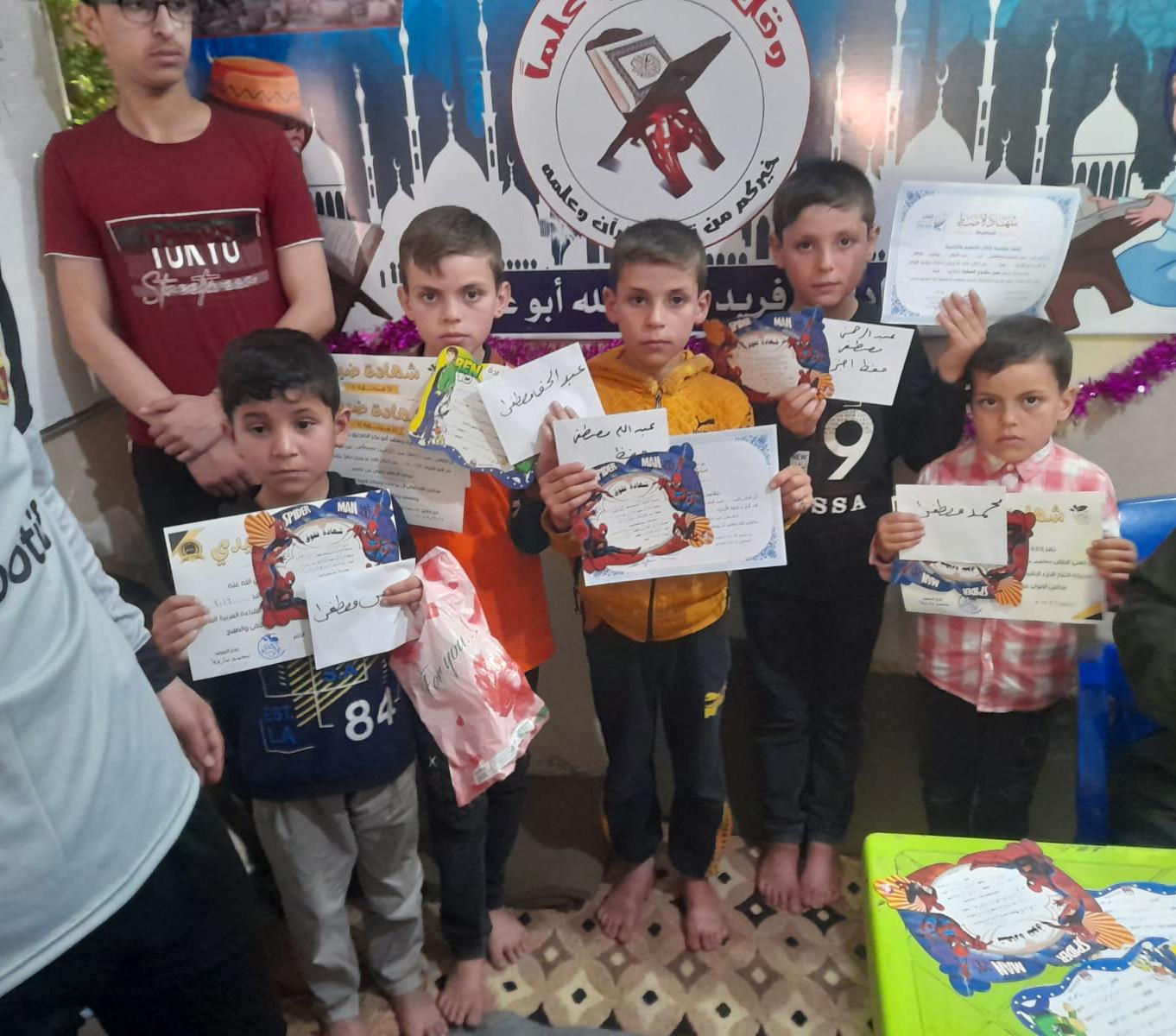

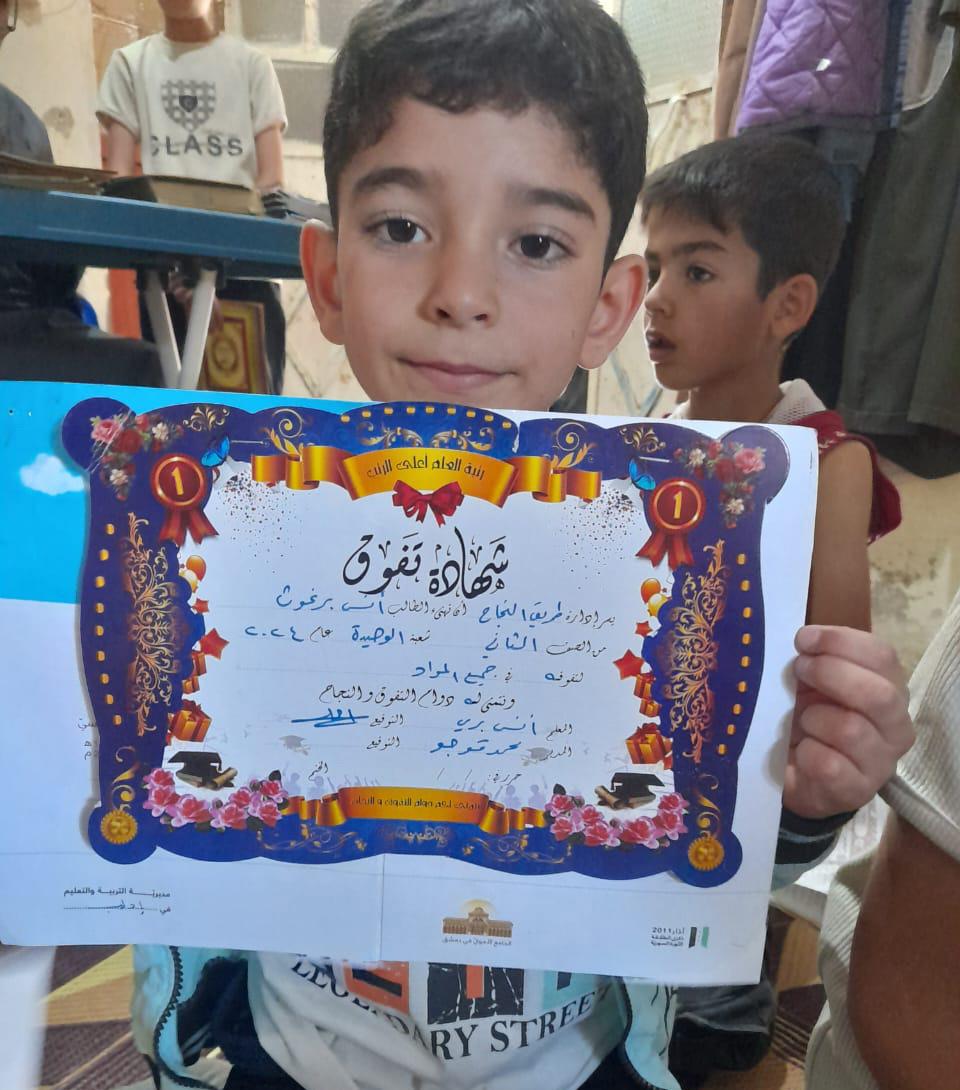
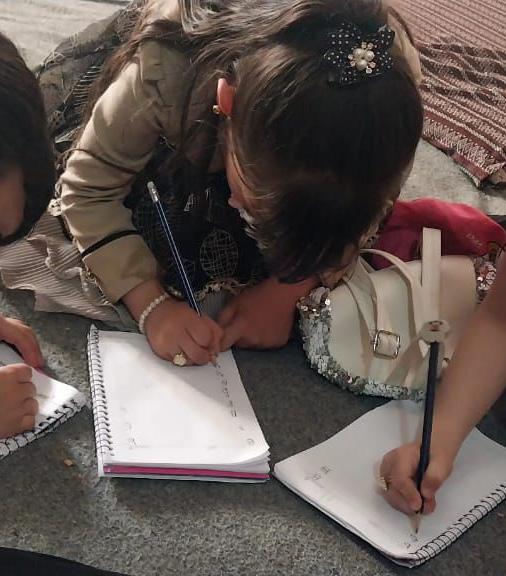
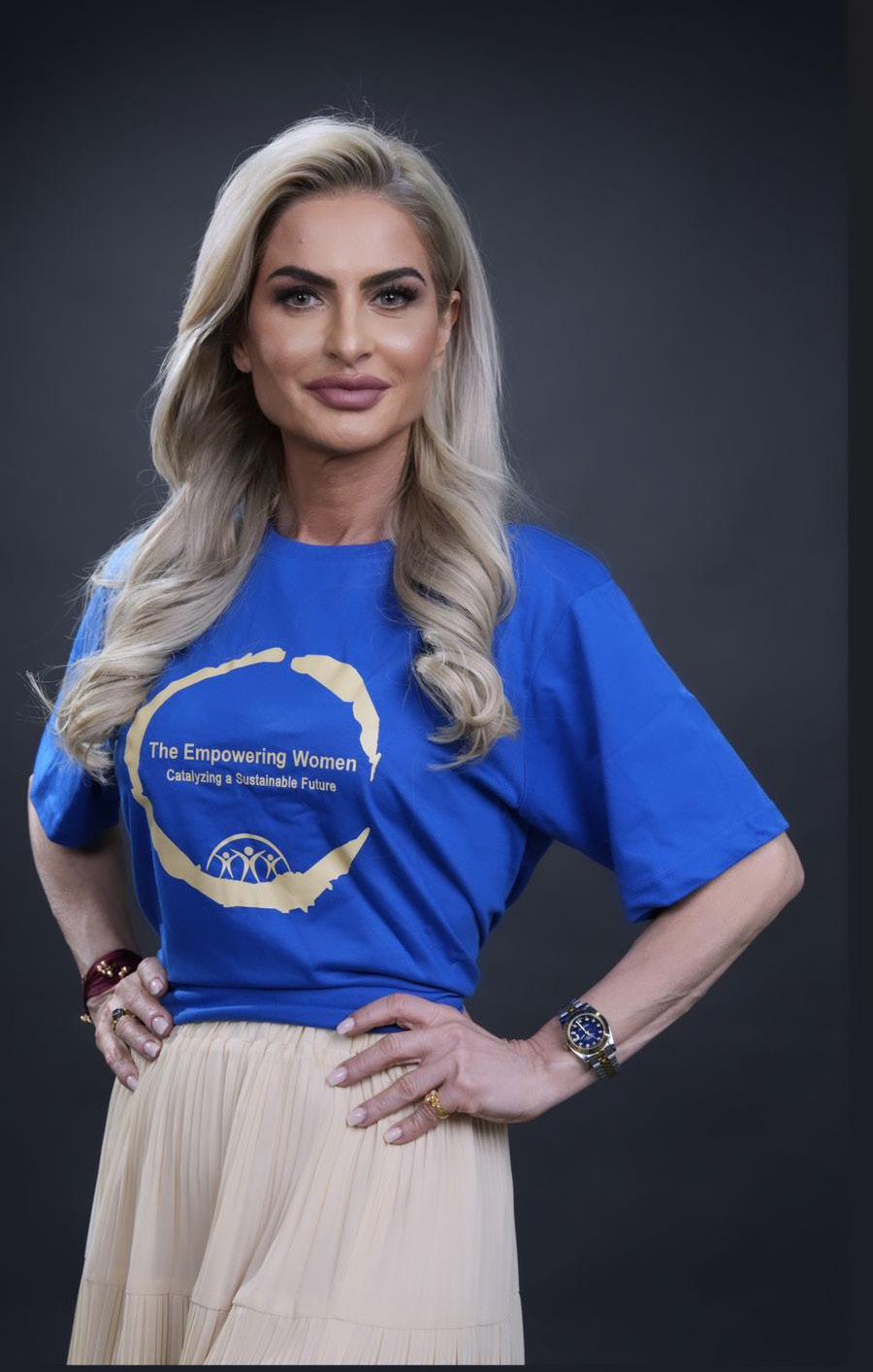
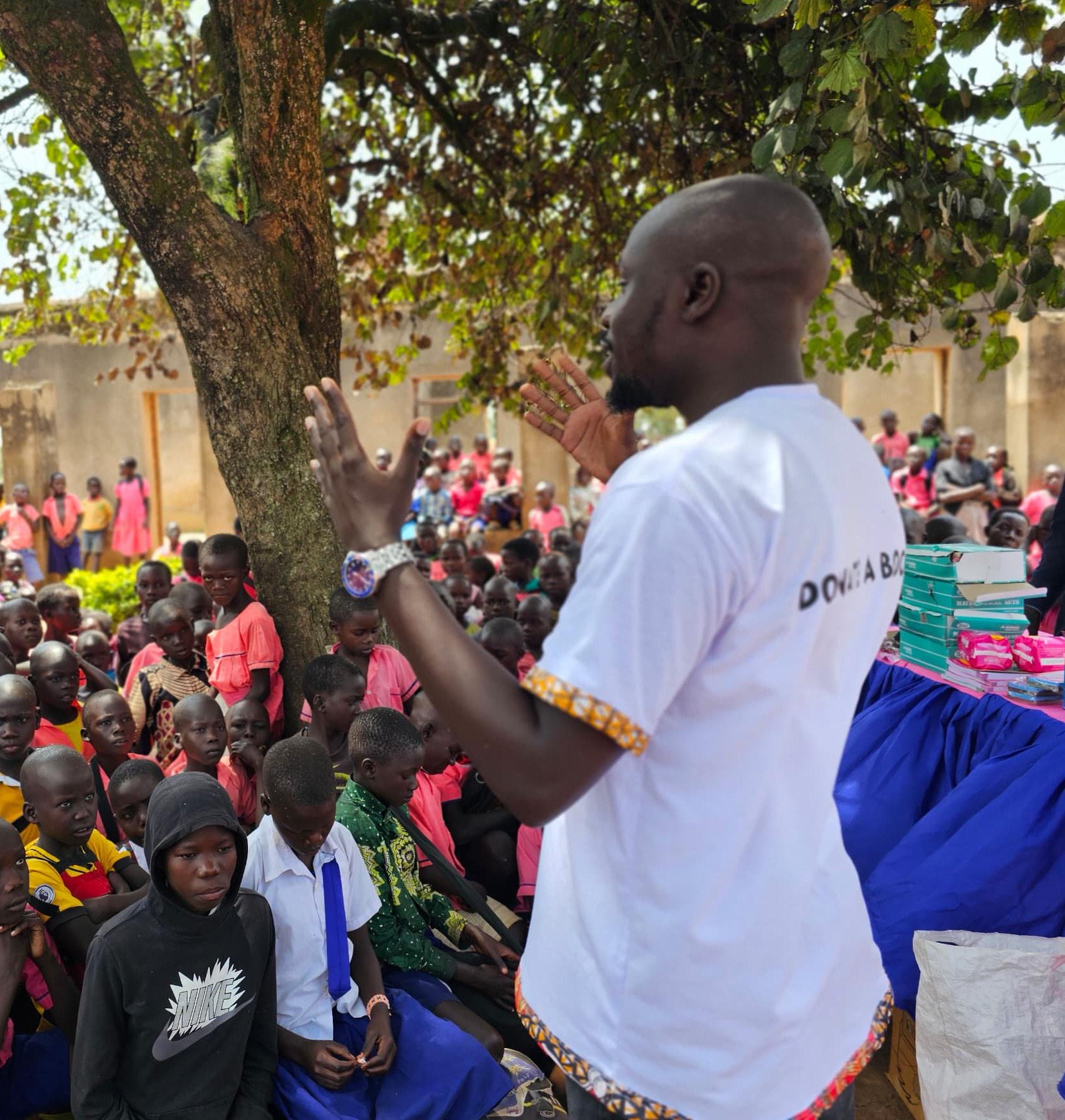
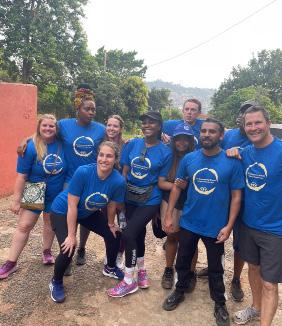
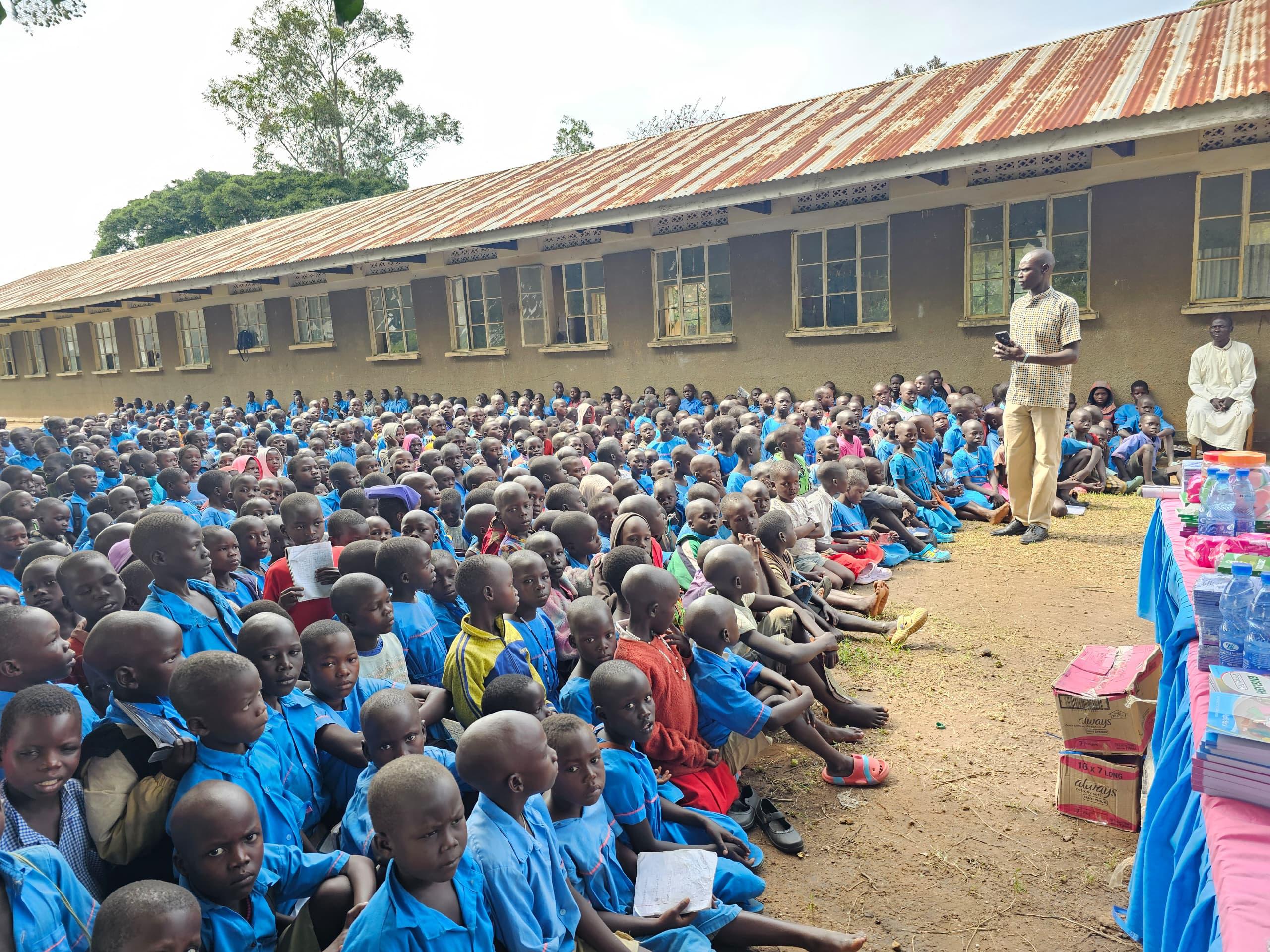

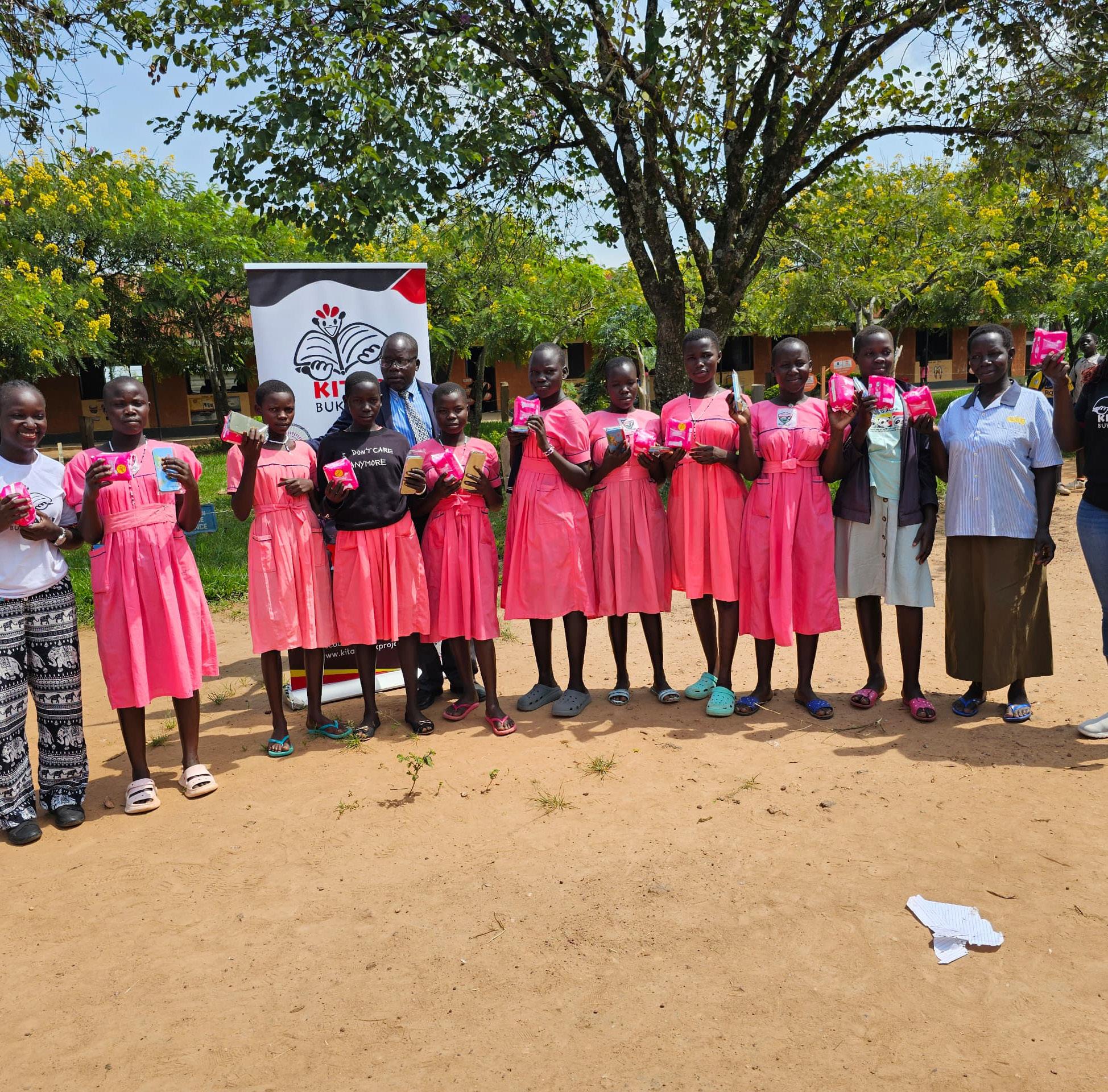
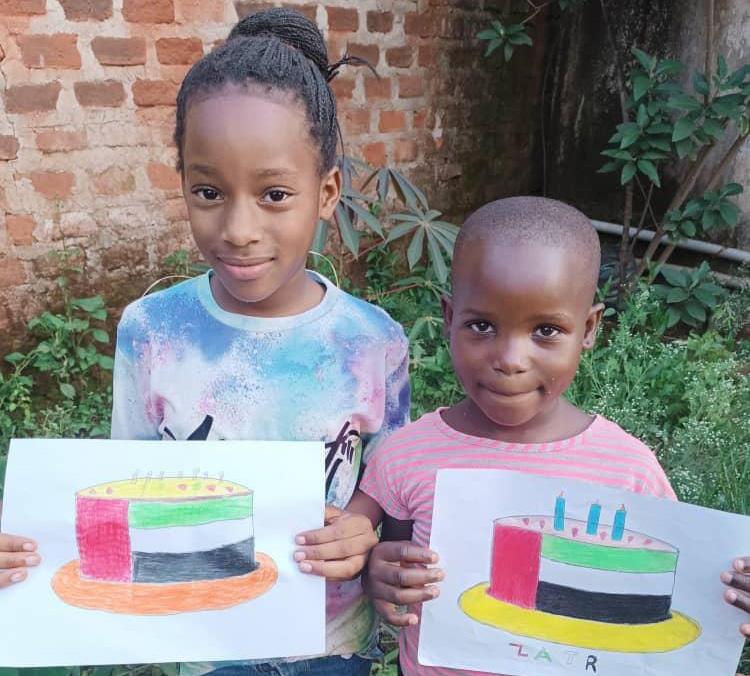


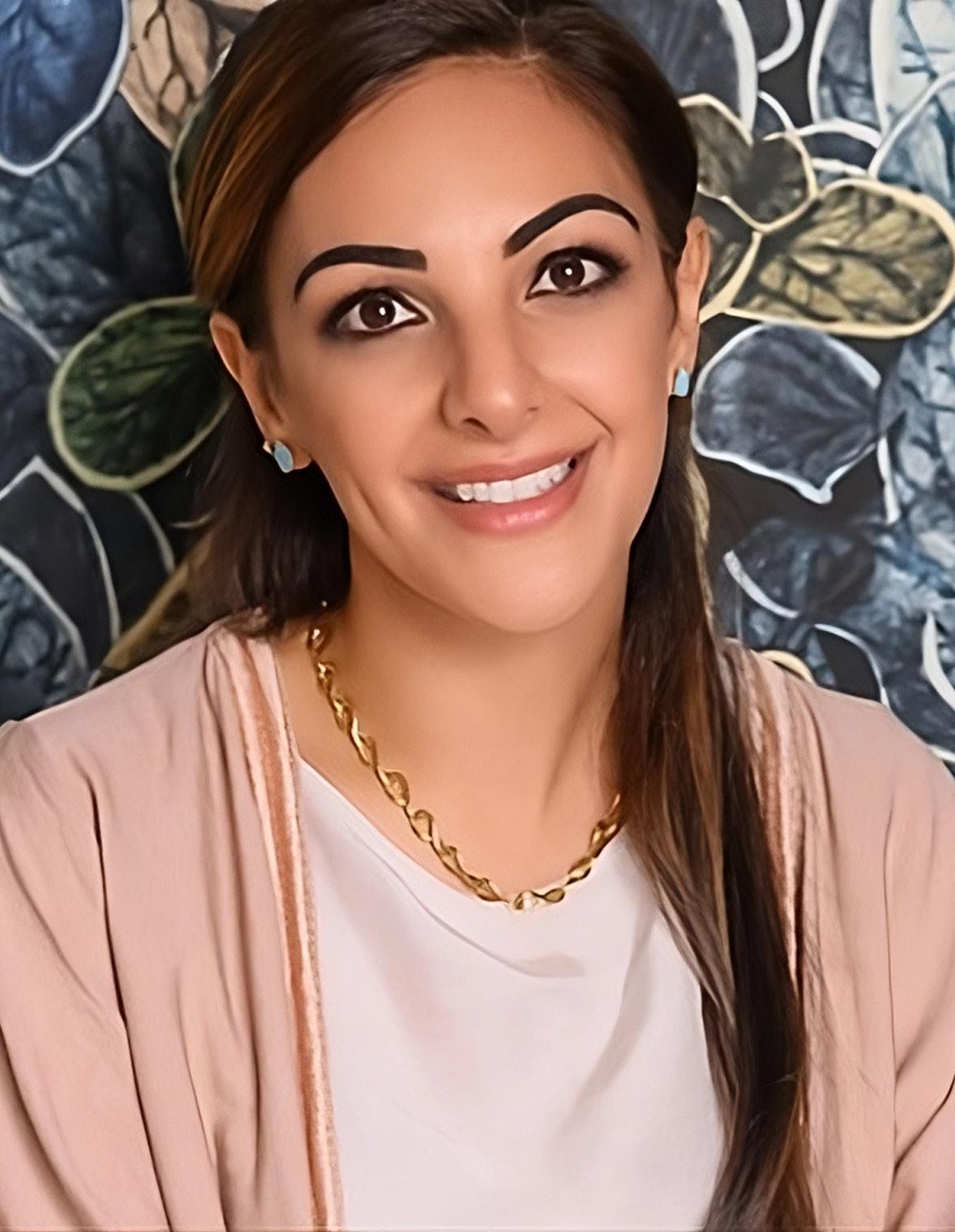
AL HASHIMY: A PIONEER IN SUSTAINABLE INNOVATION
Lamis Al Hashimy, an Emirati entrepreneur and co-founder of Palmade, has emerged as a trailblazer in the field of sustainable innovation. Her journey from a finance professional to an eco-entrepreneur is a testament to her dedication to environmental sustainability and her ability to transform seemingly ordinary materials into groundbreaking products. This biography explores the life, vision, and achievements of Lamis Al Hashimy, highlighting her significant contributions to sustainable practices in the UAE and beyond.
Lamis Al Hashimy grew up in Dubai, a city known for its rapid development and modern infrastructure. From a young age, she was exposed to the rich cultural heritage of the UAE, particularly the importance of the date palm tree, which has been an integral part of the region’s history and lifestyle. The date palm, with its nourishing fruits, shade, and medicinal properties, has always held a special place in Emirati culture.
Despite her appreciation for traditional values, Lamis pursued a career in finance, a field that offered stability and growth. However, after years of working in finance, she found herself feeling unfulfilled and yearned for a purpose-driven career that could make a positive impact on society and the environment.
The turning point in Lamis’s life came during a trip to Florence, Italy, with her husband, Yusuf. The couple was fascinated by the art of handmade paper, a craft they encountered during their travels. Inspired by the idea of creating something beautiful and functional from natural materials, Lamis and Yusuf decided to experiment with papermaking upon their return to Dubai.
What began as a hobby in their garage quickly evolved into a passion project. They initially used cotton rags imported from Pakistan to make paper but soon realized the need to find a local and sustainable resource. The UAE’s indigenous trees, the date palm and the ghaf tree, caught their attention. One day, while walking through Jumeirah, they noticed discarded date palm leaves on the pavements. It sparked an idea: what if these leaves, often regarded as green waste, could be transformed into paper?
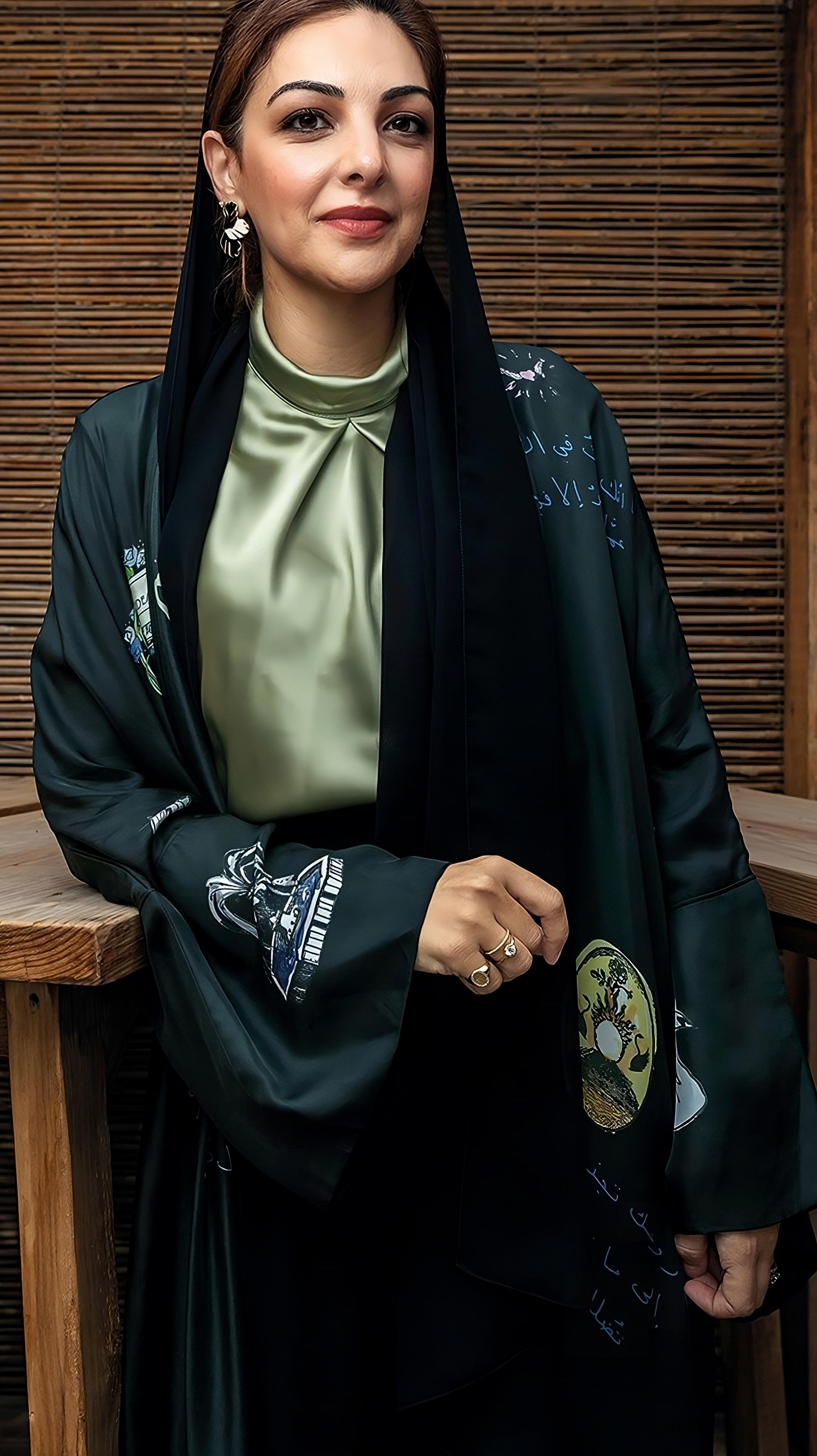
Lamis and Yusuf embarked on a journey to unlock the potential of date palm leaves. They began by shredding the leaves and experimenting with different methods to create paper. Through trial and error, they successfully produced paper from the leaves, which they showcased to various laboratories. This initial success motivated them to explore further applications of date palm leaves.
The couple discovered that by combining fibers from the leaves with plant biopolymers—extracts of sugarcane or soybean that act as a glue—they could create a material that resembled plastic but was biodegradable and eco-friendly. This breakthrough led to the idea of producing biodegradable cutlery from date palm leaves, addressing the pressing issue of single-use plastics.
In 2018, Lamis and Yusuf launched Palmade, a company dedicated to producing biodegradable cutlery and other eco-friendly products from date palm leaves. They viewed the Dubai Expo as an ideal platform to introduce their innovative products to the market. The feedback they received was overwhelmingly positive, encouraging them to continue their efforts.
Palmade’s biodegradable cutlery quickly gained traction, with one of their first major partners being Emaar Hotels. The support from such prominent entities highlighted the growing recognition of the importance of sustainable practices. Palmade’s products were soon adopted by restaurants and retailers like Spinneys, further expanding their reach.
Palmade’s factory, capable of producing 70,000 pieces of cutlery daily, became a hub of inno-
vation and sustainability. The company recently launched biodegradable straws, aligning with the UAE’s announcement to ban single-use plastic products by January 2025. This timely release demonstrated Palmade’s commitment to addressing environmental challenges and supporting government initiatives.
Lamis expressed her gratitude for the support of the UAE government, emphasizing the importance of collective efforts in achieving sustainability goals. She credited the government’s backing for providing the momentum needed to advance Palmade’s mission.
Lamis’s dedication to sustainability is deeply rooted in her role as a mother. She fondly refers to her children as “eco warriors” who advocate for eco-friendly practices, even speaking out against the use of plastic cutlery at restaurants. Leaving a positive legacy for her family and future generations is a key motivator for Lamis.
Her journey has not been without challenges. The sustainability industry is often misunderstood, with stigmas and stereotypes deterring many from adopting eco-friendly practices. Lamis and Yusuf have faced obstacles in convincing businesses to switch to sustainable alternatives due to perceived costs. However, they continue to raise awareness and educate others on the long-term benefits and value of sustainable products.
Palmade’s vision extends beyond cutlery. Lamis and Yusuf aim to create a wide range of products from date palm leaves, normalizing alternatives to single-use plastics. They have already partnered with a sports equipment company to produce golf tees and are exploring the possibility of making hairclips and glasses frames.
Lamis envisions Palmade as a materials company, focusing on sustainable solutions that address various environmental challenges.
Lamis’s ultimate goal is to build a new economy based on date palm-derived products, helping to replace single-use plastics and promote sustainability. She believes that meaningful change requires collaboration and collective action. By offering innovative, locally developed solutions, Palmade aims to empower communities to adopt eco-friendly practices and reshape the future.
Palmade’s innovative approach and dedication to sustainability have garnered recognition both locally and internationally. The company’s products have been showcased at various conventions and industry-specific panels, highlighting their contribution to reducing environmental impact. Lamis’s efforts have positioned her as a leading advocate for sustainable practices in the UAE.
Lamis is focused on expanding Palmade’s reach, particularly in the GCC region. Oman, with its shared values of preserving nature and addressing climate change, is a key target for expansion. Lamis envisions opening manufacturing units in Oman, creating job opportunities and contributing to the local economy.
Palmade’s business model, currently B2B, aims to transition to a B2C model, empowering consumers to make eco-friendly choices. Lamis believes that increased consumer awareness and preparedness will drive demand for biodegradable alternatives, further promoting sustainability.
We’ve all benefitted from the fruit or the shade of the Palm Tree; in the past Bedouins used it for shelter, and it even has medicinal properties, so I wouldn’t have been surprised to find another way to use it.
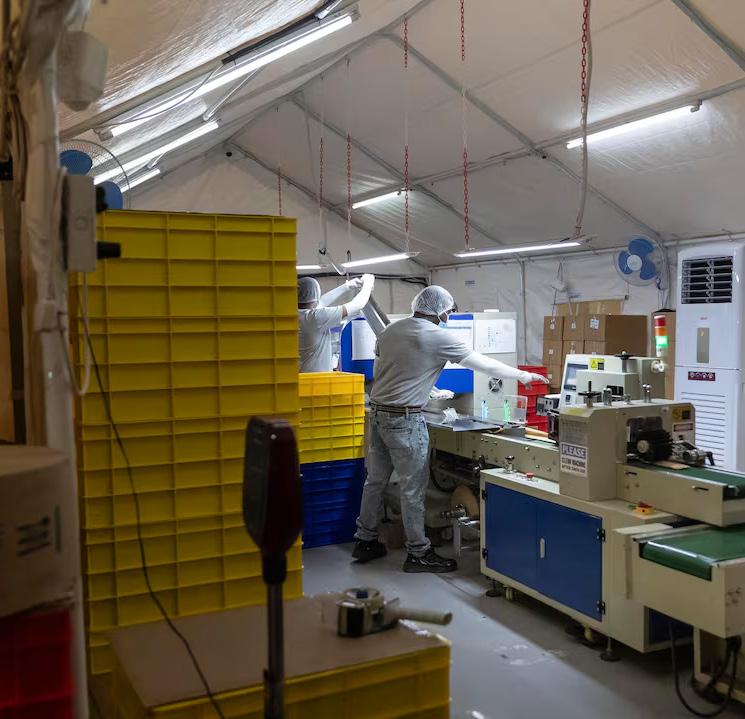
Raising awareness about sustainable decision-making is a core aspect of Palmade’s mission. Lamis emphasizes the importance of understanding the tangible and intangible value of choosing sustainable products. Through participation and panels, Palmade strives to educate businesses and consumers on the longterm benefits of sustainability.
Lamis Al Hashimy’s journey from a finance professional to a pioneer in sustainable innovation exemplifies her commitment to environmental responsibility and social impact. Through Palmade, she has transformed discarded date palm leaves into eco-friendly cutlery, offering a sustainable solution to the global plastic waste problem. Lamis’s dedication to sustainability, driven by her role as a mother and her deep connection
to the UAE’s cultural heritage, continues to inspire others to embrace eco-friendly practices. As Palmade expands its product range and reaches new markets, Lamis remains focused on building a new economy based on sustainable materials. Her vision, perseverance, and innovative spirit are paving the way for a more sustainable future, one where collective efforts can make a significant impact on the environment and society.

The aisles of mega-supermarkets are often overwhelming, with endless rows of plastic bottles filled with various cleaning products. On one serendipitous day, this common sight sparked a revolutionary idea in the minds of two extraordinary women, Farida El Agamy and Samar Sayegh. It was a moment of clarity that would set them on a path to transform the fast-moving consumer goods (FMCG) industry and challenge the status quo.
Kyma, a UAE-born startup, emerged from this shared vision. Farida, a lawyer and governance expert with a passion for sustainability, and Samar, an entrepreneur and brand expert with a deep concern for the environment, combined their unique backgrounds and insights to tackle the pervasive problem of single-use plastics. Together, they co-founded Kyma with a mission to eliminate single-use plastics and make sustainability accessible to all.
Farida El Agamy’s journey to becoming the co-founder and CEO of Kyma is a testament to her unwavering commitment to sustainability and innovation. Born to a Dutch mother and an Egyptian father, Farida’s multicultural upbringing in Switzerland instilled in her a deep appreciation for diverse perspectives and a natural flair for innovation. Fluent in six languages, she navigates the complexities of different cultures with ease.
Farida’s professional journey began in the legal field, where she quickly distinguished herself as a leader and governance expert. Her work with family-owned businesses in the UAE provided her with a unique vantage point on how to drive growth and sustainability in enterprises. It was this experience that helped shape her vision for Kyma.
“Kyma was born out of a simple yet powerful idea: that small changes can make a big difference,” Farida explains. “We wanted to create a brand that not only offers high-quality, effective products but also empowers consumers to make sustainable choices.”
Under Farida’s leadership, Kyma has become a beacon of innovation in the FMCG industry. Her belief that sustainability should be convenient and accessible to everyone has driven the company’s mission and inspired its many initiatives.
Samar Sayegh’s journey is equally inspiring. Born and raised in the UAE, Samar comes from a lineage of successful entrepreneurs. She is part of the third generation of the family-owned National Paints, a company known for its entrepreneurial heritage and commitment to excellence. Samar’s experience as an Executive Board Member of National Paints has given her a deep understanding of brand management and business transformation.
As a mother of three, Samar’s concerns about the chemicals and products her children were exposed to became a driving force behind the creation of Kyma. “I spent a lot of time thinking about the world my children would inherit,” she says. “I wanted to create products that are safe for them and for the environment.”
So with Kyma we have actually created loyalty in people, and many of them are still with us — their behaviour has changed, which is really encouraging.
Samar’s passion for sustainability and her expertise in brand management have been instrumental in Kyma’s success. Her insights into consumer behavior and her commitment to creating products that are both effective and eco-friendly have helped Kyma carve out a unique niche in the market.
Kyma’s journey began with a simple yet revolutionary idea: to create cleaning products in tablet form that dissolve in reusable bottles. This innovation not only reduces the use of single-use plastics but also offers a convenient and effective solution for consumers. The company’s mission, encapsulated in the term “refillution,” is to promote the reduction, reuse, and refill of cleaning products. Farida and Samar’s combined expertise and passion for sustainability have been the driving force behind Kyma’s success. They have reengineered and
reinvented cleaning by creating non-toxic, biodegradable, and cruelty-free cleaning tablets that are safe for both humans and pets.
“Kyma is not just a brand; it’s a movement,” says Farida. “We are committed to making sustainability an active, easy, and inseparable part of everyone’s life.”
Kyma’s
Kyma’s impact extends beyond its innovative products. The company’s commitment to sustainability is reflected in every aspect of its operations, from sourcing materials and manufacturing processes to packaging and distribution.
All Kyma products are ISO 9001 and ISO 22716 certified, ensuring the highest quality and safety standards.
Farida and Samar’s dedication to sustainability has also led to several research initiatives. For instance, Kyma collaborated with a company that assesses indoor air quality and found that their water-soluble cleaning tablets improve air quality by reducing the presence of airborne toxins. This discovery has significant implications for the health and well-being of people with asthma and other respiratory conditions.
Moreover, Kyma is participating in a research project to test the impact of different cleaning brands on indoor air quality in schools. This project aims to highlight the benefits of Kyma’s
non-toxic and non-airborne formulations in creating healthier environments for children.
Launching Kyma was not without its challenges. The cleaning industry is traditionally loyalty-driven, with consumers often sticking to familiar brands and products. Farida and Samar had to not only introduce a new product but also encourage a shift in consumer behavior.
“Cleaning is influenced by culture and tradition,” Farida explains. “What we’re asking people to do is change their consumer behavior and adopt a more sustainable approach.”
Despite these challenges, Kyma has successfully cultivated a loyal customer base. The company’s focus on affordability and accessibility has resonated with consumers who are eager to make sustainable choices. Farida and Samar’s emphasis on making sustainability a human right rather than a luxury has been a key factor in Kyma’s growth.
Kyma’s success in the UAE has garnered international attention, with demand for its products in countries like the United States, Poland, Cyprus, and India. However, Farida and Samar remain focused on solidifying their presence in their home market before expanding globally.
“Our goal is to build a strong foundation in the UAE and then take Kyma to the world,” Samar says. “We want to ensure that our products are accessible to everyone, regardless of where they live.”
Looking ahead, Kyma aims to expand its product portfolio to include a wider range of sustainable household essentials. The company’s vision is to create a lifestyle brand that uses chemical and technological innovation to make everyday products more ecological and consumer-friendly.
Launching Kyma was a big gamble. Cleaning is a really traditional, loyalty-driven behavior. It’s also influenced by culture because you probably clean like your family cleans. What we’re asking you to do is not just use a different product, but also change your consumer behavior


Farida and Samar’s journey with Kyma offers valuable lessons in entrepreneurship. They emphasize the importance of identifying a problem and finding a solution, being open to failure, and seeking advice from those who have successfully navigated the entrepreneurial landscape.
“Identify a problem that you are facing personally as a consumer that has no evident solution, and come up with an idea that would solve it for
you,” Farida advises. “Chances are, if you’re continuously facing an unsolved problem, there is an unaddressed gap in the market.”
Samar adds, “It’s important to be okay with trying things, them not working out, and moving on. The best advice in entrepreneurship comes from the people who have done it and managed to build a successful company.”
Farida El Agamy and Samar Sayegh’s journey with Kyma is a testament to the power of
innovation, collaboration, and a shared vision for a better future. Their commitment to sustainability and their relentless pursuit of excellence have not only transformed the cleaning industry but also inspired a new generation of entrepreneurs.
Kyma’s refillution is a powerful reminder that small changes can make a big difference. By empowering consumers to make sustainable choices, Farida and Samar are helping to create a cleaner, healthier, and more sustainable world for future generations.
In the midst of a global pandemic, as the world reeled from the impacts of COVID-19, two visionary women embarked on a journey that would transform not only their lives but also the environmental landscape of the United Arab Emirates. Lara Hussein and Ceylan Uren, flatmates turned co-founders, dared to dream big and ask profound questions about their role in protecting the environment. This is the story of how they left behind successful careers to start The Waste Lab, a sustainable business venture focused on minimizing food waste and converting it into enriching compost.
The Beginnings: A Pandemic Revelation
The pandemic lockdown provided a unique opportunity for introspection and deep conversations for Lara Hussein and Ceylan Uren. “We saw one small virus paralyze the whole world, from our lack of respect for nature,” Lara recalls. These discussions spurred a sense of urgency and a desire to make a tangible impact. Lara, originally from Lebanon, and Ceylan, hailing from Turkey, were both acutely aware of the environmental challenges facing their home countries, which boast rich natural landscapes and fertile soils. However, they found themselves in the UAE, a country characterized by its arid desert environment. Lara remarked, “The desert isn’t dead — there’s soil here, it just needs a bit of TLC.”
Motivated by a shared vision of environmental stewardship, Lara decided to quit her corporate job, and Ceylan left her role as an architect. The duo embarked on a mission to address the issue of food waste, a prevalent problem in the UAE, where food waste levels are alarmingly high. They spent six months in Turkey, visiting
local farms and learning the intricacies of composting. Armed with newfound knowledge and determination, they returned to Dubai in 2021 to register The Waste Lab and launch pilot projects within the community.
Starting a new business is never easy, and Lara and Ceylan faced their fair share of challenges. Initially, they went door-to-door collecting food waste from households, a task that required immense dedication and hard work. However, their efforts soon began to pay off. They formed partnerships with major hotels such as Hilton and Pullman, local restaurants, offices, and even large events like the COP28 climate change conference.
One of the unique aspects of The Waste Lab’s approach is their hands-on involvement in training kitchen staff on proper food waste segregation. This includes distinguishing between food scraps discarded during preparation and leftovers post-consumption. The collected waste is transported to The Waste Lab’s control station in Jebel Ali, where it is meticulously sorted to remove any contaminants. From there, the waste is taken to their farmland on the Dubai-Abu Dhabi border, capable of handling around 17 tonnes of food waste per day. “We harness the power of nature and build compost piles — each can be around one to two tonnes of food waste,” explains Lara. The transformation process, which involves mixing food waste with carbon material, takes six to eight weeks, resulting in nutrient-rich compost.
Early on in my journey with The Waste Lab, a mentor from my university warned me against “wasting my life” in a male-dominated industry. This actually fueled me to do it. It gave me motivation rather than making me shrink in my place.
One of The Waste Lab’s core philosophies is giving back to the community. A portion of the compost produced is returned to their clients, enabling them to continue the cycle of nature. This compost has been used to create rooftop urban gardens, indoor garden installations, and more. The remainder is distributed to households, farmers for soil testing, and used for further research. Additionally, The Waste Lab conducts educational sessions in schools and offices, raising awareness about the importance of composting and sustainable living.
The Waste Lab’s efforts are particularly significant in the UAE, where food waste levels are twice as high as some European countries. Cultural factors, such as the tradition of hosting large gatherings with abundant food, contribute to this issue. The Ministry of Climate Change and Environment, along with the Emir-
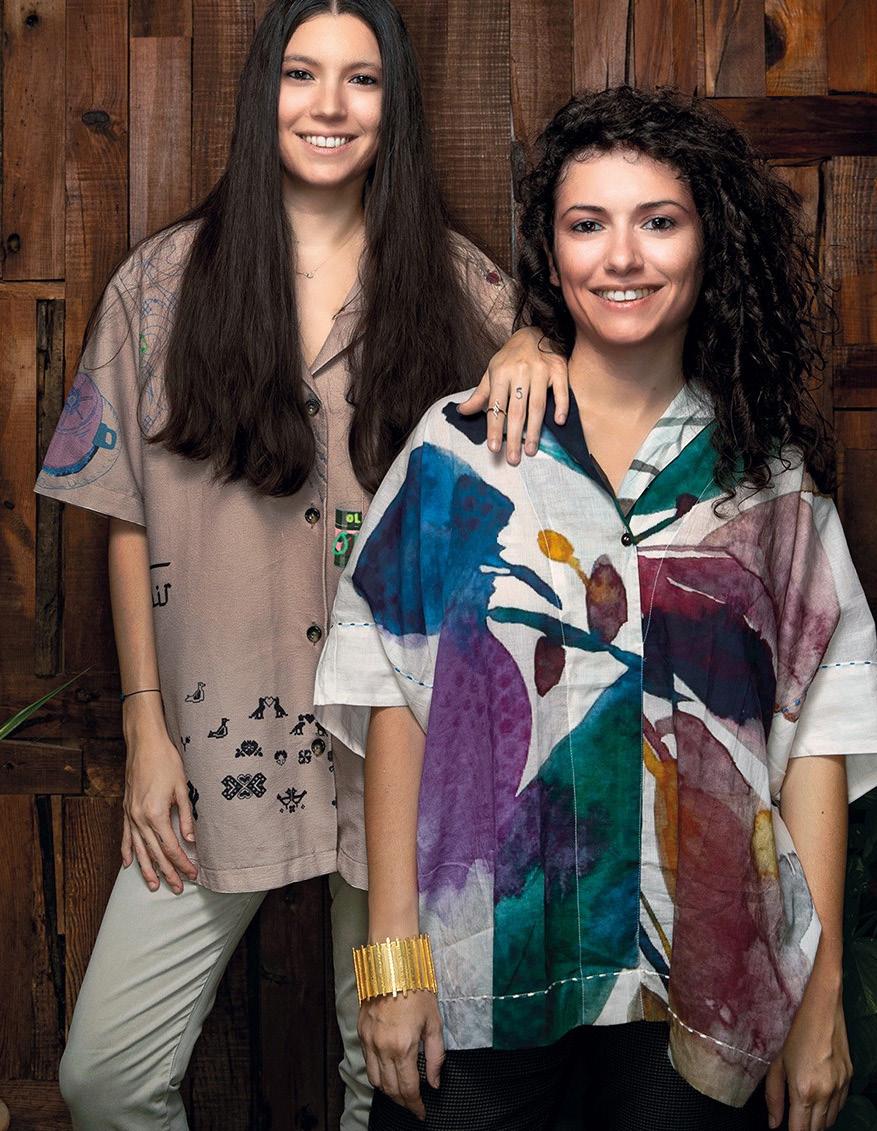
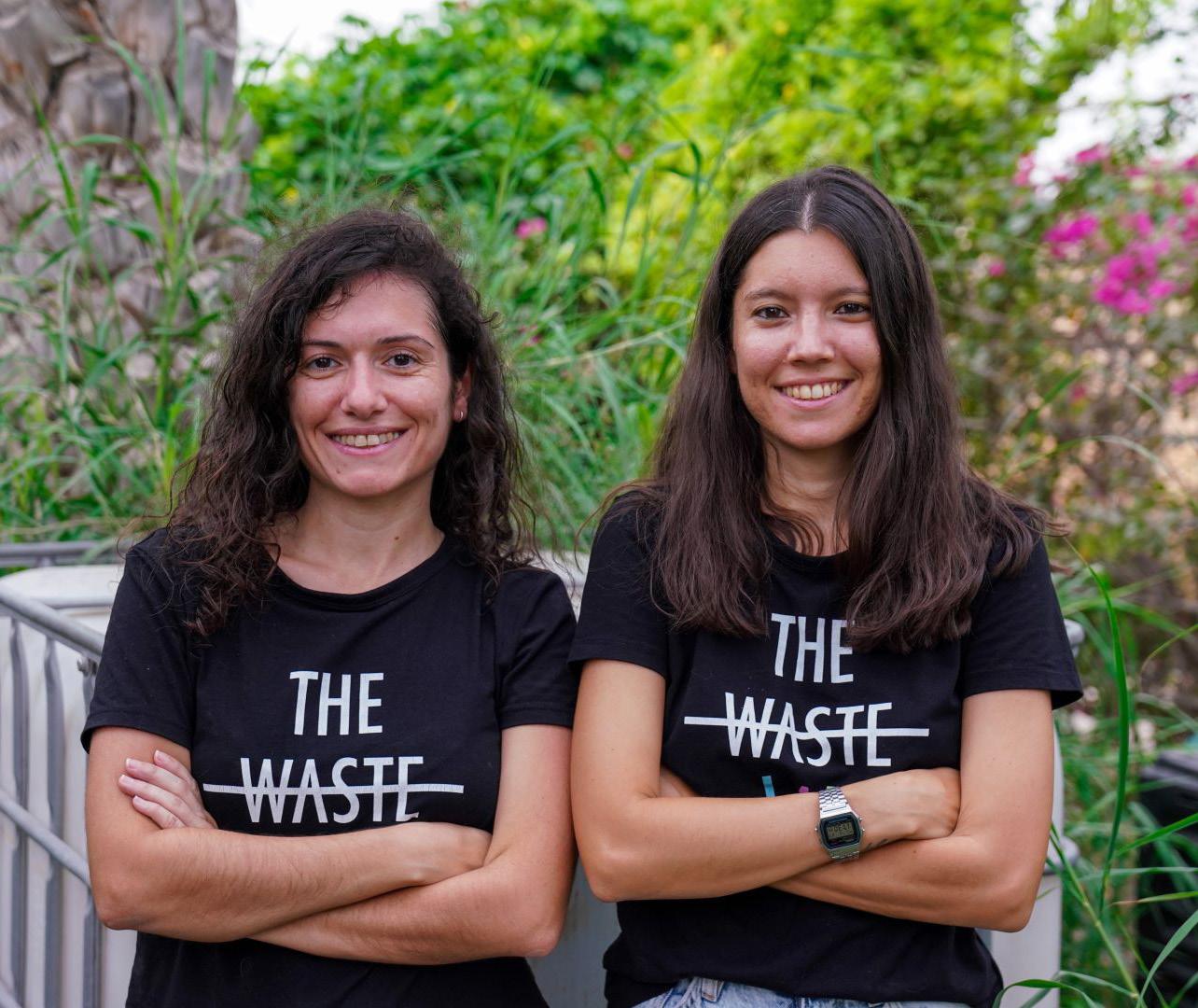
ates Foundation, are working to combat this through initiatives like Ne’ma, which aims to reduce food waste by 50% by 2030. Lara acknowledges, “They’re working on transforming traditional value systems. Food is a blessing; you consume enough and you don’t waste it.”
Overcoming Obstacles and Achieving Milestones
The journey of The Waste Lab has not been without its hurdles. Early on, a mentor warned Lara against entering the male-dominated industry of waste management. However, this only fueled her determination. “This actually fu-
eled me to do it — it gave me motivation rather than making me shrink in my place,” she says. The company faced skepticism from investors who favored technology-heavy solutions over nature-based ones. “Everyone was looking for a technology-heavy solution, the next shiny object, and our technology was just nature,” explains Lara. But their commitment to working with nature, rather than against it, set them apart.
Despite these challenges, The Waste Lab has achieved significant milestones. In 2023, the company saw a substantial increase in demand and finally broke even. What started as a team
of two has now grown to 20 members. They have built pioneering partnerships with brands like Hilton, Pullman Dubai Creek City Centre, Vox Cinemas, and Coffee Planet, and have won a grant from Visa’s She’s Next program. Their pilot urban composting site at The Sustainable City has become a community center and a permanent fixture. To date, they have diverted 112 tons of food waste from landfills, equivalent to 129 tons of CO2 emissions.
For Lara and Ceylan, this is just the beginning. They plan to expand The Waste Lab’s opera-
tions across the Emirates, starting with Abu Dhabi and Sharjah. They aim to collaborate with local farmers, grow their own food using compost, and encourage others to understand and embrace the cycle of life. They recently opened a seed investment round to support their expansion, purchase equipment to increase efficiency and production, grow their team, and develop an app for process automation and impact tracking.
Their vision extends beyond waste reduction; they aim to foster a culture of environmental responsibility where everyone, from homeowners to large establishments, plays a part in sustainable living. “Every piece of food wasted has a more significant impact than we realize — it’s not just about the loss of food but also about environmental damage, resource squandering, and the missed opportunity to support our local ecosystem,” emphasizes Lara.
The journey of Lara Hussein and Ceylan Uren is a testament to the power of determination, innovation, and authentic passion. Their work with The Waste Lab has transformed the way communities in the UAE think about food waste and sustainability. From grit to glory, they have overcome obstacles, formed strategic partnerships, and made a real impact. Their story inspires us all to rise every day for a greener tomorrow, proving that even the humblest scraps can be turned into the seeds of a sustainable future.
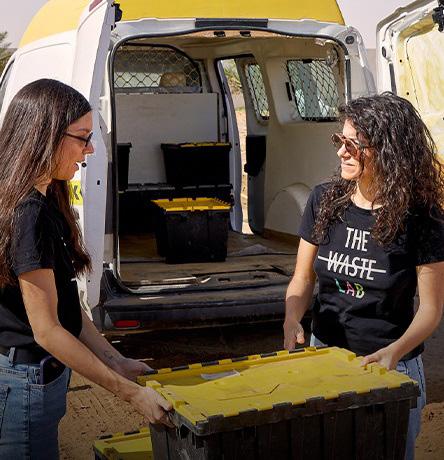
We saw one small virus paralyze the whole world from our lack of respect for nature. This made me realize it was time for a change. So, I quit my corporate job, and Ceylan left her role as an architect. Together, we embarked on a new sustainable business venture focused on minimizing food waste and converting it into enriching fertilizer for soil.
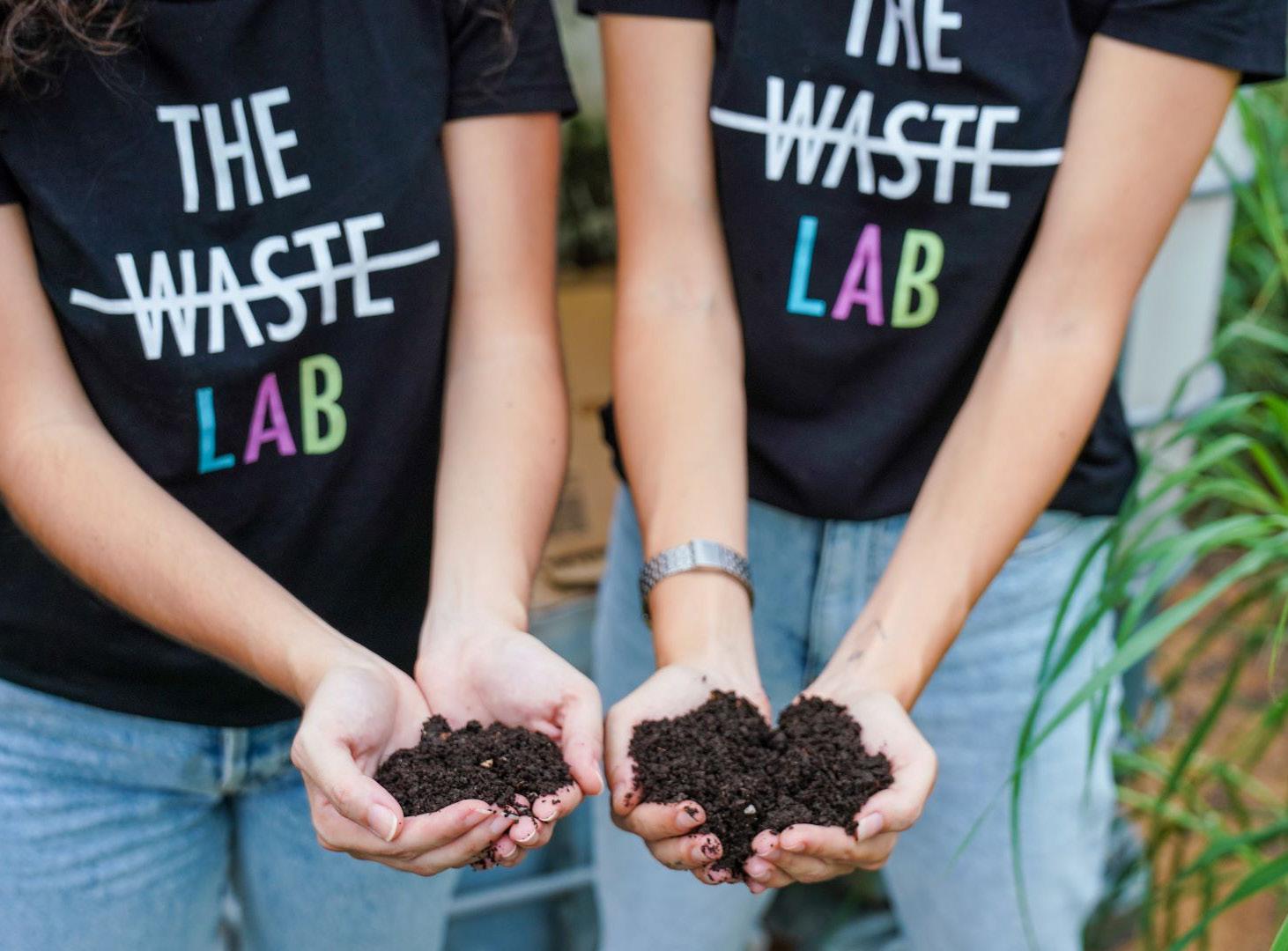
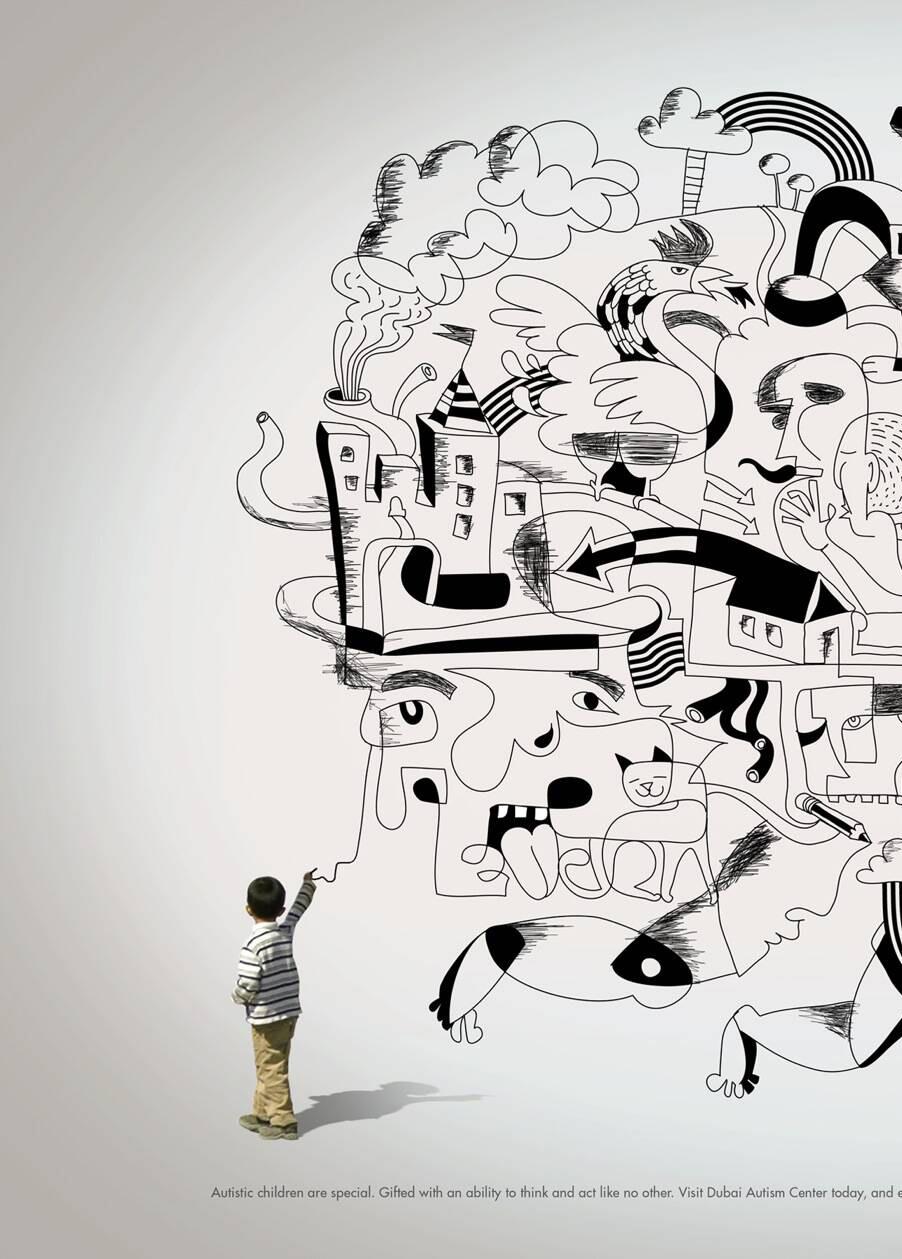
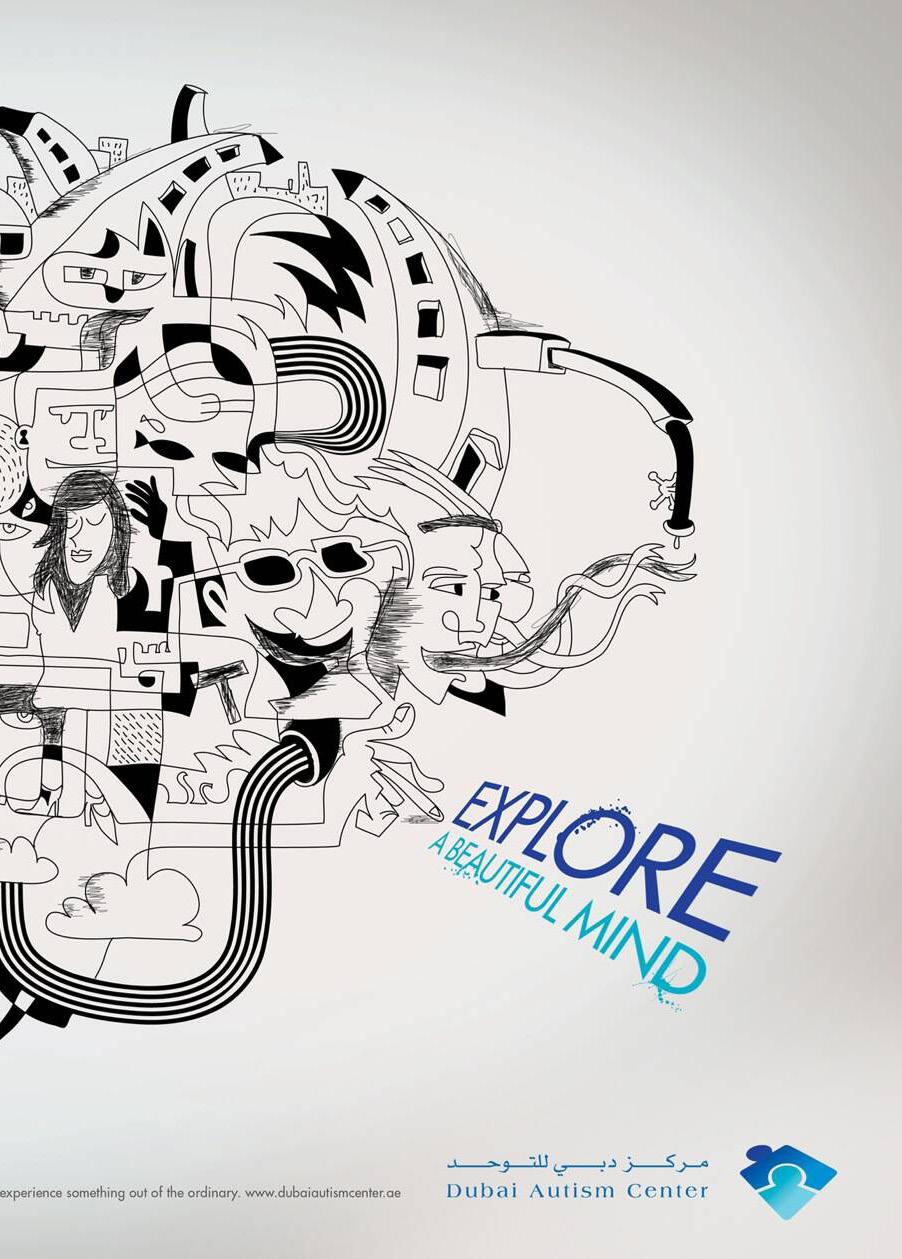
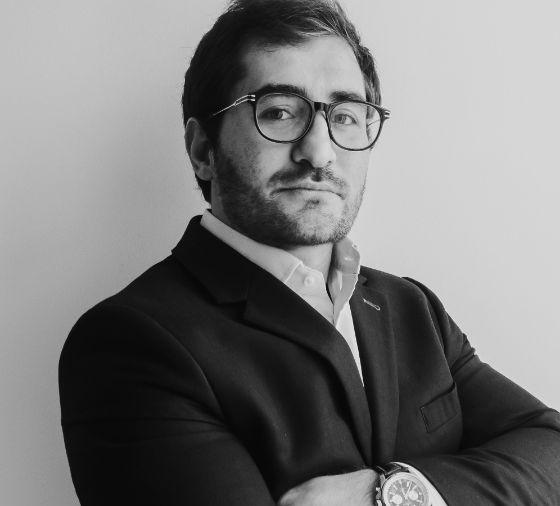
As sustainability and convenience become increasingly vital, MOTOR has emerged as a trailblazer in electric mobility. Established in 2019 in Dubai by a team of seasoned professionals, including Kazbek Khunkaev, MOTOR is not just another car rental service. It’s a forward-thinking solution that combines cutting-edge technology with eco-friendly transportation, perfectly tailored for the dynamic lifestyle of the MENA region. MOTOR has quickly made a name for itself in the electric mobility space in the MENA region.
GROW YOUR OWN
In the face of growing environmental challenges, the need for sustainable production and consumption has never been more critical. The United Arab Emirates (UAE) is embracing this challenge by exploring innovative solutions that align with the 12th Sustainable Development Goal (SDG) – Responsible Production and Consumption. Despite existing frameworks targeting sustainable practices, there remains significant potential for reducing water consumption, addressing food insecurity, and promoting lifestyles in harmony with nature. One promising solution that bridges these challenges at both commercial and residential levels is hydroponics.

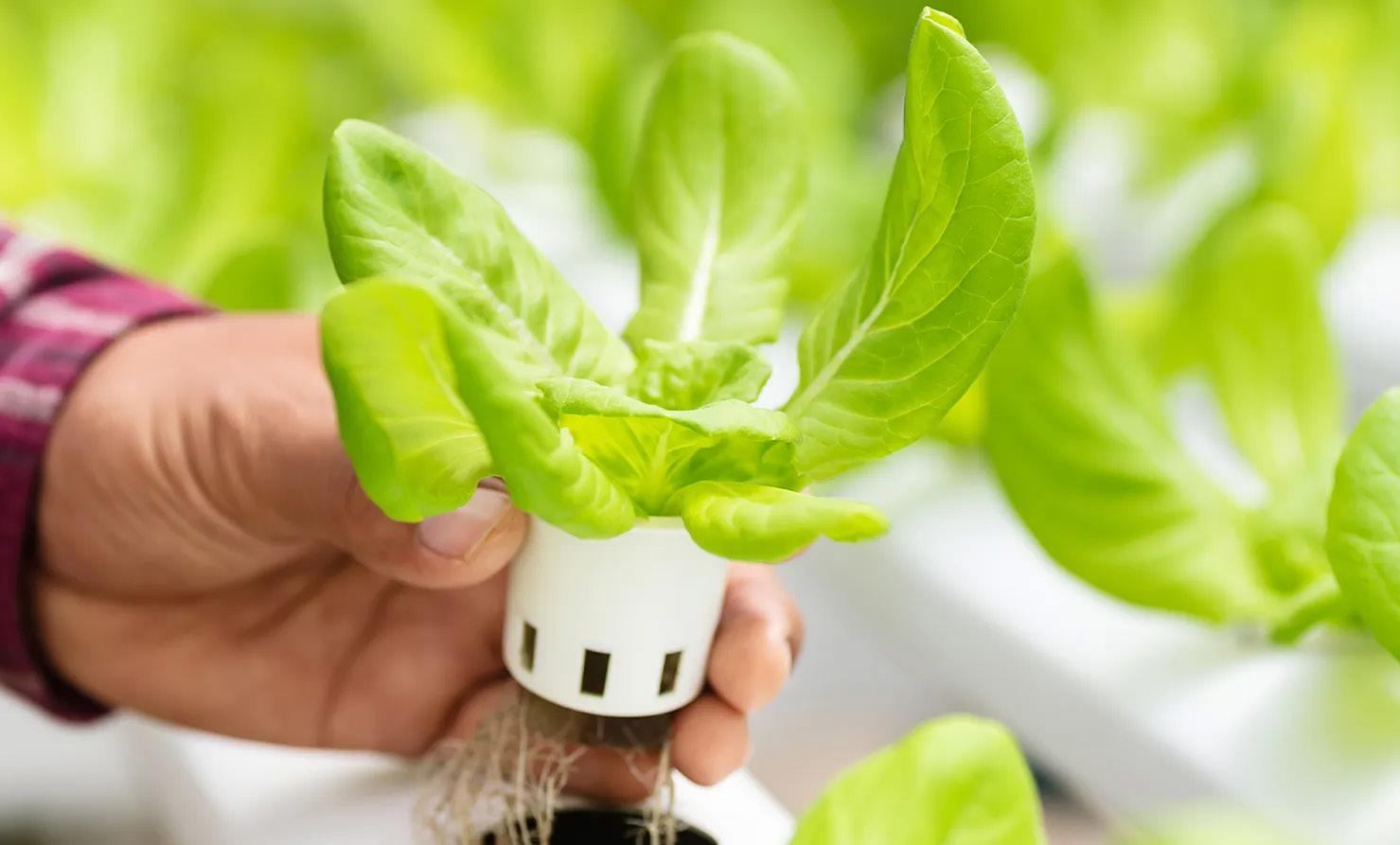
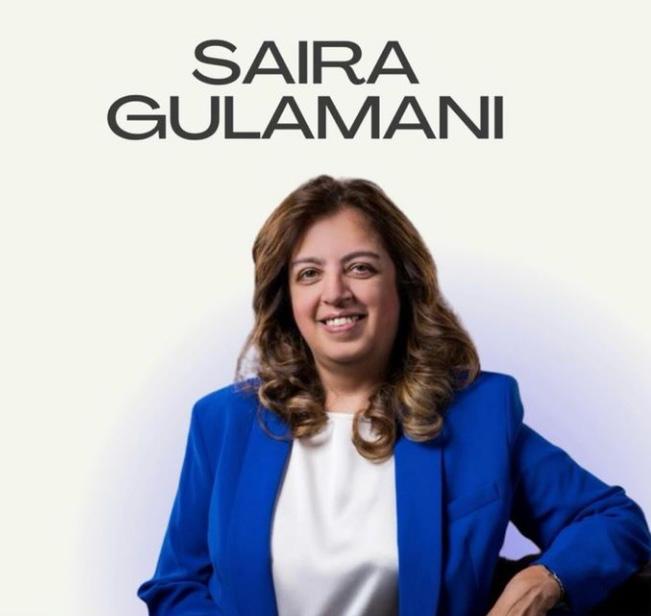
In an era where technology and sustainability are at the forefront of global conversations, doyourbit.xyz emerges as a beacon of innovation, bridging the educational gap between urban and rural communities. Founded by Saira Gulamani, an HR professional with a passion for climate change education and technological empowerment, doyourbit.xyz is transforming how students learn and apply their knowl-
the world shifts towards more sustainable practices, the MENA region is witnessing a remarkable transformation led by innovative platforms like Sustynable. Co-founded by Mohammad Hassan, a seasoned Sales & Marketing expert with over a decade of experience, Sustynable is setting new standards in the digital lifestyle space by offering a holistic approach to sustainable living. As a seasoned Sales & Marketing expert with over a decade of experience in the MENA region, Mohammad Hassan recently co-founded a groundbreaking platform called Sustynable. He started the conversation by sharing the inspiration for creating this platform and said, “Sustynable was born out of a deep-rooted concern for the environment and the realization that sustainable living is not just a necessity but an urgent one. Over the years, I’ve seen firsthand how our region, while rich in resources, faces significant environmental challenges. The idea behind Sustynable was to create a digital lifestyle platform that makes the transition to a more sustainable way of life easy, accessible, and appealing for everyone, whether individuals or businesses.
edge to real-world challenges. The mission of doyourbit.xyz is rooted in the belief that every student, regardless of their geographic location, deserves access to quality education and the tools necessary to succeed in the digital age. Whether in the bustling urban centres or the remote rural areas, doyourbit.xyz ensures that students have the opportunity to engage with technology and develop skills that are essential for the future. “Our goal is to bridge the gap between urban and rural education by empowering students with the knowledge and skills to harness technology,” explains Saira Gulamani. “We believe that by providing equal access to education, we can nurture a generation of innovators who are equipped to create meaningful solutions to global challenges.”

As sustainability becomes an increasingly pressing global priority, Rumbella is making a significant impact in the fight against food waste. Established in the UAE during the nation’s Year of Sustainability, Rumbella is a social enterprise focused on minimizing the environmental footprint of food waste across the GCC region. By leveraging cutting-edge technology, forging strategic partnerships, and upholding a strong commitment to social responsibility, Rumbella is not only addressing the issue of food waste but also advancing broader sustainability and climate action objectives. Chris Wilson, the CEO of Rumbella, is at the helm of this transformative initiative, combining technology, sustainability, and social responsibility to create a better future for both people and the planet.
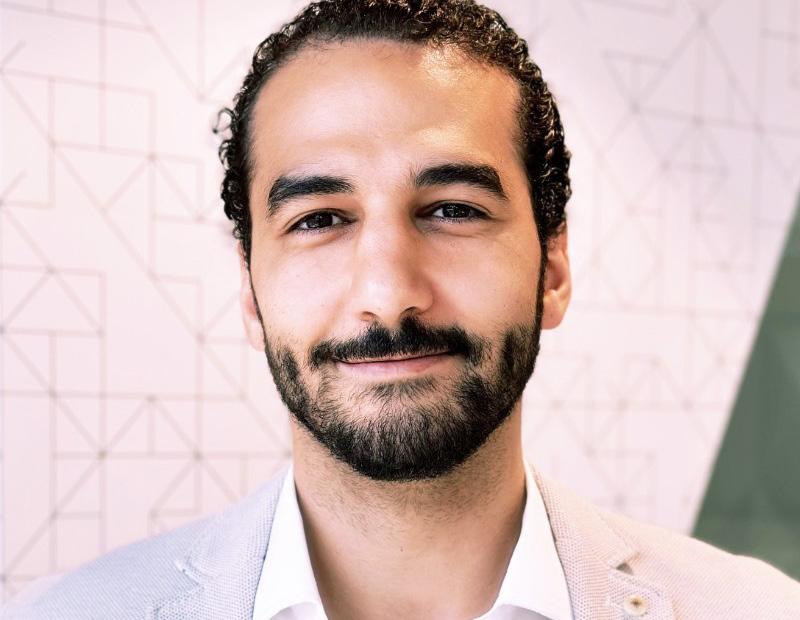
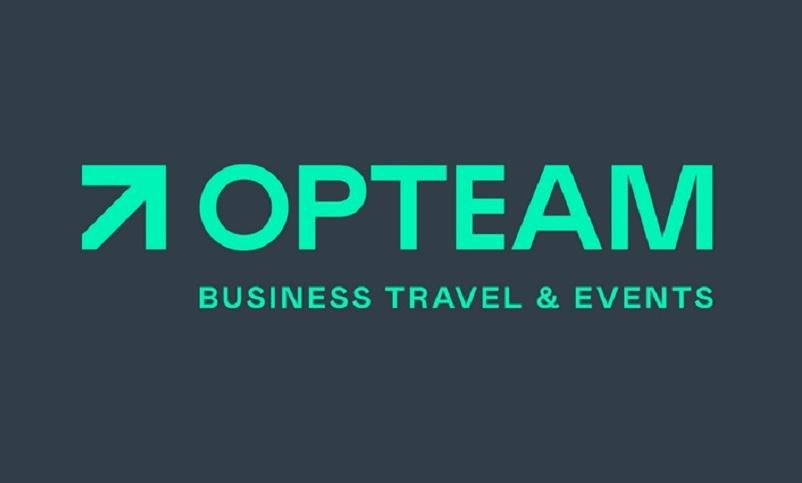

Amidst the growing challenge of balancing food abundance with widespread hunger, Food4All has emerged as a transformative force, utilizing technology to connect surplus food with those in need. Founded by Abdul Saleem Palliyalil Oniyottil, a Senior Software Engineer with a strong commitment to social impact, Food4All addresses the dual crises of food waste and global hunger with innovative solutions that promote sustainability and community well-being. In this exclusive conversation, he shares his journey, the vision behind Food4All, and how he plans to make a global impact.
In an industry traditionally resistant to change, Opteam AI is making waves by leveraging the power of generative AI to transform the construction landscape. Founded with a mission to address the inefficiencies and environmental challenges of construction, Opteam AI is optimizing project management and championing sustainability in a sector known for its resource-intensive practices.In an exclusive interview with Ahmed Hegazy, CEO of Opteam AI, we delve into the transformative potential of AI in the construction industry and the driving force behind Opteam’s mission to make sustainable decisions that benefit humanity. He left a stable, high-paying corporate career to start Opteam AI. Ahmed shared with us the inspiration to make such a bold move and added, “The decision to leave my corporate career wasn’t easy, but it was a move driven by a deep sense of purpose. Throughout my career in the global enterprise software sector, I saw firsthand how technology could be leveraged to solve complex problems. However, I also noticed a gap in how technology was being used to address larger, more systemic issues, particularly in sustainability and resource management.

Nimit Solanki’s journey towards creating Vikalp.io began with a simple yet profound realization. “I’ve always been passionate about technology and its potential to solve real-world problems,” says Solanki. “During my time working with tech giants like Careem and Deutsche Telekom, I saw how AI and data analytics could transform industries. But when it came to waste management, the industry seemed stuck in the past.”This observation led Solanki to explore the intersection of technology and waste management. “The global waste crisis is something that has been escalating rapidly,” he explains. “I wanted to create a solution that would not only address this issue but also set a new standard for how we think about waste and recycling.

In the bustling city of Sharjah, a pioneering initiative is revolutionizing our perspective on transportation and sustainability. EnviroRide, spearheaded by the enterprising Mouza Alketbi, is redefining urban mobility with a novel approach that merges environmental consciousness with practical transportation solutions. Born from a graduation project, this startup is making significant strides in reducing carbon emissions through the innovative recycling of used cooking oil into biodiesel. I had the pleasure of speaking with Mouza Alketbi to explore the vision behind EnviroRide and its impact on the future of eco-friendly transportation.

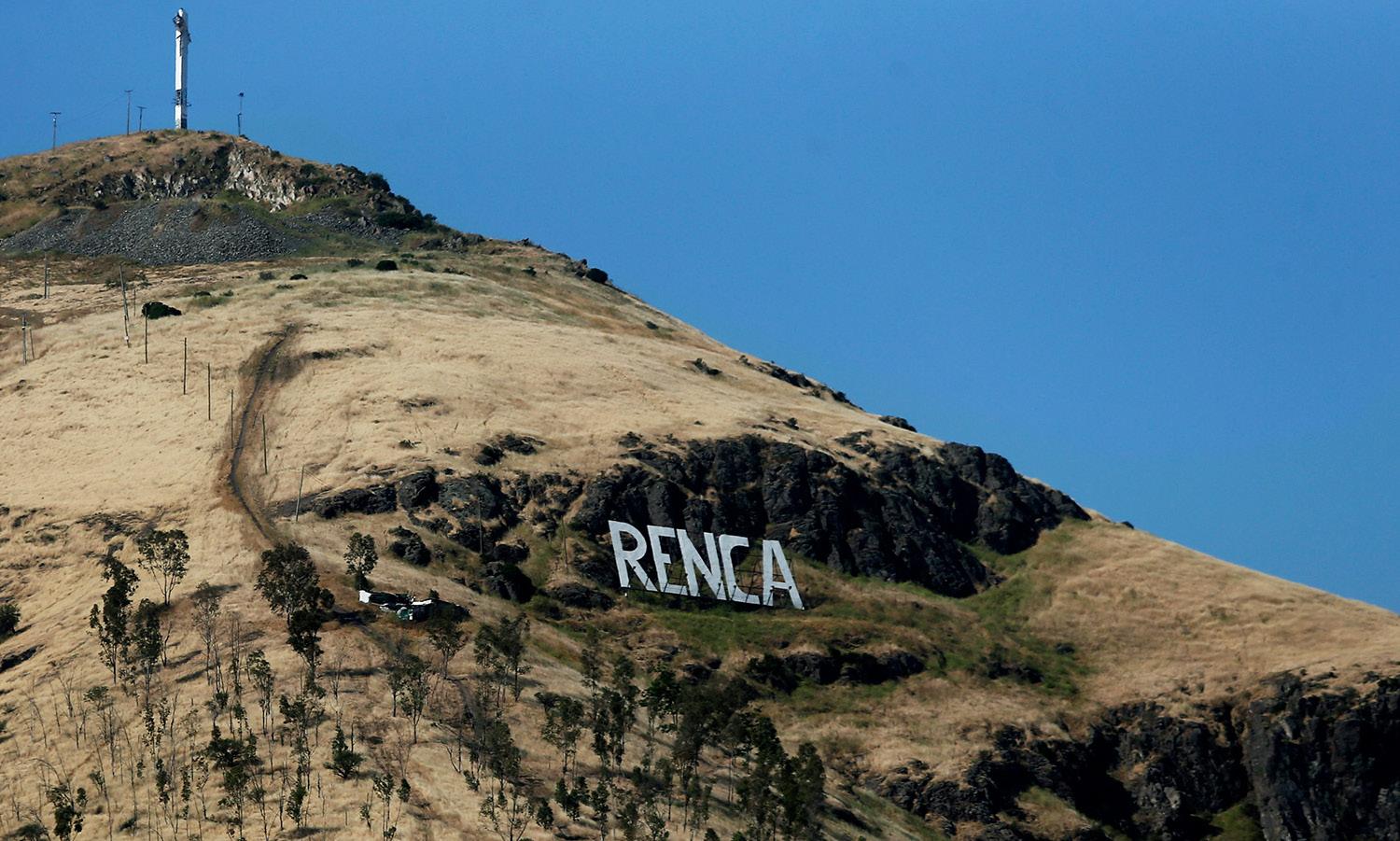
In the UAE’s arid climate, water scarcity is an ongoing challenge, prompting innovative solutions to secure a sustainable water future. Ghaith Water System, led by CEO Saif Alyassi, is at the forefront of this endeavour, utilizing Atmospheric Water Generators (AWGs) to transform humidity into drinkable water. This article explores how the Ghaith Water System is revolutionizing water accessibility through a blend of advanced technology and environmental stewardship. Ghaith Water System’s approach hinges on the power of Atmospheric Water Generators. These devices extract moisture from the air, condense it, and purify it to produce clean drinking water. This technology is particularly valuable in regions like the UAE, where traditional water sources are scarce, and sustainability is a pressing concern.
In the heart of Dubai’s thriving tech landscape, a new wave of environmental consciousness is taking root, driven by the innovative efforts of We Are Tech FZ LLC (WAT). Founded by Grégoire Denjean-Massia, WAT is a company on a mission to transform how businesses manage their electronic waste. With a focus on simplifying the process of e-waste disposal, while ensuring it is done responsibly and sustainably, WAT is redefining the relationship between technology and the environment. As I sat down with Grégoire in WAT’s office, it was immediately clear that this is more than just a business venture for him—it’s a deeply personal mission. “The birth of my son was a turning point,” Grégoire shared, his eyes reflecting a mix of passion and determination.
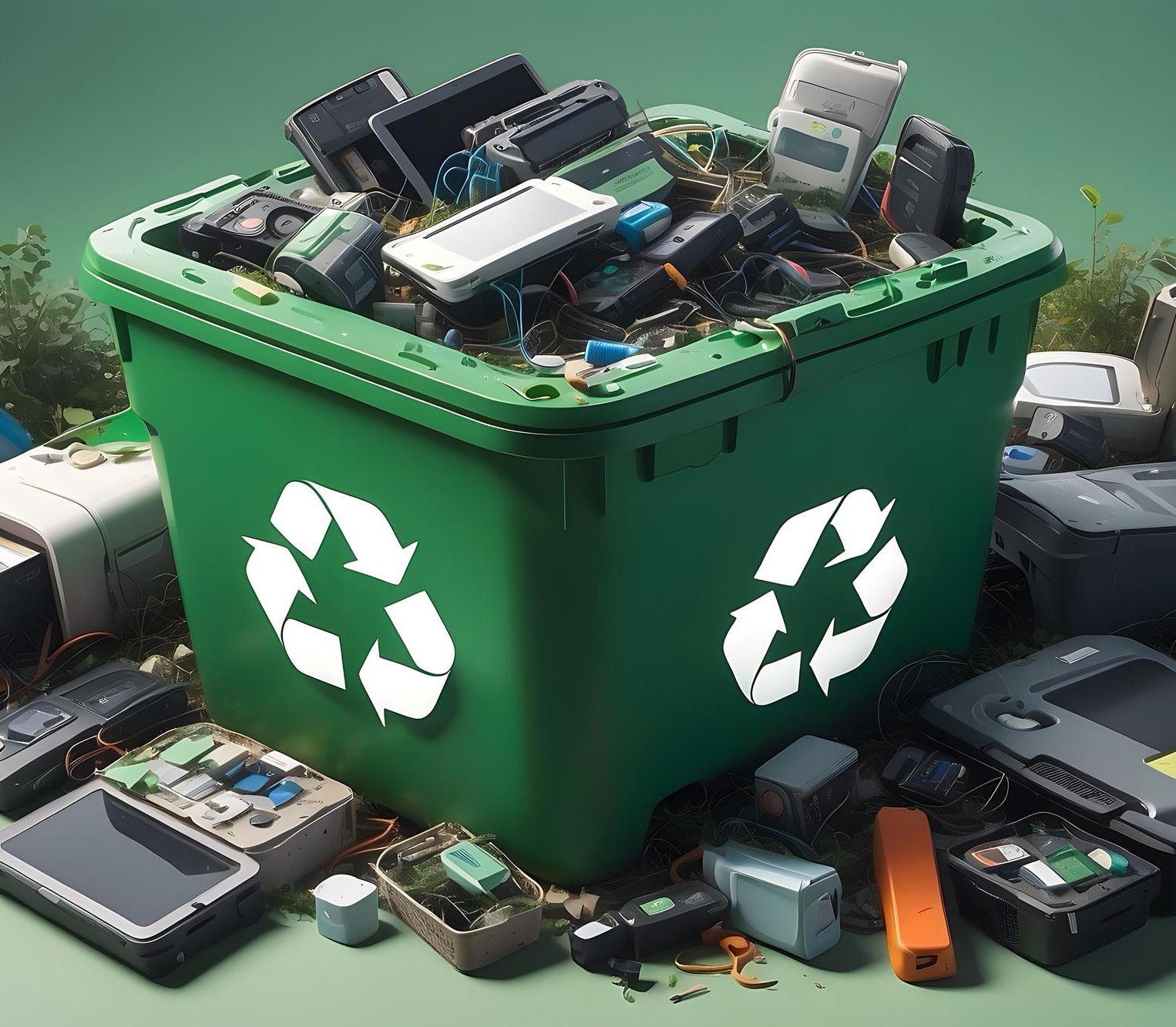
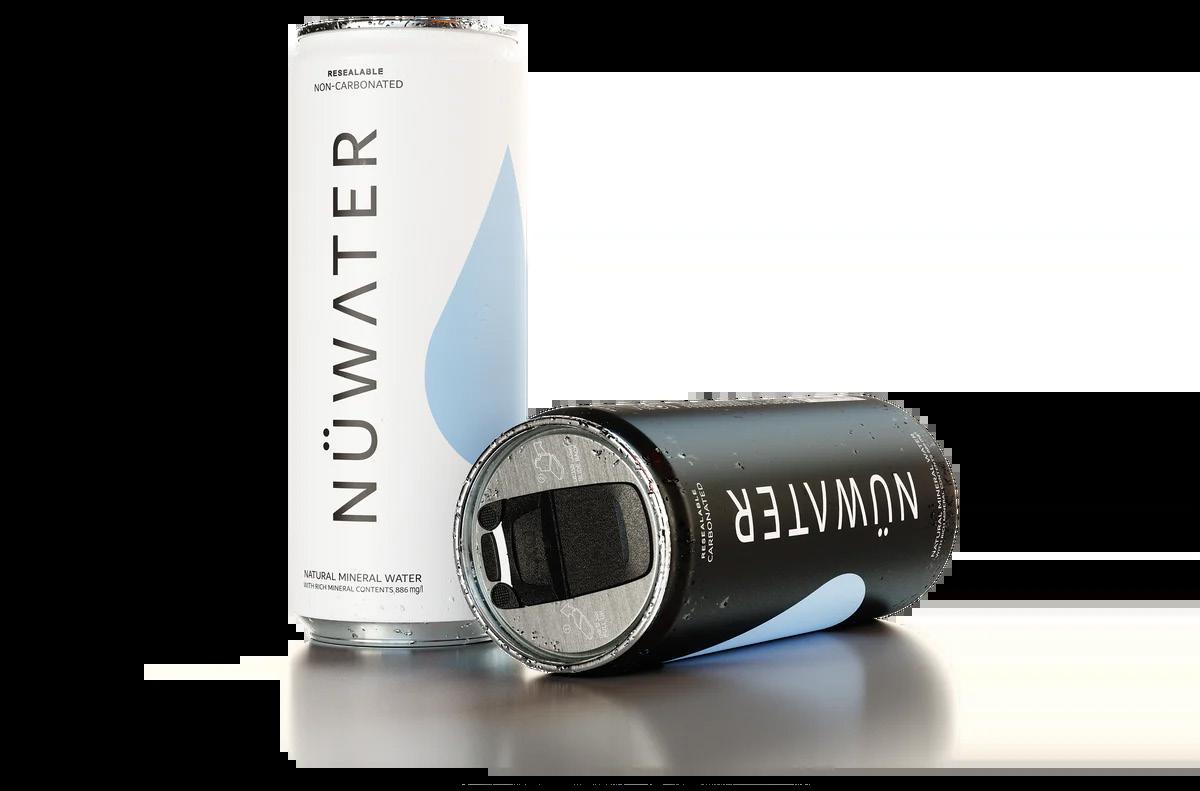
Amid Dubai’s dynamic innovation environment, Renca is establishing itself with its pioneering approach to sustainable construction. Walking through their vibrant office, anyone could feel the energy and enthusiasm that drive their work. Leading this green revolution is Marina Dudnikova, the CEO whose vision and expertise are guiding Renca toward a more sustainable future.
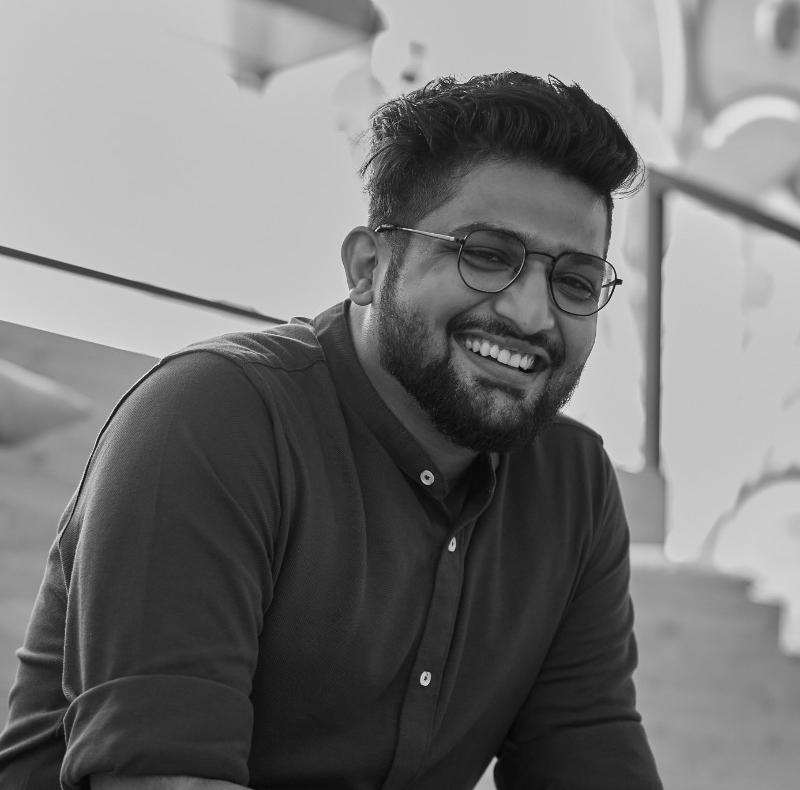
In a world where the lines between physical and digital realities are increasingly blurred, LEAFES Corp is pioneering the intersection of fashion and technology in the Metaverse. Founded by visionary entrepreneur Olga Gi, LEAFES is not just another fashion house, it’s a revolutionary platform that redefines how we experience and interact with fashion in the digital realm.During our
NÜWATER is making waves with its innovative approach to sustainable hydration in Dubai. Founded by Cyrus Alavi, a former Apple engineer turned entrepreneur, NÜWATER is not just another bottled water company. It’s a movement towards reducing plastic waste and promoting environmental sustainability.
In a world increasingly driven by technology, the growing mountains of electronic waste (e-waste) pose a serious threat to our environment. Yet, amid this challenge, a new player is making waves with a vision to revolutionize how we interact with our electronic devices. Retake, a Dubai-based company, is not just another tech firm, it’s a movement toward a more sustainable future. Spearheading this revolution is Amol Panchal, the CEO and founder, who is passionately committed to reducing e-waste and promoting a circular economy.

conversation about LEAFES Corp’s in Dubai, the energy was electric, reflecting the dynamic and innovative spirit that drives the company. Olga, the CEO, started talking with a confident smile, her enthusiasm for the future of fashion evident from the start. “At LEAFES, we’re not just creating digital clothes, we’re building a whole new ecosystem for fashion in the Metaverse,” she explained, her eyes lighting up with excitement. Olga’s journey to founding LEAFES is as multifaceted as the digital landscapes her company is exploring.


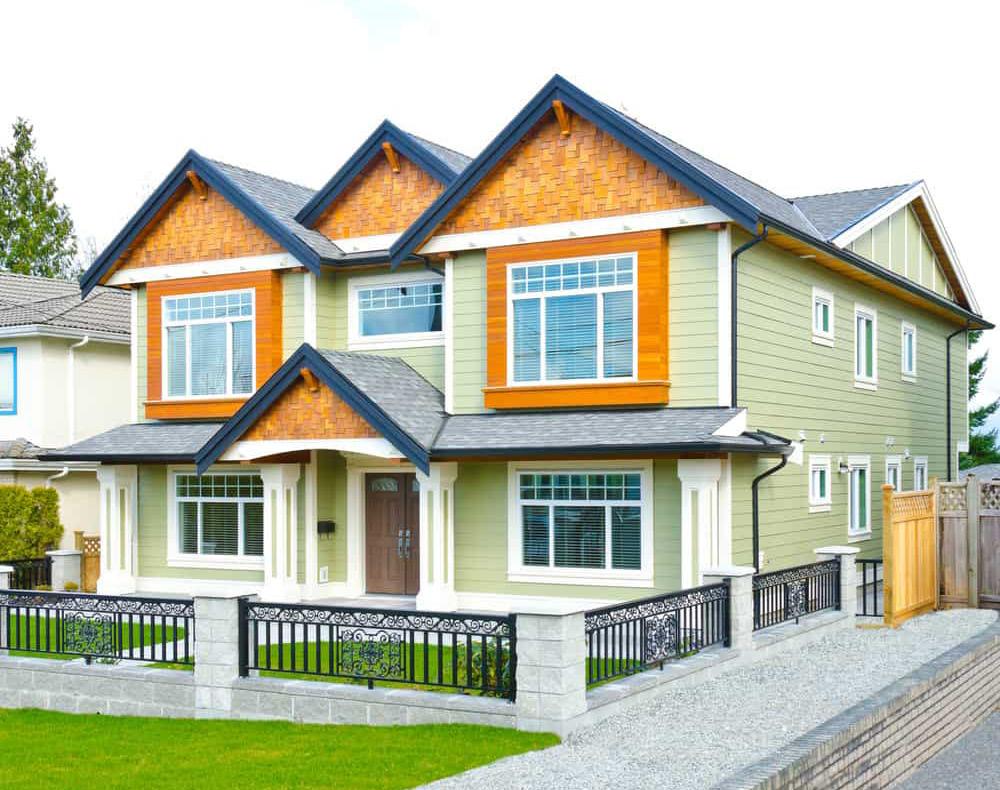
OT Sustainable Homes is transforming the landscape of affordable housing in emerging markets with a bold, innovative approach. The company, founded by Anthony Oyoo Odero, is on a mission to provide low-cost, sustainable 3D-printed homes to those in need. As I sat down with Anthony to discuss his vision, it became clear that his passion for addressing housing shortages is deeply rooted in both personal experience and a commitment to sustainable development.
In the bustling retail world, where efficiency and turnover are paramount, the issue of food waste has become an increasingly pressing concern. Supermarkets and grocery stores frequently discard perfectly edible food items as they near their “best by” dates, leading to significant waste. Recognizing the need for change, BestBy, an innovative Abu Dhabi-based startup, is tackling this problem head-on. The company’s CEO, Sabira Huda, is on a mission to reduce food waste and promote sustainability through a unique digital platform. In a recent conversation, Sabira Huda explained the vision behind BestBy: “Our platform is designed to bridge the gap between consumers and retailers by offering food items nearing their best-by dates at discounted prices. This not only helps reduce food waste but also benefits consumers and retailers alike.”
In the heart of Dubai’s fast-paced tech scene, F3rn DeFi stands out not just for its innovative approach to finance but for its commitment to environmental sustainability. The brainchild of Nabeel Mohammed, F3rn DeFi merges the worlds of decentralized finance (DeFi) and environmental activism, creating a platform that empowers communities to take charge of their surroundings while ensuring transparency and accountability. As we started our sustainability conversation, Nabeel’s passion for both technology and the environment was immediately evident. “F3rn DeFi isn’t just about finance, it’s about creating a movement where people can come together to make a tangible impact on their communities,” Nabeel began. His background as an education consultant, combined with a deep interest in technology, has uniquely positioned him to bridge these two worlds.

In a rapidly evolving digital world, traditional paper business cards are becoming relics of the past. Leading the charge into the future of networking is TapToCard, a Dubai-based company that is reinventing the way professionals connect and share information. Founded in 2021, TapToCard offers a smart, sustainable alternative to paper business cards, utilizing Near Field Communication (NFC) technology to make contact sharing seamless, efficient, and eco-friendly. To delve deeper into the journey of TapToCard, I sat down with the company’s dynamic founder, Sarthak Sethi, a seasoned entrepreneur and TEDx speaker. His passion for innovation and sustainability is evident from the moment we start talking. “TapToCard was born out of a desire to merge convenience with sustainability,” Sethi explains.

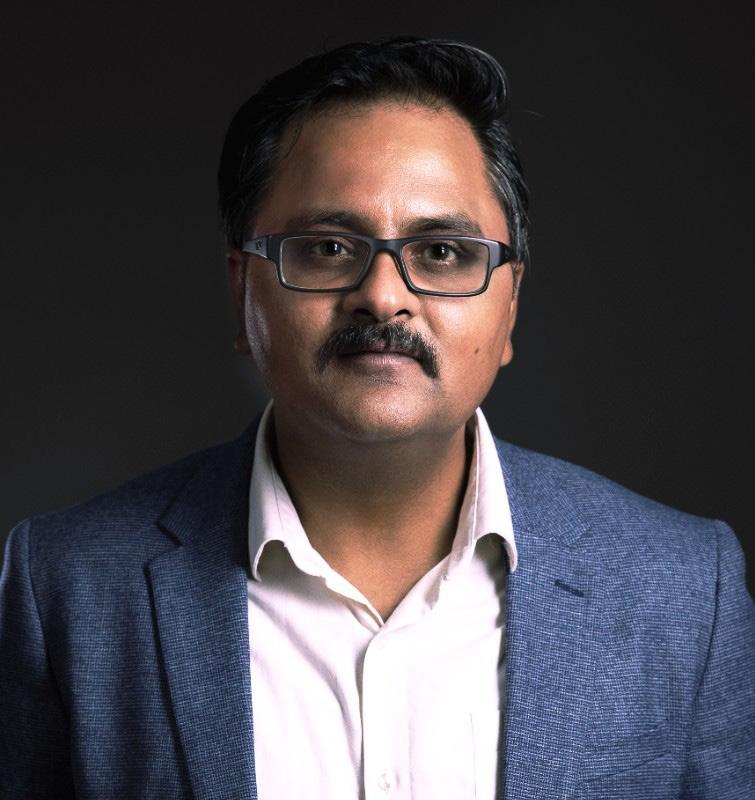
In the face of accelerating climate change, businesses around the world are under increasing pressure to adopt sustainable practices. Olive Gaea FZCO, a leading Dubai-based Sustainability as a Service (SaaS) platform, is at the forefront of this movement, providing innovative solutions for carbon accounting, decarbonization, and achieving Net Zero emissions. At the helm of this forward-thinking company is Vivek Tripathi, a strategic thinker with over 17 years of global business leadership experience. In a recent conversation with Tripathi, his commitment to environment and business innovation was immediately evident. “Our mission at Olive Gaea is to empower businesses to take real, science-based climate action,” Tripathi explained. “We are not just providing a service, we are enabling a movement towards a more sustainable and carbon-neutral future.”
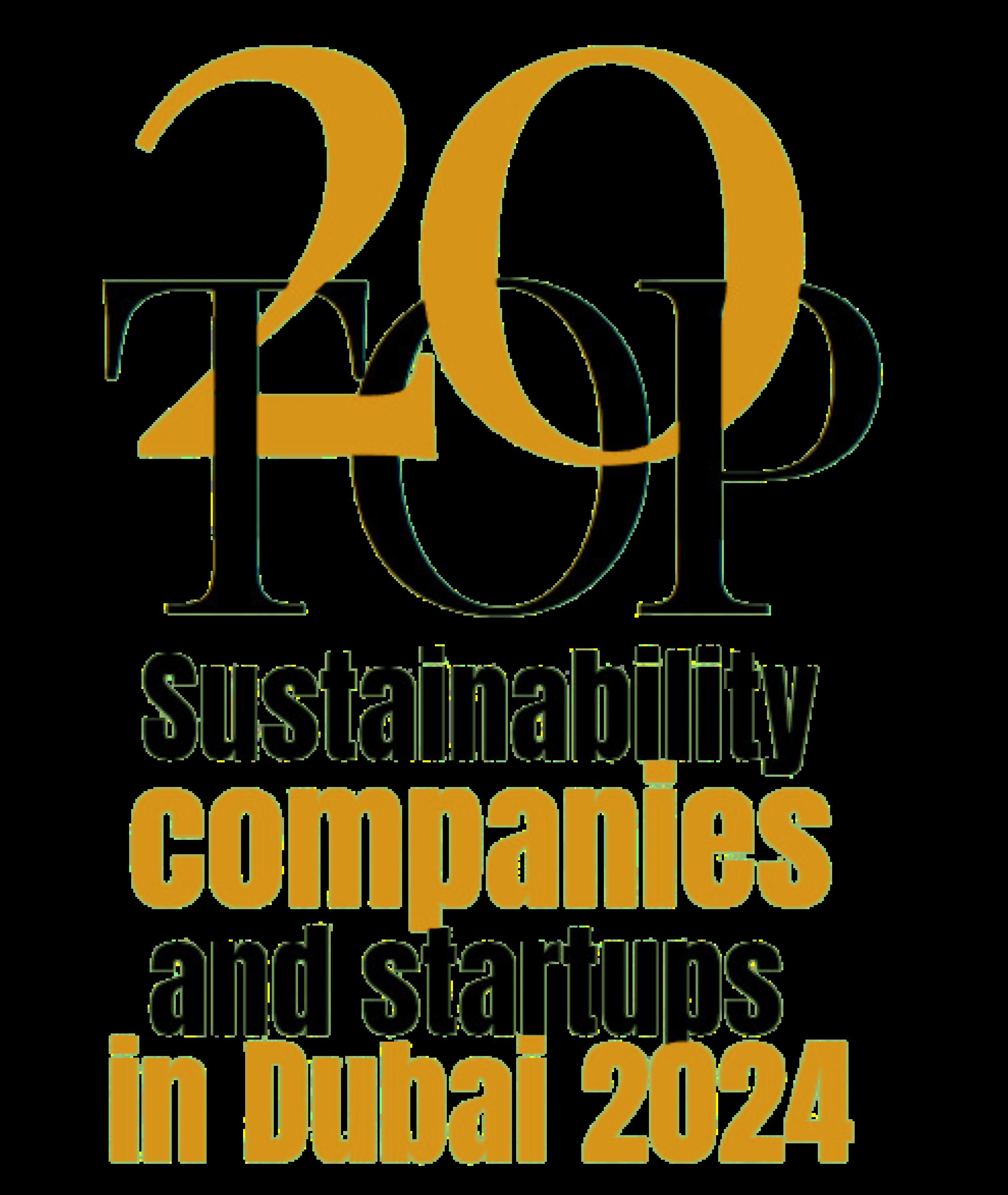
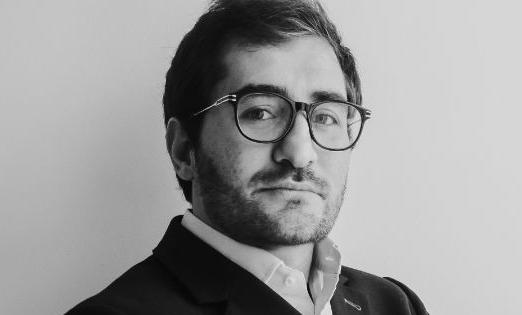
As sustainability and convenience become increasingly vital, MOTOR has emerged as a trailblazer in electric mobility. Established in 2019 in Dubai by a team of seasoned professionals, including Kazbek Khunkaev, MOTOR is not just another car rental service. It’s a forward-thinking solution that combines cutting-edge technology with eco-friendly transportation, perfectly tailored for the dynamic lifestyle of the MENA region. MOTOR has quickly made a name for itself in the electric mobility space in the MENA region.
Co-founders Hamad AlMazrooei and Kazbek Khunkaev described MOTOR as a next-generation car-sharing platform that offers residents and businesses flexible options for renting or subscribing to electric vehicles. They highlighted that rising fuel costs, along with the ‘UAE Net Zero 2050’ Vision and the government’s goal of converting 20 percent of its fleet to electric vehicles by 2030, have significantly boosted demand for electric vehicles across the emirates.
As we started our conversation Kazbek
shared his inspiration for founding MOTOR, “MOTOR was born out of our collective experience and passion for creating smarter, more sustainable urban mobility solutions. My team and I had previously launched the first carsharing company in Russia, and we saw a unique opportunity to bring that expertise to the MENA region. Dubai, with its innovative spirit and push towards sustainability, was the perfect place to introduce a service that not only makes transportation more convenient but also aligns with the city’s green vision.” He added.
UAE residents can easily locate and rent MOTOR’s electric vehicles, including the Tesla Model 3 and soon the Tesla Model Y, through a simple registration process on the MOTOR Share app. The platform offers several perks, such as complimentary parking in all public RTA spaces across Dubai, free EV charging, comprehensive insurance, and affordable rates. Detailing MOTOR’s customer-centric features, Kazbek stated, “Our goal at MOTOR is not only to accelerate the transition to electric vehicles but also to make sustainable mobility more accessible, affordable, and flexible. We have a
principle at MOTOR – always prioritize what the customer would want over what is easier for us. This approach has led to a series of innovations in our business model,” he continued. “For instance, we offer remote cooling as a feature through our app for all clients, and we highlight all available chargers in Dubai. We’re committed to spending as much time as needed to assist clients with their charging needs, especially during long trips. Looking ahead, we’re introducing a points system that will reward users for driving well and choosing the most economical options. We recognize that we’re offering something new to our clients, so we’re very careful in how we engage with them.” He clarified.
Talking about sustainability and climate change, Kazbek said, “Sustainability is at the core of everything that we do. It is not only about electric vehicles, it is about sustainable behaviour that we want to promote, more efficient driving, optimized charging, and shared mobility instead of purchased mobility. All are directed at making sure that the limited resources our planet provides are used in a responsible manner. We also plan to offset whatever limited carbon footprint we create through a series of environmental initiatives, can’t disclose everything yet but it will be impactful for certain.” He affirmed. Kazbek shared that MOTOR plans to expand its fleet to 200 cars by the end of 2022 and launch its platform in Saudi Arabia and other GCC countries by 2023.
Following the introduction of its EV-sharing platform, MOTOR also intends to roll out an EV subscription service and establish a charging network by the end of 2022. Additionally, the platform will introduce a sustainable driving rewards points system, allowing users to unlock rides and receive discounts. Businesses using the platform will benefit from enhanced efficiencies, with the ability to consolidate car rentals through custom mobility solutions, providing a flexible way to optimize their fleet utilization.


In the face of growing environmental challenges, the need for sustainable production and consumption has never been more critical. The United Arab Emirates (UAE) is embracing this challenge by exploring innovative solutions that align with the 12th Sustainable Development Goal (SDG) – Responsible Production and Consumption. Despite existing frameworks targeting sustainable practices, there remains significant potential for reducing water consumption, addressing food insecurity, and promoting lifestyles in harmony with nature. One promising solution that bridges these challenges at both commercial and residential levels is hydroponics.
The UAE, with its arid climate and limited freshwater resources, faces unique challenges in its pursuit of sustainable development. Water scarcity is a pressing concern, exacerbated by traditional agricultural practices that consume vast amounts of water. Coupled with this is the issue of food insecurity,
where reliance on food imports leaves the country vulnerable to global supply chain disruptions.
Hydroponics, a soil-less method of growing plants using mineral nutrient solutions in water, offers a revolutionary approach to agriculture that addresses these challenges. By using hydroponic systems, water consumption in agriculture can be reduced by up to 80%, a significant reduction that could have far-reaching impacts on the UAE’s water conservation efforts. Moreover, hydroponics allows for year-round cultivation, increasing food production efficiency and reducing dependency on imports.
To maximize the potential of hydroponics on a macro level, the integration of renewable energy sources is essential. The UAE’s abundant sunlight makes it an ideal candidate for solar energy, which can be harnessed to power hydroponic farms. Additionally, hybrid hydrogen energy systems can be utilized to further reduce the carbon footprint of agricul-
tural production. This combination of hydroponics with renewable energy sources not only conserves water and increases food security but also aligns with the UAE’s broader sustainability goals, including the UAE Net Zero 2050 vision.
The concept of green development ties together the macro and micro initiatives within our proposed solution. While large-scale hydroponic farms address national food security and water conservation, the same technology can be scaled down to enhance sustainable living practices on a personal level. Hydroponic gardening at home or in offices is an emerging trend that fosters self-reliance and promotes biophilic design, the integration of natural elements into indoor environments.
Hydroponics and Green Interior Design
Our environment has a profound impact on our health and quality of life. Green interior design, which incorporates natural elements into the built environment, is gaining traction worldwide for its benefits to both people and the planet. Residents and employees who live or work in green structures report improved health, reduced stress levels, and enhanced overall quality of life. This is achieved through design features such as improved lighting, better thermal conditions, ergonomic considerations, and upgraded air quality.
Hydroponic gardening plays a crucial role in this green design movement. By enabling the cultivation of plants without soil, hydroponics allows for the creation of lush, green spaces within homes and offices, even in urban environments where space is limited. These indoor gardens not only provide a source of fresh, organic produce but also contribute to improved air quality and a calming atmosphere, reinforcing the connection between nature and well-being.


As the world shifts towards more sustainable practices, the MENA region is witnessing a remarkable transformation led by innovative platforms like Sustynable. Co-founded by Mohammad Hassan, a seasoned Sales & Marketing expert with over a decade of experience, Sustynable is setting new standards in the digital lifestyle space by offering a holistic approach to sustainable living.
As a seasoned Sales & Marketing expert with over a decade of experience in the MENA region, Mohammad Hassan recently co-founded a groundbreaking platform called Sustynable. He started the conversation by sharing the inspiration for creating this platform and said,
“Sustynable was born out of a deep-rooted concern for the environment and the realization that sustainable living is not just a necessity but an urgent one. Over the years, I’ve seen firsthand how our region, while rich in resources, faces significant environmental challenges. The idea behind Sustynable was to create a digital lifestyle platform that makes the transition to a more sustainable way of life easy,
accessible, and appealing for everyone, whether individuals or businesses.”
What sets Sustynable apart from other sustainability initiatives is its comprehensive framework built around seven key pillars: Air, Water, Soil, Waste, Energy, Mobility, and Health. Each pillar represents a crucial aspect of sustainability, ensuring that users address every facet of their lifestyle and business practices.
Air: Focuses on reducing pollution and improving air quality, both indoors and outdoors.
Water: Promotes efficient water use, conservation, and sustainable practices in water management.
Soil: Encourages sustainable agriculture, soil preservation, and the use of eco-friendly products.
Waste: Advocates for reducing, reusing, and recycling to minimize waste and its environmental impact.
Energy: Supports the adoption of renewable energy sources and ener-
gy-efficient practices.
Mobility: Highlights eco-friendly transportation options, reducing carbon footprints through sustainable travel.
Health: Emphasizes lifestyle choices that are beneficial for both personal well-being and the environment.
This holistic approach allows Sustynable to cater to a wide range of users, from individuals seeking to make small changes in their daily lives to businesses aiming to overhaul their operations for a greener future.
Sustynable’s platform is designed to be user-friendly and engaging. New users begin their journey by selecting the pillars that resonate most with their personal or business goals. They then pledge towards specific initiatives within these pillars—whether it’s reducing water usage, switching to renewable energy, or adopting a waste-reduction strategy.
The platform provides continuous support throughout this journey, offering personalized tips, resources, and tools to help users stay on track. Sustynable also fosters a sense of community by enabling users to connect with others on similar journeys, share experiences, and participate in challenges that promote sustainable practices.
“We believe in the power of community and shared experiences,” explains Hassan. “By connecting our users, we create a network of support that makes sustainable living not just a goal, but a reality.”
Sustynable’s mission is to create a ripple effect that extends beyond individual users to influence larger communities and industries. For individuals, the platform offers a pathway to a more mindful and eco-friendly lifestyle. For businesses, Sustynable provides the tools and guidance needed to align with global sustainability goals, which are increasingly becoming a priority for consumers and stakeholders alike.


In an era where technology and sustainability are at the forefront of global conversations, doyourbit.xyz emerges as a beacon of innovation, bridging the educational gap between urban and rural communities. Founded by Saira Gulamani, an HR professional with a passion for climate change education and technological empowerment, doyourbit.xyz is transforming how students learn and apply their knowledge to real-world challenges.
The mission of doyourbit.xyz is rooted in the belief that every student, regardless of their geographic location, deserves access to quality education and the tools necessary to succeed in the digital age. Whether in the bustling urban centres or the remote rural areas, doyourbit.xyz ensures that students have the opportunity to engage with technology and develop skills that are essential for the future.
“Our goal is to bridge the gap between urban and rural education by empowering students with the knowledge and skills to harness technology,” explains Saira Gulamani. “We believe that by
providing equal access to education, we can nurture a generation of innovators who are equipped to create meaningful solutions to global challenges.”
At the heart of doyourbit.xyz’s curriculum is the integration of the United Nations Sustainable Development Goals (SDGs), particularly those related to climate change and sustainability. Students are not only taught the importance of these goals but are also encouraged to apply their knowledge to address pressing issues in their communities.
One of the unique aspects of doyourbit.xyz is its focus on coding education as a tool to combat climate change. By introducing coding skills to students, especially in rural areas, the platform empowers them to develop innovative solutions that can make a real difference. This could be anything from creating apps that monitor environmental changes to designing systems that optimize resource use.
“Technology is a powerful tool in the
fight against climate change,” says Gulamani. “By teaching coding, we’re not just equipping students with a skill; we’re giving them the tools to be part of the solution.”
Doyourbit.xyz employs a project-based learning approach, which moves beyond traditional classroom instruction. Students engage in hands-on learning experiences through hackathons, inclass sessions, and integrated curriculum activities. This method encourages critical thinking, problem-solving, and collaboration, providing students with the opportunity to apply their theoretical knowledge to real-world scenarios.
For instance, students might work on a project to design a sustainable garden using hydroponic systems or develop an app that tracks and reduces energy consumption in their school. These projects not only make learning more engaging but also help students see the tangible impact of their work.
“We believe that learning should be an active, engaging process,” notes Gulamani. “When students take ownership of their projects, they develop a deeper understanding of the material and are more motivated to learn.”
One of the key initiatives of doyourbit. xyz is fostering collaboration between students from urban and rural backgrounds. By creating platforms for the exchange of ideas, the firm encourages knowledge sharing and innovation. This synergy between diverse settings promotes a sense of collective responsibility towards building a sustainable future.
“We create opportunities for students from different backgrounds to come together and work on projects,” says Gulamani. “This exchange of ideas fosters innovation but cultivates empathy and a broader understanding of global challenges.”

roles. This approach ensures that surplus food is utilized in the most beneficial way possible, contributing to both social welfare and environmental sustainability.
At the heart of Rumbella’s operations is a deep commitment to sustainability. The company aligns its mission with the UAE’s national goals, particularly in the context of the Year of Sustainability. By addressing food waste, Rumbella is directly contributing to the reduction of greenhouse gas emissions, helping to mitigate climate change.

As sustainability becomes an increasingly pressing global priority, Rumbella is making a significant impact in the fight against food waste. Established in the UAE during the nation’s Year of Sustainability, Rumbella is a social enterprise focused on minimizing the environmental footprint of food waste across the GCC region. By leveraging cutting-edge technology, forging strategic partnerships, and upholding a strong commitment to social responsibility, Rumbella is not only addressing the issue of food waste but also advancing broader sustainability and climate action objectives. Chris Wilson, the CEO of Rumbella, is at the helm of this transformative initiative, combining technology, sustainability, and social responsibility to create a better future for both people and the planet.
We started our conversation with Chris Wilson, the CEO of Rumbella, who shared his inspiration for founding Rumbella, and he said, “Rumbella was born out of a deep concern for the environmental and social implications of food waste. The UAE has one of the highest per capita waste generation
rates in the world, with around 38% of food prepared daily going to waste. This figure jumps to nearly 60% during Ramadan. Not only does this represent a massive waste of resources, but the decomposition of food waste emits methane, a greenhouse gas far more potent than CO2. The inefficiency of this system is alarming, and we knew we had to do something about it.
At Rumbella, our mission is to turn this waste into value. We help businesses in the food and beverage industry identify surplus items that are at risk of becoming waste. Instead of these items ending up in a landfill, we provide a platform where they can be sold at a discounted rate or donated to those in need. Our goal is to address three key areas: people, planet, and profit. By doing so, we create a sustainable business model that benefits everyone involved.” He emphasized.
Rumbella’s impact extends beyond just reducing waste. Any food that remains unsold on the platform is donated to charitable causes, supporting undernourished individuals in critical societal
Moreover, Rumbella goes a step further by planting a tree for every transaction made on its platform. This initiative helps offset the carbon footprint associated with food production and supports global reforestation efforts. Through these actions, Rumbella is not only reducing waste but also actively participating in the creation of a more sustainable future.
“Since our launch, we’ve seen a significant reduction in food waste among our partners. We provide detailed analytics to our partners, showing them the positive impact, they’re making in terms of emissions reductions, revenue generated, and costs avoided. These insights help them see the tangible benefits of their sustainability efforts.” Chris pointed.
Elaborated on the three pillars of Rumbella, Chris continued, “We recognize that food waste isn’t just an environmental issue, it’s a social one as well. By reducing food waste, we’re conserving resources and addressing hunger. The donations we facilitate help provide nutritious food to those who need it most, supporting the health and well-being of our communities.
The planet pillar is all about sustainability. Food waste is a major contributor to greenhouse gas emissions, and by reducing waste, we’re helping to mitigate climate change.


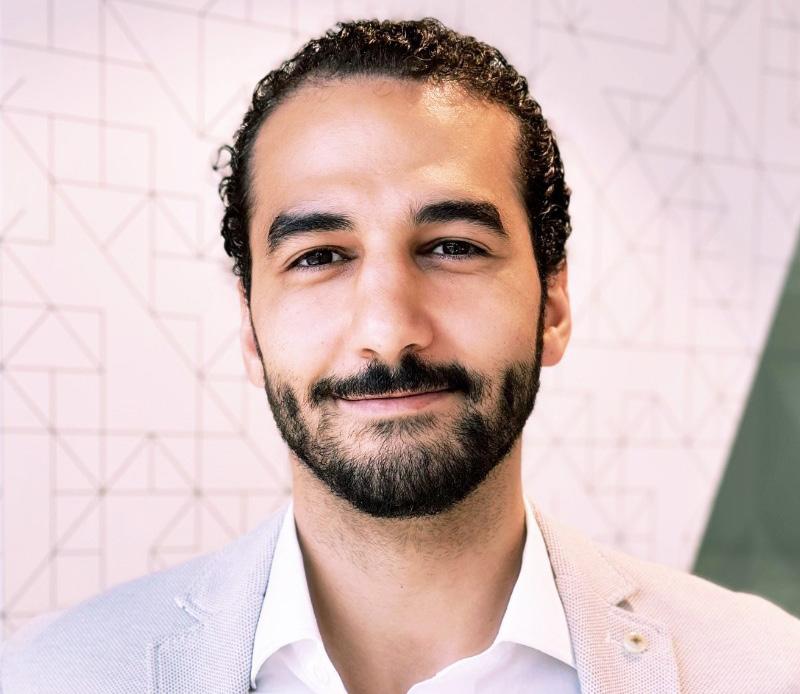
In an industry traditionally resistant to change, Opteam AI is making waves by leveraging the power of generative AI to transform the construction landscape. Founded with a mission to address the inefficiencies and environmental challenges of construction, Opteam AI is optimizing project management and championing sustainability in a sector known for its resource-intensive practices.
In an exclusive interview with Ahmed Hegazy, CEO of Opteam AI, we delve into the transformative potential of AI in the construction industry and the driving force behind Opteam’s mission to make sustainable decisions that benefit humanity. He left a stable, high-paying corporate career to start Opteam AI. Ahmed shared with us the inspiration to make such a bold move and added, “The decision to leave my corporate career wasn’t easy, but it was a move driven by a deep sense of purpose. Throughout my career in the global enterprise software sector, I saw firsthand how technology could be leveraged to solve complex problems. However, I also noticed a gap in how
technology was being used to address larger, more systemic issues, particularly in sustainability and resource management.
The construction industry, for instance, has been plagued by inefficiencies for decades, cost overruns, missed deadlines, and significant waste. I realized that AI could offer a solution to these challenges, not just by improving efficiency but by fundamentally rethinking how we approach construction and infrastructure projects. Opteam AI was born from the idea that we could use generative AI to make these projects faster, cheaper, and, importantly, more sustainable.” He spoke.
One of the key strengths of Opteam AI’s technology is its adaptability. It can operate as a standalone solution or be integrated with existing project management systems, providing flexibility for businesses without the need for a complete overhaul of their current processes. This seamless integration ensures that companies can enhance
their operations with AI-driven insights while continuing to use their familiar tools and workflows.
“At Opteam AI, we’ve developed a patented AI technology that analyzes billions of possible combinations of decisions related to these factors. Our AI system processes this data to arrive at the most mathematically optimized plan that meets project deadlines at the lowest possible cost. What makes our solution particularly powerful is its adaptability, the AI re-optimizes the plan in real time if any delays or changes occur during the project.
This dynamic approach not only helps in reducing costs and meeting deadlines but also ensures that resources are used in the most efficient way possible. This is critical in an industry where even small delays or misallocations can lead to significant waste.” He said.
Beyond efficiency and cost savings, Opteam AI is deeply committed to sustainability. The construction industry is a significant contributor to environmental degradation, from excessive resource consumption to carbon emissions. Opteam AI aims to mitigate these impacts by optimizing resource utilization and minimizing waste through its AI solutions.
The company’s mission is ambitious: to reduce humanity’s resource consumption by 20% while supporting the expansion of the built environment. By improving planning and resource allocation, Opteam AI not only helps projects run more smoothly but also extends the lifespan of infrastructure assets, reducing the need for new materials and lowering the overall carbon footprint.
“Sustainability is at the core of everything we do at Opteam AI. The construction industry is notorious for its resource consumption and waste generation while supporting the growth of our built environment.


Amidst the growing challenge of balancing food abundance with widespread hunger, Food4All has emerged as a transformative force, utilizing technology to connect surplus food with those in need. Founded by Abdul Saleem Palliyalil Oniyottil, a Senior Software Engineer with a strong commitment to social impact, Food4All addresses the dual crises of food waste and global hunger with innovative solutions that promote sustainability and community well-being. In this exclusive conversation, he shares his journey, the vision behind Food4All, and how he plans to make a global impact.
Abdul Saleem started by sharing with us the inspiration behind Food4All and how it all began,
“The idea for Food4All was born out of a deep concern for the paradoxical reality we live in, on one hand, there’s an abundance of food waste, and on the other, millions of people go hungry every day. I’ve always believed that technology can play a pivotal role in solving such societal issues. My background as a Senior Software Engineer
and my postgraduate studies in Business Administration gave me the tools to bring this idea to life. I wanted to create a platform where people could easily share their surplus food, and businesses could manage their excess inventory in a way that benefits the community.” He said.
At its core, Food4All is an online platform that brings together food banks, volunteers, F&B outlets, merchants, farmers, and home-based businesses, along with the general public, to foster a culture of food sharing. Individuals can share their surplus food and earn rewards, while businesses can sell their excess food at discounted rates, generating additional income. The platform is free for individuals, food banks, and volunteers, while businesses can benefit from a revenue-sharing model that makes the initiative self-sustaining.
Speaking about the social impact Food4All, Abdul Saleem added, “We’ve made significant strides since our inception. So far, we’ve facilitated the sharing of over 7,800 meals through our platform, and we’ve connected with 125
food banks across nine countries. These numbers are not just statistics, they represent lives touched and food that didn’t end up in a landfill. But we are just getting started. Our vision is to address food wastage at every point of the human life cycle by redistributing and properly channelling it. We aim to contribute significantly to the United Nations Sustainability Goals 2030, particularly those related to zero hunger and responsible consumption and production.” He spoke with pride.
Technology plays a pivotal role in the functioning of Food4All. The platform is designed to be user-friendly and accessible, allowing individuals and businesses to easily list and share surplus food. The use of technology also enables Food4All to scale its operations efficiently, connecting more food banks, volunteers, and businesses across different regions.
Moreover, the platform’s ability to track and analyze data related to food sharing and waste reduction provides valuable insights that can be used to improve operations and maximize impact. This data-driven approach ensures that Food4All is not just a platform for food sharing, but also a tool for understanding and addressing the root causes of food waste and hunger.
When asked about the challenges he had faced in building and growing Food4All, he said,
“One of the biggest challenges has been raising awareness and changing mindsets. Many people are not aware of the scale of food waste or how they can contribute to solving it. Educating the public and businesses about the benefits of food sharing has been an ongoing effort. Additionally, building a self-sustaining business model that aligns with our social mission was another challenge. We’ve had to ensure that the platform remains free for individuals and volunteers while still being able to generate revenue and scale our operations.”


Sustainability is at the forefront of global concerns, and Vikalp.io is leading the charge in innovative waste management solutions. Established by Nimit Solanki, an experienced technologist with a strong passion for environmental preservation, Vikalp.io is transforming the way businesses and communities handle waste. By harnessing the power of AI, IoT, and blockchain technology, Vikalp.io is tackling the worldwide waste problem while also supporting the broader objectives of a circular economy.
Nimit Solanki’s journey towards creating Vikalp.io began with a simple yet profound realization. “I’ve always been passionate about technology and its potential to solve real-world problems,” says Solanki. “During my time working with tech giants like Careem and Deutsche Telekom, I saw how AI and data analytics could transform industries. But when it came to waste management, the industry seemed stuck in the past.”
This observation led Solanki to explore the intersection of technology and waste management. “The global waste crisis is something that has been escalating rapidly,” he explains. “I wanted to create a solution that would not only address this issue but also set a new standard for how we think about waste and recycling.”
At the heart of Vikalp.io’s offerings is the AI SmartBin, an intelligent waste management system that epitomizes the company’s commitment to innovation. Unlike traditional bins, the AI SmartBin is equipped with advanced machine learning algorithms that enable it to autonomously sort waste into different categories, such as paper, plastic, and metal.
“Our SmartBin is more than just a bin – it’s a comprehensive waste management system,” Solanki explains. “The AI sorts waste automatically, reducing contamination and making recycling much more efficient. It’s about making the process smarter and less reliant on
manual labor.”
But the innovation doesn’t stop there. The AI SmartBin also integrates IoT sensors that notify waste management teams when the bin is full. This real-time data allows for optimized collection routes, reducing the number of trips needed and, consequently, lowering fuel consumption and emissions.
One of the standout features of Vikalp. io’s technology is its use of blockchain for waste traceability. This innovation ensures that waste is recycled properly and transparently, rather than ending up in landfills or oceans.
“Blockchain is crucial for building trust in the recycling process,” says Solanki. “It creates an immutable record of where the waste goes and how it’s processed, which is vital for ensuring accountability at every step of the waste management cycle.”
This transparency not only promotes responsible behaviour from businesses and consumers but also aligns with the goals of a circular economy, where products and materials are reused and recycled rather than discarded.
Integrating such advanced technologies into the waste management sector has not been without its challenges. Solanki candidly shares, “One of the biggest hurdles has been getting traditional waste management entities to embrace new technology. There’s a lot of inertia in the industry, and convincing stakeholders of the long-term benefits of our solutions has required patience and persistence.”Moreover, scalability has been another critical focus. “Waste management varies greatly from one region to another,” Solanki notes. “Our solutions need to be adaptable to different environments and waste management systems while maintaining their effectiveness.”

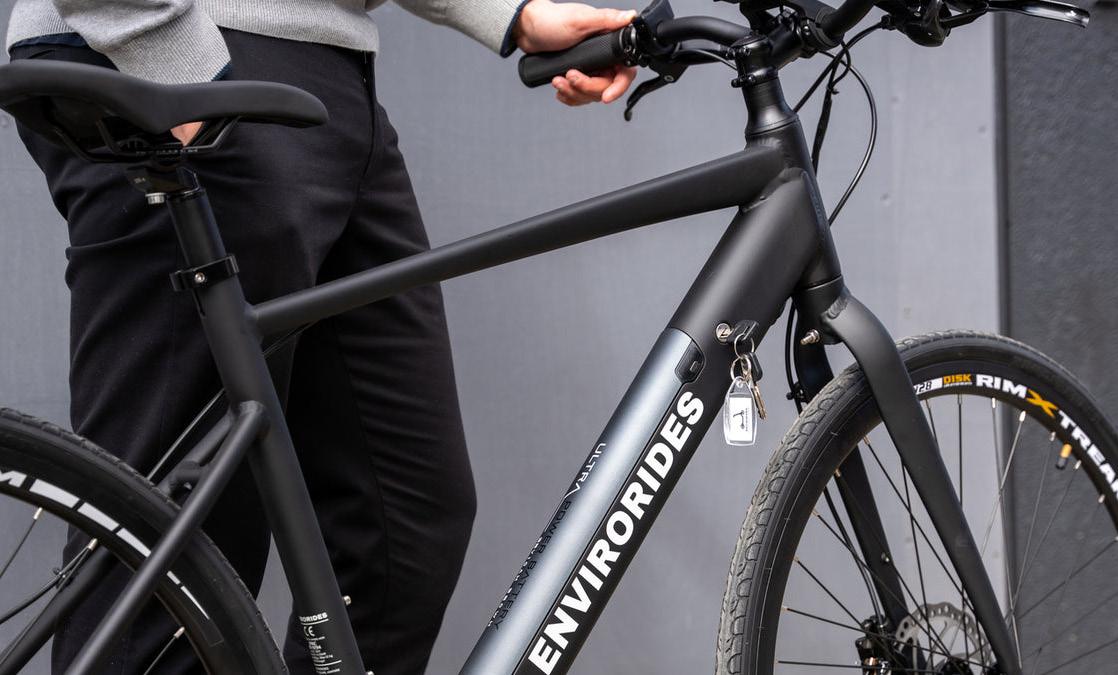
In the bustling city of Sharjah, a pioneering initiative is revolutionizing our perspective on transportation and sustainability. EnviroRide, spearheaded by the enterprising Mouza Alketbi, is redefining urban mobility with a novel approach that merges environmental consciousness with practical transportation solutions. Born from a graduation project, this startup is making significant strides in reducing carbon emissions through the innovative recycling of used cooking oil into biodiesel. I had the pleasure of speaking with Mouza Alketbi to explore the vision behind EnviroRide and its impact on the future of eco-friendly transportation.
Mouza Alketbi’s journey with EnviroRide began as an ambitious graduation project during her time as a senior industrial engineering student at the Higher College of Technology in Sharjah. “Our initial goal was to address a pressing environmental issue and find a sustainable solution,” Mouza explains. “We noticed that used cooking oil, a common waste product, could
be converted into biodiesel. This idea evolved into a full-fledged startup with the aim of not just recycling but actively contributing to cleaner transportation.”
EnviroRide’s core mission is to transform used cooking oil into biodiesel, a renewable energy source that significantly reduces carbon emissions compared to traditional fossil fuels. The company has strategically positioned a network of collection bins throughout the Dubai Emirate, making it easy for individuals and businesses to contribute their used cooking oil. “These collection bins are a crucial part of our operation,” Mouza says. “They enable us to gather and process the oil efficiently. We work closely with local restaurants, households, and businesses to ensure a steady supply of used cooking oil.”
EnviroRide is not just about recycling, it’s about fostering a community-cen-
tric approach to environmental stewardship. “We believe that sustainability begins at the grassroots level,” Mouza emphasizes. “By involving the community in our efforts, we’re collecting waste and educating people about the importance of recycling and sustainable living.”
The biodiesel produced by EnviroRide powers a fleet of eco-friendly vehicles, offering a practical solution for urban transportation. “Our vehicles are a testament to our commitment to combining technology with environmental responsibility,” Mouza explains. “We aim to demonstrate that sustainable transportation is not just a possibility but a reality. Our biodiesel-powered rides provide a cleaner, greener alternative to conventional fuels.”
While EnviroRide’s mission is noble, it comes with its share of challenges. “One of the biggest hurdles we face is changing mindsets and behaviours,” Mouza admits. “Getting people to see used cooking oil as a valuable resource rather than waste requires continuous education and outreach. Additionally, ensuring the efficiency of our collection and recycling processes demands constant innovation and optimization.” Despite these challenges, EnviroRide has seen significant success. “We’ve established a strong network of partners and have been able to significantly reduce the amount of waste going to landfills,” Mouza proudly shares. “Our community engagement efforts have been met with enthusiasm, and we’re seeing more people and businesses getting involved in our mission.”
Looking ahead, EnviroRide has ambitious plans to expand its impact. “We envision a future where our model can be replicated in other cities and regions,” Mouza says. “Our goal is to make sustainable transportation accessible and affordable for everyone. We’re also to enhance our biodiesel production and distribution processes.”


In the UAE’s arid climate, water scarcity is an ongoing challenge, prompting innovative solutions to secure a sustainable water future. Ghaith Water System, led by CEO Saif Alyassi, is at the forefront of this endeavour, utilizing Atmospheric Water Generators (AWGs) to transform humidity into drinkable water. This article explores how the Ghaith Water System is revolutionizing water accessibility through a blend of advanced technology and environmental stewardship.
Ghaith Water System’s approach hinges on the power of Atmospheric Water Generators. These devices extract moisture from the air, condense it, and purify it to produce clean drinking water. This technology is particularly valuable in regions like the UAE, where traditional water sources are scarce, and sustainability is a pressing concern.
“Our goal is to address the region’s water scarcity while contributing to broader sustainability goals,” Saif Alyassi explains. “By harnessing the moisture available in the atmosphere, we provide a reliable and eco-friendly source of drinking water.”
The technology behind AWGs involves cooling ambient air to its dew point, where water vapor condenses into liquid. This process, while technically sophisticated, is crucial for areas with high humidity. In the UAE, where humidity can be high despite the arid environment, AWGs are particularly effective. “We’ve optimized our systems to make the most of the UAE’s unique climate conditions,” Alyassi notes.
Ghaith Water System’s impact is already visible in several key projects. The company has successfully deployed AWGs in remote areas, where traditional infrastructure is lacking. These installations provide a crucial water source to communities that previously had limited access. Additionally, Ghaith Water System has partnered with commercial entities, helping them integrate AWGs into their operations. “Our systems are versatile,” says Alyassi. “Whether in a rural village or a commercial office building, they offer a sustainable solution to water needs.” However, developing and implementing this technology has not been without challenges. One of the primary hurdles is ensuring the AWGs operate efficiently across varying environmental conditions. Alyassi and his team have tackled this issue through continuous refinement of their systems, incorporating
feedback from real-world applications. “We’ve had to adapt our technology to different humidity levels and temperatures,” Alyassi explains. “Our approach involves rigorous testing and iterative improvements to ensure reliability and performance.”
Educating stakeholders about the benefits of AWGs has also been a crucial part of Ghaith Water System’s strategy. Alyassi emphasizes the importance of demonstrating the technology’s effectiveness. “We conduct demonstrations and workshops to show how our systems work and their long-term benefits,” he says. “It’s about building trust and understanding among our partners and the communities we serve.”
Looking ahead, Ghaith Water System has ambitious plans for growth and innovation. “We aim to expand both within the UAE and internationally,” Alyassi shares. “Our goal is to develop more advanced models of AWGs and integrate them into larger water security initiatives.”Collaborations with governmental and non-governmental organizations are also on the horizon, as the company seeks to contribute to global water sustainability efforts.
As Saif Alyassi reflects on Ghaith Water System’s journey, it’s clear that the company is not just providing a technological solution but also fostering a shift towards more sustainable water management practices. “We’re committed to making a significant impact on water sustainability,” he says. “Our mission is to ensure that everyone, regardless of location, has access to clean and reliable drinking water.”
In the challenging climate of the UAE, Ghaith Water System’s innovative use of atmospheric moisture is a beacon of hope. By turning humidity into a valuable resource, Saif Alyassi and his team are addressing a critical need while paving the way for a more sustainable future. Their efforts exemplify how technology can be harnessed to overcome environmental challenges and contribute to a global water security strategy.



Amid Dubai’s dynamic innovation environment, Renca is establishing itself with its pioneering approach to sustainable construction. Walking through their vibrant office, anyone could feel the energy and enthusiasm that drive their work. Leading this green revolution is Marina Dudnikova, the CEO whose vision and expertise are guiding Renca toward a more sustainable future.
Marina welcomed me with a warm smile, her enthusiasm evident as she began to share Renca’s story. “Our mission at Renca is to redefine the construction industry using geopolymer technology,” she explained, her eyes gleaming with determination.
“Geopolymer is not just a material, it’s a sustainable alternative to traditional cement and resins. It’s made from industrial by-products like fly ash or slag, which are often wasted. By using these materials, we significantly reduce the environmental impact.”As we delved deeper into the company’s work, Marina pointed to a sleek, futuristic model of their geopolymer mortar, designed for 3D printing. “This is one of our
most exciting projects,” she said proudly. “We’ve partnered with Dubai Municipality to produce geopolymer mortar for local 3D printing initiatives. It’s not just about creating new building materials, it’s about integrating sustainable practices into everyday construction.”The conversation shifted to the challenges of implementing such innovative technology. Marina’s voice took on a reflective tone as she recounted, “One of the biggest hurdles we faced was convincing traditional industry stakeholders to adopt new methods. Construction is a field that relies heavily on established practices, so introducing something as novel as geopolymer technology required us to build trust and demonstrate its benefits through successful case studies.”
Marina’s extensive background in the industry played a crucial role in overcoming these challenges. “My experience managing quality control in cement plants and overseeing concrete production has given me a solid foundation,” she said. “It allows me to understand both the technical and financial aspects of construction. Our goal is to make sustainable solutions not only effective but also economically
viable for our clients.”
Her commitment to sustainability was evident in the company’s approach to waste management. “We’re not just creating new products,” Marina emphasized. “We’re also focusing on turning waste materials into valuable resources. For instance, our technology helps in recycling industrial by-products, reducing the amount of waste that ends up in landfills.”
As we continued our tour, Marina introduced me to the team working on a new project aimed at integrating geopolymer technology into road construction. “This initiative is part of our broader strategy to support sustainable infrastructure,” she explained. “By collaborating with 3D printing companies and exploring applications in waste-to-energy projects, we’re pushing the boundaries of what’s possible in sustainable construction.” The conversation naturally turned to plans, and Marina’s vision for Renca was clear. “We’re looking to expand our technology globally,” she said with a sense of excitement. “Our goal is to lead the industry in sustainable practices and make a significant impact on the environment. We want to continue innovating and exploring new applications for our technology.”
Marina’s passion for both construction and sustainability was evident throughout our conversation. “It’s about more than just building materials,” she said. “It’s about creating a future where technology and environmental responsibility go hand in hand. We’re committed to making a positive impact and setting new standards for the industry.”
As I left Renca’s office, I was struck by the transformative potential of their work. Marina Dudnikova and her team are not just developing new technologies, they are reshaping the way we think about construction and sustainability. Renca’s innovative approach to geopolymer technology represents a significant step forward in creating a greener, more sustainable future for the construction industry.


NÜWATER is making waves with its innovative approach to sustainable hydration in Dubai. Founded by Cyrus Alavi, a former Apple engineer turned entrepreneur, NÜWATER is not just another bottled water company. It’s a movement towards reducing plastic waste and promoting environmental sustainability.
Upon meeting Cyrus Alavi, the 31-yearold CEO of NÜWATER, his warm smile immediately conveyed the company’s dedication to innovation and eco-consciousness. His transition from a career with Apple in London and Dubai to founding a sustainable water brand reflects a deep commitment to both technological advancement and environmental stewardship.
“I’ve always been passionate about technology and its potential to solve real-world problems,” Cyrus began, reflecting on his career shift. “When I returned to Dubai in 2015, I was driven by the desire to create something that not only leverages my tech background but also makes a meaningful impact.”
NÜWATER’s mission is clear: to offer a premium canned water product that stands as a sustainable alternative to single-use plastic bottles. As Cyrus explained, “Our water comes from one of the deepest artesian springs in the world, located 500 meters underground. This source is filtered through rich volcanic rock, giving it an exceptional mineral content.”
This natural filtration process, Cyrus elaborated, sets NÜWATER apart from desalinated water. “Desalination is an energy-intensive process that strips water of its natural minerals and generates toxic waste. Our method preserves essential minerals, which are crucial for health, and avoids the environmental costs associated with desalination.”
NÜWATER’s packaging reflects its commitment to sustainability. Unlike traditional plastic bottles, which contribute significantly to global pollution, NÜWATER is housed in recyclable aluminium cans with a resealable lid. “Plastic bottles are a major environmental problem,” Cyrus said. “With around 8 million tonnes of plastic ending up in the ocean
each year, we wanted to provide a practical, eco-friendly alternative. Our cans are not only recyclable but are part of a broader effort to promote a cleaner, healthier planet.”
The conversation turned to NÜWATER’s sustainability goals. “We’re proud to say that our manufacturing process is 100% carbon neutral,” Cyrus stated with evident pride. “Our next target is to become a carbon net-positive company by 2023. This means that we aim to offset more carbon emissions than we produce, further contributing to the fight against climate change.”
Cyrus’s enthusiasm for NÜWATER’s environmental impact was palpable. “We’re not just about selling water, we’re about fostering a shift in how people think about hydration and sustainability. By offering a premium product that’s both good for you and good for the planet, we hope to inspire others to make more environmentally conscious choices.” The conversation also touched upon the broader impact of NÜWATER on the UAE’s sustainability efforts. “Dubai is a city known for its innovation and forward-thinking approach,” Cyrus noted. “We’re excited to be part of this narrative, helping to drive sustainability in the region. Our goal is to position the UAE as a leader in environmental responsibility, ensuring that future generations inherit a cleaner, plastic-free world.”
Cyrus’s vision extends beyond just providing a product, it’s about creating a movement. “We want NÜWATER to be synonymous with sustainable living,” he explained. “Every can we produce represents a step towards reducing plastic waste and conserving our natural resources.”As our conversation came to a close, it was clear that Cyrus Alavi and NÜWATER are not just quenching thirst but are also making a significant contribution to global sustainability. Their innovative approach to water production and packaging is setting new standards in the industry and offering a glimpse of a future where eco-friendly practices are the norm rather than the exception.

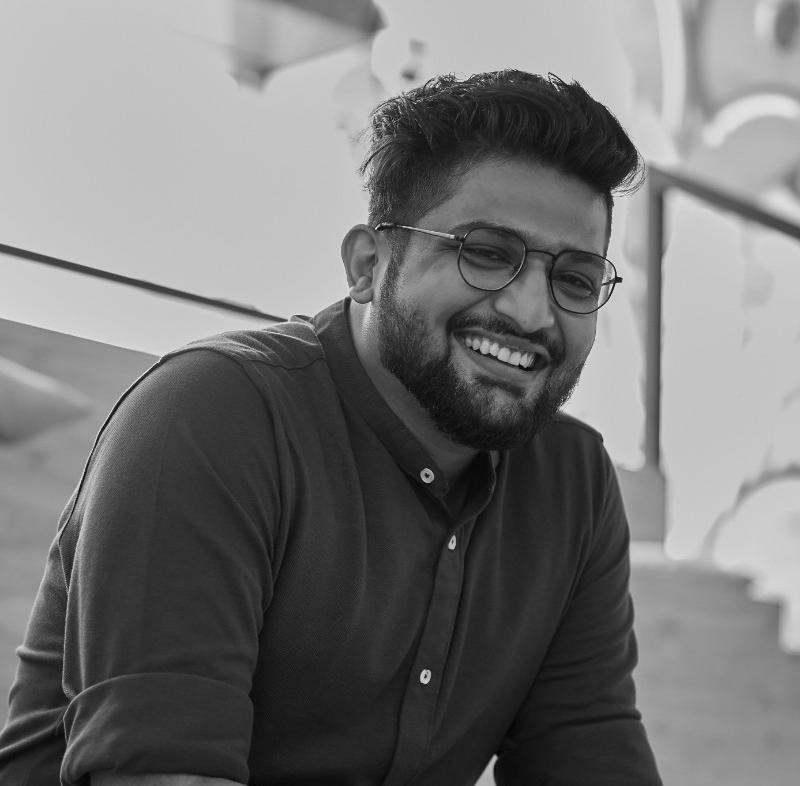
In a world increasingly driven by technology, the growing mountains of electronic waste (e-waste) pose a serious threat to our environment. Yet, amid this challenge, a new player is making waves with a vision to revolutionize how we interact with our electronic devices. Retake, a Dubai-based company, is not just another tech firm, it’s a movement toward a more sustainable future. Spearheading this revolution is Amol Panchal, the CEO and founder, who is passionately committed to reducing e-waste and promoting a circular economy.
Amol greeted me with a firm handshake and a palpable enthusiasm for the work he was doing. “Our mission at Retake is simple yet profound: we want to change the way people think about electronics,” he began. “From the moment a device is purchased to the end of its life cycle, we’re offering solutions that prioritize sustainability at every step.”
Retake operates on a comprehensive ecosystem that caters to all facets of electronic device management. Wheth-
er it’s buying, selling, trading, renting, repairing, recycling, or even insuring devices, Retake has it covered. “We’ve created a one-stop platform where customers can manage their electronic needs without compromising on their values,” Amol explained. The conversation quickly turned to the issue of e-waste, a global problem that Retake is directly addressing. According to Amol, “E-waste is one of the fastest-growing waste streams in the world. It’s alarming to see the amount of perfectly usable technology that ends up in landfills, leaking harmful substances into the environment.” He paused, letting the gravity of the situation sink in, before continuing. “That’s why Retake is so important. We’re not just offering products and services; we’re offering a change in mindset.”
Amol’s journey to founding Retake is as inspiring as the company’s mission. With a background in technology and a strong passion for environmental causes, he saw an opportunity to bridge these two worlds. “I’ve always been fascinated by gadgets and their potential to transform our lives,” he said, reflect-
ing on his early career in tech. “But as I delved deeper, I realized the environmental cost of this convenience was too high to ignore.”
This realization led to the birth of Retake. “We started small, focusing on refurbishing and reselling used electronics. But as we grew, so did our vision. Today, we’re looking at the entire lifecycle of electronics, from production to disposal, and finding ways to make every stage more sustainable.” One of Retake’s flagship initiatives is its recycling program, which aims to drastically reduce the amount of e-waste that ends up in landfills. “We’ve partnered with certified e-waste recyclers who en
sure that every component is either repurposed or disposed of responsibly,” Amol explained. “It’s about closing the loop, making sure that old devices don’t just disappear from our lives—they’re given new life.”
Amol is particularly proud of the company’s efforts to promote a circular economy. “A circular economy is about keeping resources in use for as long as possible, extracting the maximum value while in use, and then recovering and regenerating products and materials at the end of their service life,” he said. “At Retake, we’re not just selling products; we’re encouraging our customers to think about the entire lifecycle of their devices.” He leaned forward, his voice filled with passion as he added, “This is not just about being eco-friendly; it’s about being economically smart. Businesses and consumers alike can benefit from the cost savings that come with using refurbished products or renting devices instead of buying new ones.”
The company’s approach to business reflects a deep understanding of the challenges and opportunities presented by the modern digital age. “We’re living in an era where technology evolves rapidly, and the demand for the latest gadgets is insatiable,” Amol observed. “But this pace of consumption is unsustainable. That’s why we’re offering alternatives—whether it’s through trade-ins, repairs, or rentals—that help extend the life of devices.”

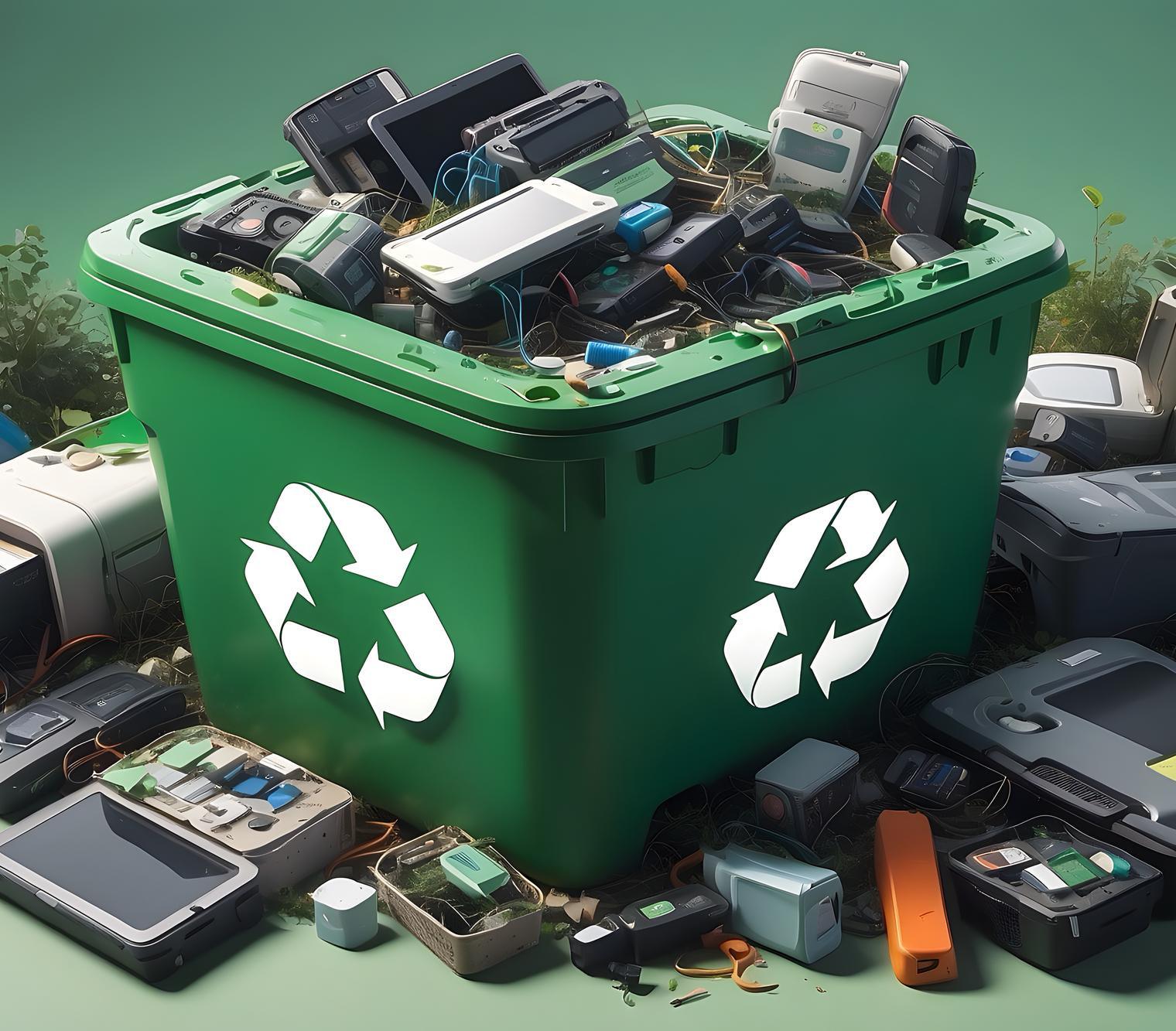
In the heart of Dubai’s thriving tech landscape, a new wave of environmental consciousness is taking root, driven by the innovative efforts of We Are Tech FZ LLC (WAT). Founded by Grégoire Denjean-Massia, WAT is a company on a mission to transform how businesses manage their electronic waste. With a focus on simplifying the process of e-waste disposal, while ensuring it is done responsibly and sustainably, WAT is redefining the relationship between technology and the environment.
As I sat down with Grégoire in WAT’s office, it was immediately clear that this is more than just a business venture for him—it’s a deeply personal mission. “The birth of my son was a turning point,” Grégoire shared, his eyes reflecting a mix of passion and determination. “I realized I wanted to have a positive impact on his future, and that’s when the idea of WAT was born. I wanted to create something that not only addressed a critical environmental issue but also set a good example for him and future generations.”
WAT, which stands for We Are Tech,
focuses on providing e-waste management solutions that are not only environmentally friendly but also financially beneficial for businesses. “Our goal is to make it easy for companies in the UAE to choose sustainable practices when it comes to their retired technology,” Grégoire explained. “We want to show them that sustainability doesn’t have to be a financial burden, it can actually increase their bottom line.”
The company’s approach is rooted in the principles of the circular economy, which emphasizes rethinking, reusing, and recycling. “We’re trying to change the mindset around electronics,” Grégoire said. “Too often, businesses view outdated technology as waste, something to be discarded without much thought. But we see it as an opportunity, a chance to recycle, repurpose, and even resell these assets in a way that benefits both the environment and the company’s finances.” One of the standout features of WAT’s service is its comprehensive offering, which includes everything from the collection of old electronics to secure data destruction and ESG (Environmental, So-
cial, and Governance) reporting. “Data security is a huge concern for companies when disposing of old technology,” Grégoire noted. “That’s why we offer thorough data destruction and erasure services to ensure that sensitive information is completely wiped before the devices are recycled or resold.”
This commitment to security and sustainability is what sets WAT apart from other e-waste management companies. “We align with global ESG standards because we believe that sustainability should be at the core of every business decision,” Grégoire emphasized. “It’s not just about ticking a box, it’s about genuinely integrating sustainable practices into the business model.”
As the conversation continued, Grégoire’s deep understanding of the challenges and opportunities in the e-waste sector became even more apparent. “Electronic waste is a growing problem worldwide,” he said. “In Dubai alone, the amount of e-waste generated each year is staggering. But with the right approach, we can turn this problem into a solution, one that benefits the environment, the economy, and the companies we work with.”
WAT’s services are designed to be as convenient as possible for businesses, offering free collection of old electronics in Dubai and managing the entire end-of-life process for IT assets. “We wanted to remove the barriers that often prevent companies from choosing sustainable options,” Grégoire explained. “By making the process simple, safe, and cost-effective, we’re helping more businesses make the switch to greener practices.”
Grégoire also highlighted the importance of collaboration in achieving WAT’s goals. “We can’t do this alone,” he said. “We work closely with our clients to understand their specific needs and challenges, and we tailor our services to meet those needs. It’s about building partnerships that are based on mutual respect and a shared commitment to sustainability.”


In a world where the lines between physical and digital realities are increasingly blurred, LEAFES Corp is pioneering the intersection of fashion and technology in the Metaverse. Founded by visionary entrepreneur Olga Gi, LEAFES is not just another fashion house, it’s a revolutionary platform that redefines how we experience and interact with fashion in the digital realm.
During our conversation about LEAFES Corp’s in Dubai, the energy was electric, reflecting the dynamic and innovative spirit that drives the company. Olga, the CEO, started talking with a confident smile, her enthusiasm for the future of fashion evident from the start. “At LEAFES, we’re not just creating digital clothes, we’re building a whole new ecosystem for fashion in the Metaverse,” she explained, her eyes lighting up with excitement. Olga’s journey to founding LEAFES is as multifaceted as the digital landscapes her company is exploring. With a background in fashion tech and a deep understanding of both the creative and technical aspects of the industry, she saw a unique opportunity to merge these worlds.
“The Metaverse offers endless possibilities for expression and creativity,” Olga said. “I wanted to create a platform where fashion could evolve beyond the limitations of the physical world.”
LEAFES Corp operates as both an agency and a marketplace, catering to a diverse clientele that includes Metaverse users, established brands, and emerging designers looking to make their mark in this new frontier. “Our goal is to be the ultimate destination for Metaverse fashion,” Olga stated. “We offer consulting services, facilitate collaborations, and have built an AI-based marketplace that connects designers with consumers in virtual worlds like Roblox, Decentraland, and Ready Player Me.” The rise of the Metaverse has opened up new opportunities for fashion brands, and LEAFES is at the forefront of this digital transformation. “Traditional fashion brands are realizing the potential of the Metaverse,” Olga noted. “It’s not just about creating digital versions of physical clothes; it’s about designing experiences that resonate with a global audience of over 400 million users.”
One of the key services LEAFES offers is consulting for brands that are either already in the Metaverse or looking to enter it. “We help brands navigate this new terrain, from understanding the technology to developing strategies that align with their identity and values,” Olga explained. “It’s about creating a seamless transition from the physical to the digital, ensuring that the brand’s essence is preserved and even enhanced in the Metaverse.” As the conversation turned to the marketplace aspect of LEAFES, Olga’s passion for innovation became even more evident. “Our AI-based marketplace is designed to be intuitive and user-friendly, allowing designers to showcase their work and connect with consumers in ways that were previously unimaginable,” she said. “We’re leveraging AI to not only enhance the shopping experience but also to provide designers with insights that help them refine their collections.”
Olga is particularly proud of the collaborative aspect of LEAFES, which she sees as a cornerstone of the company’s success. “The Metaverse is all about collaboration,” she emphasized. “We’ve facilitated some amazing partnerships between brands and designers, creating unique collections that have really captured the imagination of users.”The success of these collaborations is a testament to the creative possibilities of the Metaverse. “One of our most exciting projects was a collaboration with a well-known luxury brand that wanted to launch a collection exclusively in the Metaverse,” Olga shared. “We worked closely with their team to design pieces that were not only visually stunning but also interactive, allowing users to experience the brand in a completely new way.”
Olga also highlighted the importance of community in the Metaverse. “The users in these virtual worlds are incredibly engaged and passionate about fashion,” she said. “They want to express themselves through their avatars, and we’re giving them the tools to do that in a way that’s authentic and meaningful.”




In the heart of Dubai’s fast-paced tech scene, F3rn DeFi stands out not just for its innovative approach to finance but for its commitment to environmental sustainability. The brainchild of Nabeel Mohammed, F3rn DeFi merges the worlds of decentralized finance (DeFi) and environmental activism, creating a platform that empowers communities to take charge of their surroundings while ensuring transparency and accountability. As we started our sustainability conversation, Nabeel’s passion for both technology and the environment was immediately evident. “F3rn DeFi isn’t just about finance, it’s about creating a movement where people can come together to make a tangible impact on their communities,” Nabeel began. His background as an education consultant, combined with a deep interest in technology, has uniquely positioned him to bridge these two worlds.
Nabeel’s vision for F3rn DeFi is as ambitious as it is timely. With the increasing importance of sustainability and the growing awareness of environmental issues, F3rn DeFi offers a platform
that encourages individuals to host and participate in clean-up campaigns. “We wanted to create a system where everyone involved in these campaigns could see exactly where the funds are coming from and where they’re going,” Nabeel explained. “Transparency is at the core of what we do.” The platform operates using Algorand blockchain technology, which ensures that every transaction is visible and verifiable by anyone. This level of transparency is crucial in fostering trust among participants and donors alike. “One of the biggest challenges in fundraising and charity work is the lack of transparency,” Nabeel pointed out. “With blockchain, we can eliminate that concern.”
F3rn DeFi’s process is straightforward but innovative. Users can start or join clean-up campaigns in partnership with local municipalities. Funds for these campaigns are raised through peer-to-peer fundraising, with all transactions recorded on the blockchain. “By leveraging DeFi, we’re able to bypass traditional fundraising barriers and create a more direct, efficient system,” Nabeel said. “People can see
their contributions in action, and that’s incredibly empowering.”
As our conversation continued, Nabeel shared his journey of founding F3rn DeFi. “I’ve always been passionate about finding ways to use technology for good,” he recalled. “When I started learning about blockchain and DeFi, I realized there was an opportunity to apply these technologies to environmental causes in a way that hadn’t been done before.”
Nabeel’s enthusiasm for the project was contagious, and it was clear that his background in education had influenced his approach. “Education is key to making a real difference,” he emphasized. “We want people to participate in these campaigns and to understand the broader impact of their actions. That’s why we focus on raising awareness about the importance of sustainability and responsible waste management.” One of the unique aspects of F3rn DeFi is its partnership with local municipalities. “By collaborating with municipalities, we ensure that these clean-up efforts are well-coordinated and have a lasting impact,” Nabeel explained. “It’s about creating a system that benefits everyone—communities, local governments, and the environment.”
Nabeel’s vision extends beyond just clean-up campaigns. He sees F3rn DeFi as a platform that can support a wide range of environmental initiatives. “We’re starting with clean-up campaigns because it’s a tangible way to get people involved and make a visible difference,” he said. “But in the future, we want to expand to other areas like tree planting, recycling programs, and even environmental education initiatives.” As we discussed the future of F3rn DeFi, Nabeel’s excitement was palpable. “The possibilities are endless,” he said with a smile. “We’re constantly exploring new ways to integrate technology and environmentalism. The goal is to create a platform that not only encourages people to take action but also makes it easy and rewarding for them to do so.”

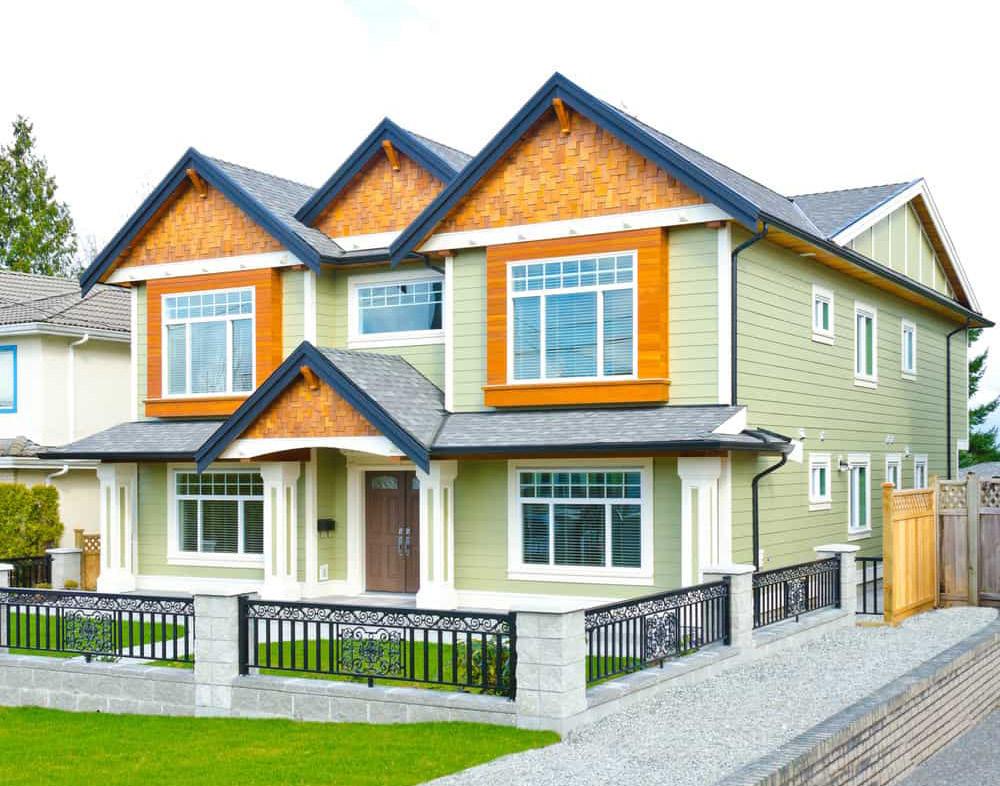
OT Sustainable Homes is transforming the landscape of affordable housing in emerging markets with a bold, innovative approach. The company, founded by Anthony Oyoo Odero, is on a mission to provide low-cost, sustainable 3D-printed homes to those in need. As I sat down with Anthony to discuss his vision, it became clear that his passion for addressing housing shortages is deeply rooted in both personal experience and a commitment to sustainable development.
“Growing up, I saw firsthand the challenges that come with inadequate housing,” Anthony shared, his voice resonating with sincerity. “In many emerging markets, people are forced to live in substandard conditions because they simply can’t afford anything better. OT Sustainable Homes was born out of a desire to change that.”
The concept behind OT Sustainable Homes is deceptively simple: design, manufacture, and install affordable homes using 3D printing technology. But the execution of this idea is nothing short of revolutionary. “3D printing allows us to build homes quickly, efficient-
ly, and with minimal waste,” Anthony explained. “It’s a game-changer for the construction industry, especially in regions where traditional building methods are either too expensive or too slow to meet the demand.”
Anthony’s journey into the world of 3D-printed homes began with a background in engineering and a passion for innovative solutions. “I was always fascinated by how technology could be used to solve real-world problems,” he said. “When I first learned about 3D printing, I immediately saw its potential to revolutionize housing, particularly in areas where people are struggling to find safe, affordable homes.”
OT Sustainable Homes focuses on creating housing solutions that are not only affordable but also environmentally friendly. “Sustainability is at the core of what we do,” Anthony emphasized. “The materials we use are chosen for their durability and low environmental impact, and the 3D printing process itself generates significantly less waste compared to traditional construction methods.”
One of the key advantages of 3D printing, according to Anthony, is its ability to drastically reduce construction time. “We can build a home in a matter of days, as opposed to months,” he said. “This speed is crucial in areas where housing demand is high and resources are limited. Our goal is to make quality housing accessible to everyone, regardless of their financial situation.”
As our conversation continued, Anthony highlighted some of the unique challenges and opportunities that come with bringing 3D-printed homes to emerging markets. “One of the biggest challenges is convincing people that 3D-printed homes are not just a temporary solution but a viable, longterm option,” he admitted. “There’s still a lot of scepticism, especially in regions where traditional building methods have been used for generations.”
To overcome these challenges, OT Sustainable Homes places a strong emphasis on education and community engagement. “We work closely with local communities to ensure that they understand the benefits of 3D-printed homes and feel confident in their durability and safety,” Anthony explained.
“It’s important to us that people see these homes as not just affordable, but also as something they can be proud of.”
Another key aspect of OT Sustainable Homes’ approach is its adaptability. “Every community has different needs and challenges,” Anthony noted. “We’ve designed our homes to be customizable, so they can be adapted to different environments, climates, and cultural preferences. This flexibility is one of the reasons why our solutions are so effective in a wide range of settings.”
Looking ahead, Anthony has ambitious plans for the future of OT Sustainable Homes. “We’re currently focused on expanding our operations to more countries and regions,” he said. “Our goal is to have a global impact, providing affordable, sustainable housing to as many people as possible.”

“Switching to digital business cards is a small change that can have a big impact,” he says. “Not only do you never have to worry about running out of cards, but you’re also contributing to a healthier planet by reducing paper consumption and waste. It’s a win-win situation.”

In a rapidly evolving digital world, traditional paper business cards are becoming relics of the past. Leading the charge into the future of networking is TapToCard, a Dubai-based company that is reinventing the way professionals connect and share information. Founded in 2021, TapToCard offers a smart, sustainable alternative to paper business cards, utilizing Near Field Communication (NFC) technology to make contact sharing seamless, efficient, and eco-friendly.
To delve deeper into the journey of TapToCard, I sat down with the company’s dynamic founder, Sarthak Sethi, a seasoned entrepreneur and TEDx speaker. His passion for innovation and sustainability is evident from the moment we start talking. “TapToCard was born out of a desire to merge convenience with sustainability,” Sethi explains. “The pandemic showed us how important it is to rethink traditional methods of networking. We needed a solution that was not only safe and contactless but also aligned with the growing global emphasis on reducing waste.”
The concept behind TapToCard is simple yet transformative. Users can transfer their contact details, social media profiles, and much more to any smartphone with just a tap. Unlike paper business cards, which often end up discarded or forgotten, TapToCard’s digital format ensures that your information is stored securely and can be easily accessed when needed.
“What sets TapToCard apart,” Sethi continues, “is its versatility and ease of use. There’s no need for the recipient to download any apps or perform complicated steps. All they need is a smartphone, and with one tap, they have all the information they need.”
The platform supports both iOS and Android devices, making it accessible to virtually anyone. As businesses and individuals strive to reduce their environmental footprint, TapToCard’s digital business cards offer a compelling solution to the problem of paper waste. According to Sethi, this commitment to sustainability is a core principle of the company.
The environmental benefits of TapToCard are clear, but the platform also brings significant advantages in terms of functionality and networking efficiency. Traditional business cards are static and often limited to basic contact information. In contrast, TapToCard allows users to share a wealth of information, including websites, LinkedIn profiles, and other social media accounts, all in a single tap.
“Networking is about more than just exchanging phone numbers or email addresses,” Sethi points out. “It’s about making meaningful connections, and with TapToCard, you can share a more complete picture of who you are and what you do.”
As our conversation unfolds, it becomes clear that TapToCard is not just a business venture for Sethi, but a personal mission to drive change. He envisions a future where digital business cards become the norm, and where sustainable practices are integrated into every aspect of professional life.
“Adopting TapToCard is a step toward embracing the future,” he says with conviction. “We’re not just changing how people network; we’re also encouraging them to think differently about sustainability and technology. Our goal is to make digital business cards the standard in professional
The response to TapToCard has been overwhelmingly positive. Early adopters have praised the platform for its user-friendly design, environmental benefits, and the way it seamlessly integrates into modern business practices. As more companies and professionals recognize the advantages of going digital, TapToCard is poised to lead the charge in this new era of networking.

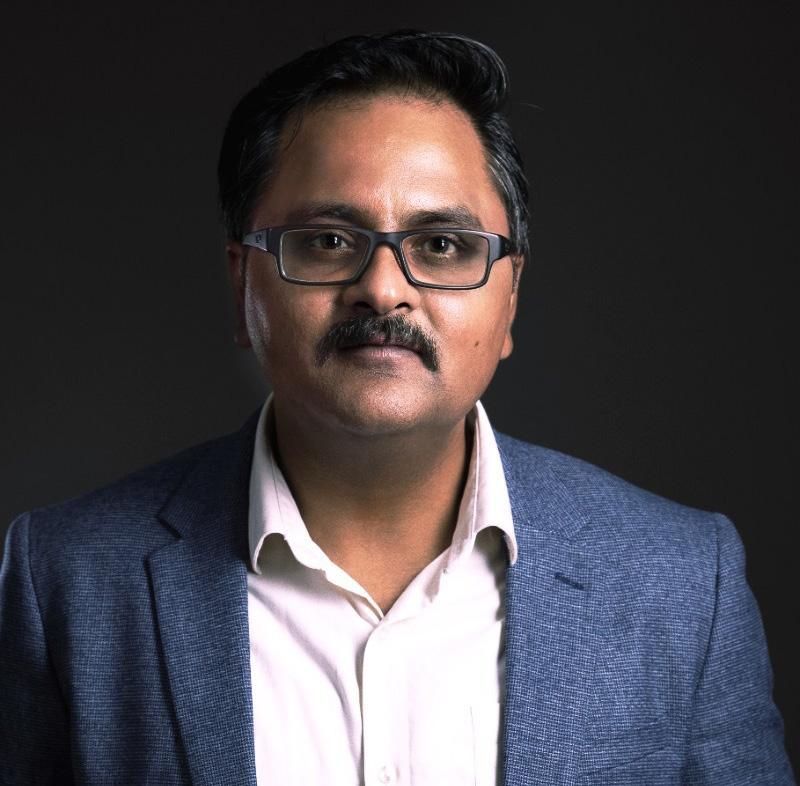
In the face of accelerating climate change, businesses around the world are under increasing pressure to adopt sustainable practices. Olive Gaea FZCO, a leading Dubai-based Sustainability as a Service (SaaS) platform, is at the forefront of this movement, providing innovative solutions for carbon accounting, decarbonization, and achieving Net Zero emissions. At the helm of this forward-thinking company is Vivek Tripathi, a strategic thinker with over 17 years of global business leadership experience.
In a recent conversation with Tripathi, his commitment to environmental stewardship and business innovation was immediately evident. “Our mission at Olive Gaea is to empower businesses to take real, science-based climate action,” Tripathi explained. “We are not just providing a service, we are enabling a movement towards a more sustainable and carbon-neutral future.”
Founded on the principle that technology can be a powerful tool for environmental change, Olive Gaea offers a comprehensive range of services
designed to address the complex challenges of sustainability. From greenhouse gas (GHG) emissions accounting and reduction strategies to carbon offsetting and life cycle analysis, Olive Gaea’s offerings are tailored to meet the unique needs of each client.
Central to Olive Gaea’s suite of services is their Carbon Management and Accounting Platform (CMAP) called “Zero.” This cutting-edge platform leverages advanced technology and artificial intelligence to simplify and streamline the entire process of carbon management. “With Zero, businesses can easily measure, reduce, offset, and report their carbon footprint,” Tripathi explained. “Our platform is designed to alleviate the challenges companies face in managing their environmental impact, enabling them to focus on meaningful climate action.”
The Zero platform’s capabilities are extensive. It enables data collection and analysis, emissions projection, decarbonization pathway mapping, and carbon offsetting, all while ensuring compliance with global standards and
frameworks. This all-in-one solution is not only practical but also scalable, making it suitable for businesses of all sizes and industries.
“One of the key advantages of our platform is its ability to integrate seamlessly with existing business operations,” said Tripathi. “We understand that sustainability needs to be embedded into the core of a business to be truly effective. That’s why we’ve designed Zero to be intuitive and easy to use, allowing companies to manage their carbon footprint with minimal disruption to their daily activities.”
In addition to the CMAP platform, Olive Gaea offers carbon-neutral API solutions that enable e-commerce and logistics companies to provide carbon-neutral delivery options to their customers. This feature is particularly relevant in today’s marketplace, where consumers are increasingly demanding environmentally responsible products and services. “Our API solutions make it easy for companies to offer carbon-neutral deliveries, meeting consumer expectations while reducing their environmental impact,” Tripathi noted.
Olive Gaea’s approach goes beyond mere compliance, it is about creating a competitive advantage for businesses in a rapidly changing world. “Sustainability is no longer just a ‘nice-to-have’, it’s a business imperative,” Tripathi emphasized. “Companies that fail to address their carbon footprint risk falling behind, both in terms of regulatory compliance and consumer preference.”
The impact of Olive Gaea’s work is already being felt across the Middle East and beyond. With a growing client base that includes some of the region’s leading companies, Olive Gaea is helping to drive a cultural shift towards sustainability. “We are proud to be based in Dubai, a city that is quickly becoming a hub for innovation and sustainability,” Tripathi said. “Our goal is to position the UAE at the forefront of the global sustainability movement.”


In the bustling retail world, where efficiency and turnover are paramount, the issue of food waste has become an increasingly pressing concern. Supermarkets and grocery stores frequently discard perfectly edible food items as they near their “best by” dates, leading to significant waste. Recognizing the need for change, BestBy, an innovative Abu Dhabi-based startup, is tackling this problem head-on. The company’s CEO, Sabira Huda, is on a mission to reduce food waste and promote sustainability through a unique digital platform.
In a recent conversation, Sabira Huda explained the vision behind BestBy: “Our platform is designed to bridge the gap between consumers and retailers by offering food items nearing their best-by dates at discounted prices. This not only helps reduce food waste but also benefits consumers and retailers alike.”
BestBy operates on a simple yet effective model. Food items that are approaching their best-by dates are often removed from store shelves
to make way for fresher stock. While these products are still perfectly safe to consume, they are usually destined for landfills, contributing to the growing problem of food waste. BestBy seeks to disrupt this cycle by giving these items a second chance.
Huda, who has a background in Civil and Environmental Engineering from the University of Sharjah, was inspired to create BestBy after witnessing the sheer volume of food waste generated by retail stores. “It was shocking to see how much food was being discarded simply because it was close to its bestby date. I realized there had to be a better way to handle this,” she shared.
The BestBy platform works by allowing retailers to list products that are nearing their best-by dates, which consumers can then purchase at a reduced price. This creates a win-win scenario: consumers save money on their grocery bills, retailers make a profit on items that would otherwise be wasted, and most importantly, food is saved from being thrown away. The platform is user-friendly, with a straightforward
interface that allows consumers to easily browse available products and make purchases.
Huda is particularly passionate about the environmental impact of her venture. “Food waste is a major contributor to greenhouse gas emissions, particularly methane, which is released when food decomposes in landfills,” she explained. “By reducing the amount of food that goes to waste, we’re not only saving resources but also helping to mitigate climate change.”
BestBy also supports local communities by offering an affordable option for consumers who may be struggling with the rising cost of living. “We’re making it easier for people to access nutritious food at a lower cost,” Huda said. “It’s a small but important step towards greater food security.”
In addition to benefiting consumers and the environment, BestBy provides a practical solution for retailers who are increasingly being held accountable for their environmental practices. With sustainability becoming a key focus for businesses around the world, BestBy offers a way for retailers to enhance their corporate social responsibility efforts. “Retailers are under pressure to reduce waste and operate more sustainably,” Huda noted. “BestBy gives them a tool to do just that, while still maintaining profitability.”
As BestBy continues to grow, Huda envisions expanding the platform to include partnerships with restaurants and cafes, further broadening its impact on reducing food waste. “There’s so much potential to scale this concept,” she said. “Our goal is to create a comprehensive ecosystem where food waste is minimized across the entire supply chain.”
Despite the challenges of launching a startup in a competitive market, Huda remains optimistic about the future of BestBy. “We’ve had an incredible response from both consumers and retailers who are excited about the idea of reducing food waste,” she shared.


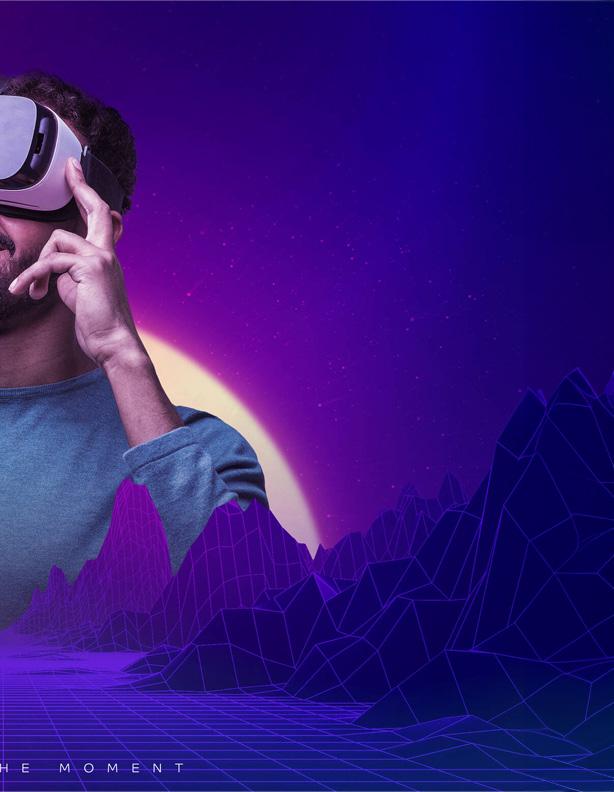
Managing personal finances is an essential life skill that can lead to financial stability, independence, and prosperity. However, many people struggle with managing their money effectively, leading to debt, stress, and economic insecurity. With the right knowledge and strategies, you can take control of your financial destiny. This comprehensive guide will walk you through essential finance tips, covering budgeting, saving, investing, managing debt, and planning for retirement. Each section provides actionable advice to help you build a more secure financial future.
Personal finance encompasses the management of individual or household money, assets, and investments, covering a broad range of financial activities including budgeting, saving, investing, and spending. The essence of personal finance lies in its focus on planning financial strategies tailored to an individual’s goals, lifestyle, and risk tolerance. This process involves evaluating income streams, setting financial objectives, and allocating resources effectively to meet both short-term needs and long-term aspirations, such as retirement planning, college funding, or buying a home.
Mastery of personal finance also requires an understanding of various financial products and markets, tax laws, and insurance options to protect oneself against unforeseen personal or financial setbacks. The ultimate goal is to achieve financial security and independence,
which allows individuals to make choices that improve their quality of life without financial constraints. Efficient personal finance management is crucial because it affects nearly every aspect of life, influencing the way individuals make daily decisions and plan for major life events.
The importance of financial education cannot be overstated, as it equips individuals with the knowledge and skills necessary to make informed financial decisions that are crucial throughout their lives. Without a solid understanding of personal finance, people are often ill-prepared to manage their money effectively, potentially leading to poor choices that can result in overwhelming debt, insufficient savings, or inadequate retirement funds. Financial literacy helps individuals understand how to budget, invest, handle debt, and plan for the future, thereby minimizing financial risks and increasing the likelihood of achieving financial stability and independence.
Moreover, a well-rounded financial education can demystify complex financial products and markets, making it easier for individuals to navigate the financial world and seize opportunities that might otherwise be out of reach. It also fosters a sense of confidence and self-efficacy, helping people feel more in control of their financial destiny. In broader terms, financial education contributes to the overall economic health of a society by promoting savvier consumers and investors, which can lead to more robust economic activity and stability.
Financial education is important for several reasons. Firstly, it helps individuals to understand the basics of personal finance, such as budgeting, saving, and investing. This knowledge enables individuals to make informed decisions about their money, which can lead to better financial outcomes. Secondly, financial education helps individuals avoid financial pitfalls, such as overspending, accumulating debt, and falling victim to financial scams. By understanding the risks associated with financial products and services, individuals can make informed decisions that protect their financial well-being. Thirdly, financial education helps individuals plan for their financial future, including retirement, buying a home, and funding their children’s education. By setting financial goals and developing a plan to achieve them, individuals can secure their financial future and enjoy a better quality of life.
Financial education is particularly important for young people, who are just starting to manage their finances. By teaching young people the basics of personal finance, we can help them develop good financial habits that will benefit them throughout their lives. Financial education is also important for low-income individuals, who may lack access to financial services and products, and for women, who are often disadvantaged when it comes to financial literacy.

The first step towards financial success is creating a budget. A budget is a plan that outlines your income and expenses, allowing you to track your spending and make informed decisions about your money. To create a budget, start by listing all your sources of income and expenses, including rent or mortgage payments, utilities, groceries, transportation, and entertainment. Then, allocate your income towards each expense category, ensuring that you are not spending more than you earn. Use tools like spreadsheets or budgeting apps to visualize and control your finances.
Creating and maintaining a budget offers numerous benefits that are pivotal to achieving financial stability and growth. Firstly, a budget acts as a roadmap, guiding individuals in managing their income and expenses effectively. By clearly outlining where money is coming from and where it is going, a budget prevents overspending and ensures that financial resources are allocated wisely towards essential expenditures, savings, and debt repayments. This structured approach to financial management helps in building an emergency fund that can cushion against unexpected financial setbacks, thereby reducing financial stress. Additionally, having a budget facilitates goal setting. Whether it’s saving for a house, funding an education, or planning a vacation, a budget helps set realistic goals by delineating how much money can be set aside each month towards these objectives.
Furthermore, a well-planned budget fosters a sense of discipline and responsibility, reinforcing good spending habits that are crucial for long-term financial success. For households, budgets promote transparency and cooperation among members, ensuring everyone is aligned with

Automate savings, seek high-interest options, watch your wealth grow
financial goals and constraints. Ultimately, the benefits of a budget can lead to more informed financial decisions, enhanced financial freedom, and a more secure financial future.
Setting saving goals is a fundamental aspect of effective financial planning, serving as a motivational framework that guides your financial decisions and behaviours. By establishing clear, specific, and realistic objectives, you can prioritize your spending and adjust your budget to allocate funds toward achieving these goals. Short-term saving goals might include saving for a vacation, an emergency fund, or major purchases like a new laptop or car repairs. Medium-term goals could focus on saving for a down payment on a house or funding educational pursuits, while long-term goals often revolve around retirement savings or amassing wealth for future generations. Setting these goals also involves identifying the amount of money needed and the time frame for achieving them, which helps in choosing the right savings instruments.
For instance, high-yield savings accounts might be ideal for short-term goals due to their liquidity and safety, whereas stocks or mutual funds might be more suitable for long-term goals due to their potential for higher returns. Importantly, setting saving goals not only provides a clear roadmap for your financial journey but also instils discipline and can significantly reduce impulsive spending, ensuring that your financial resources are used efficiently to enhance your overall financial well-being.
Saving efficiently involves more than just setting aside a portion of your income; it requires strategic planning and smart financial practices. To begin, prioritize automating your savings. Setting up automatic transfers to a savings account ensures that you consistently save without having to think about it each month. This method helps to “pay yourself first” and prevents the temptation to spend what you may otherwise save. Next, focus on maximizing the interest from your savings by choosing high-interest savings accounts or certificates of deposit that offer better yields than standard accounts.
Consider using budgeting tools and apps to track your spending habits and identify areas where you can cut costs, thus freeing up more money to save. Additionally, take advantage of any employer-matched retirement plans, such as 401(k)s, which can significantly accelerate your savings growth. It’s also crucial to periodically review and adjust your savings goals and strategies to adapt to any changes in your financial situation or economic conditions. By employing these efficient saving techniques, you can make the most of your financial resources, building a more secure financial future.
Understanding the relationship between risk and reward is crucial in investing. Essentially, this principle holds that potential returns rise with an increase in risk. Low-risk investments, like government bonds, typically offer lower returns, suitable for conservative investors. Conversely, high-risk investments, such as stocks, present the possibility of higher returns, appealing to those willing to accept potential losses for greater gains. Each investor must evaluate their own risk tolerance, and how much risk they are comfortable taking on, in relation to their financial goals. Striking the right balance between risk and reward is key to crafting a successful investment strategy that aligns with one’s financial objectives and comfort level.
Diversification is a fundamental investment strategy aimed at reducing risk and stabilizing returns by spreading investments across various asset classes such as stocks, bonds, and real estate. This approach works on the principle that different asset classes often perform differently under the same economic conditions. For instance, when stock markets are down, bonds or real estate might still perform well, thereby balancing the impact on an investment portfolio. By diversifying, an investor can mitigate the losses in one sector with gains in another, leading to more consistent overall portfolio performance. This strategy is particularly useful in managing volatility and reducing the risk of significant losses, making it a critical tactic for both conservative and aggressive investors seeking to protect their capital while pursuing growth over time.
Effective debt management is crucial for maintaining financial stability and avoiding the pitfalls of excessive financial burden. Keeping debt under control involves several key strategies, such as understanding the difference between good debt (such as mortgages or student loans, which can enhance one’s financial position) and bad debt (like high-interest credit card debt, which can rapidly grow and become unmanageable). Prioritizing high-interest debts for early repayment can save money on interest and reduce the total debt burden more quickly. Additionally, it’s helpful to create a detailed budget that accounts for all debt repayments, ensuring that these obligations are met without sacrificing other financial commitments. Another strategy is consolidating debts to secure a lower interest rate, simplifying multiple debt repayments into one monthly payment. By proactively managing debts, individuals can avoid the stress and financial strain that often accompany high debt levels, ultimately leading to a clearer path toward financial freedom.
Retirement planning is a critical aspect of financial management, often referred to as the long game because it requires foresight, long-term commitment, and strategic planning. The goal is to ensure financial security and comfort in the years when you may no longer earn a steady
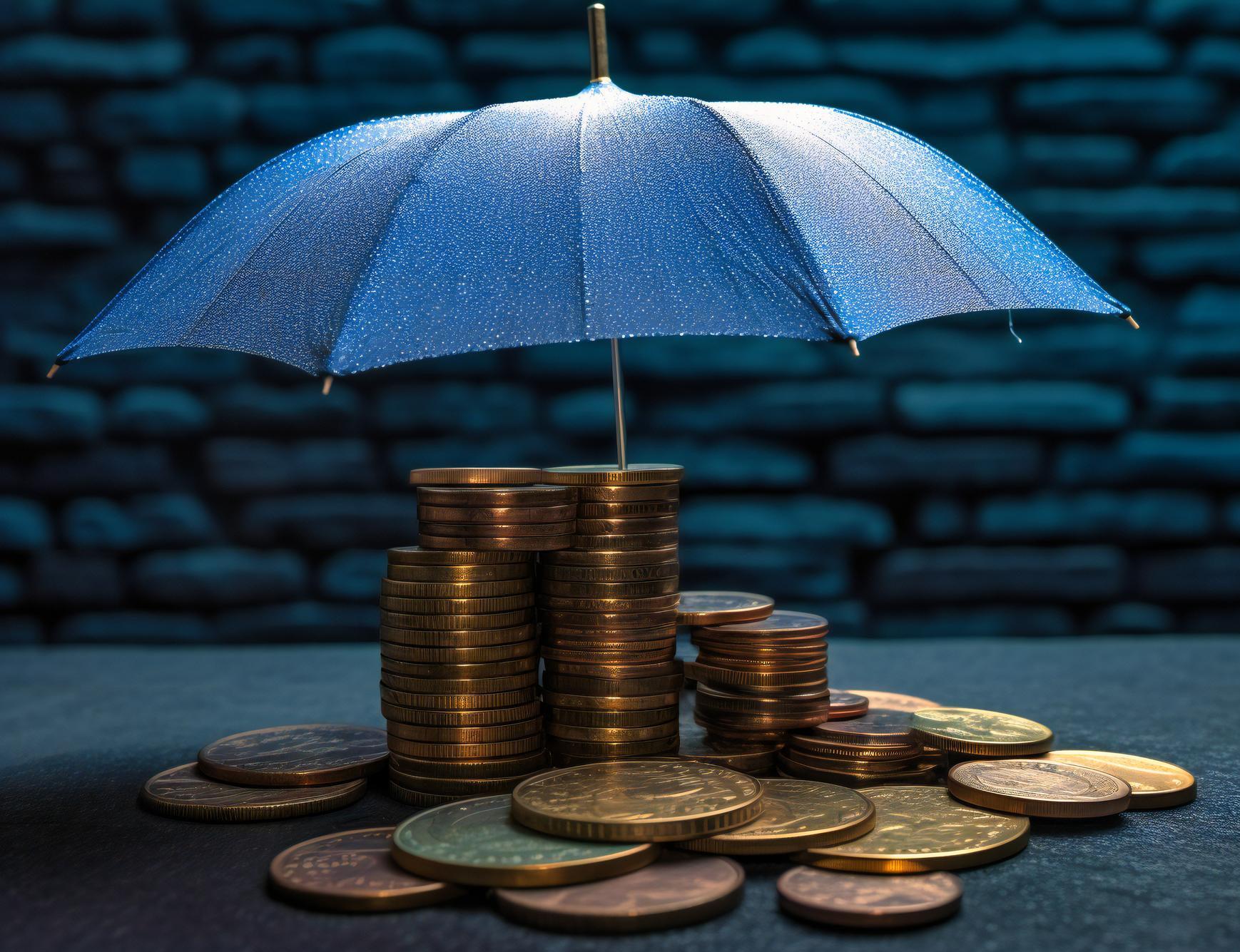

Navigate debt wisely: prioritize, consolidate, liberate. “
income from employment. Key to effective retirement planning is starting early to take advantage of compound interest, which can significantly increase the growth of retirement savings over decades. Diversifying retirement investments across a mix of assets, such as stocks, bonds, and real estate, helps mitigate risks and enhances potential returns. Additionally, contributing regularly to retirement accounts like 401(k)s, IRAs, or other pension plans, especially if they offer employer matches, can boost your retirement fund. It’s also wise to stay informed about changes in tax laws and retirement policies that could impact your savings. Regularly reviewing and adjusting your retirement plan in response to changing financial situations and economic climates ensures that your retirement goals remain attainable and aligned with your lifestyle expectations.
Insurance plays a pivotal role in protecting your financial well-being by mitigating the financial risks associated with unexpected events such as illness, accidents, property damage, or even death. By transferring the financial risk to an insurance company in exchange for regular premium payments, you can safeguard against potentially devastating financial losses. Key types of insurance include health insurance, which covers medical expenses; life insurance, which provides for your beneficiaries in case of your death; auto insurance, which covers costs associated with car accidents; and homeowners or renters insurance, which protects your property and possessions from damage or theft.
Investing in appropriate insurance coverage ensures that in times of crisis, you are not overwhelmed by expenses, thereby preserving your financial stability and providing peace of mind. This protective measure is an essential component of a comprehensive financial plan, enabling you to maintain your standard of living and secure your and your family’s financial future in the face of unforeseen circumstances.
Mastering personal finance is not just about making money, but about making informed decisions that secure your financial future. It’s the key to financial independence and a healthier, stress-free life.
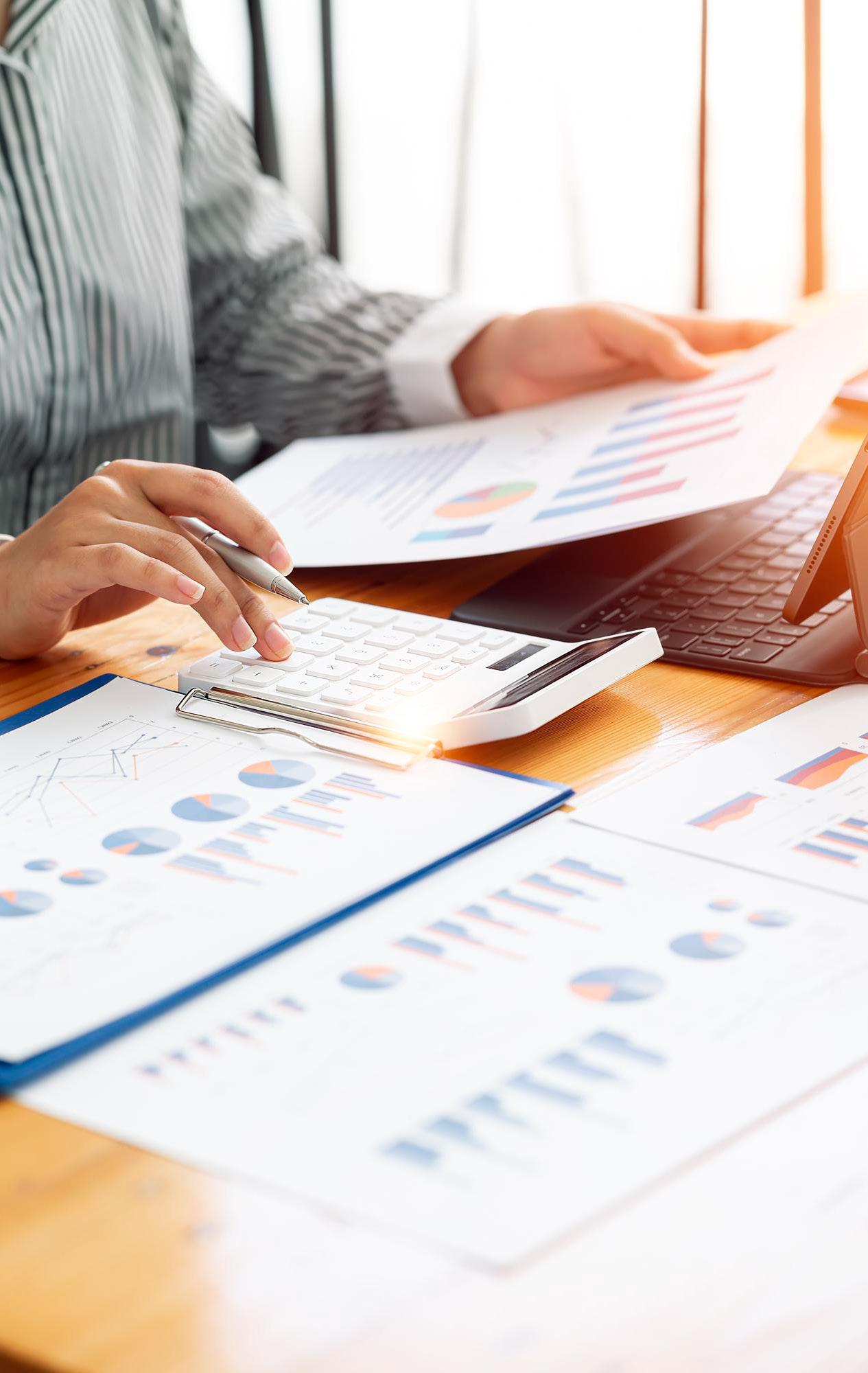

Tax planning is an essential strategy for effectively managing your finances by legally reducing your tax liability and maximizing your potential savings. It involves understanding the intricacies of tax laws and leveraging various deductions, credits, and allowances to minimize the amount of tax you pay each year. Effective tax planning requires proactive steps such as investing in tax-advantaged accounts like IRAs or 401(k)s, making charitable donations, or deducting home mortgage interest. Additionally, by timing the sale of assets to manage capital gains or offsetting losses, you can further reduce your taxable income. Staying informed about tax law changes and consulting with tax professionals can also help you make informed decisions that align with your financial goals. By optimizing your tax situation, you not only keep more of your money but also improve your overall financial health, enabling more robust investment and saving opportunities.
Building and maintaining good credit is vital for financial health, as it influences your ability to borrow money and secure favourable interest rates. Good credit is built over time by consistently managing financial responsibilities. Key practices include paying all your bills on time, maintaining low balances on credit cards, and using only a portion of your available credit to keep your credit utilization ratio low. It’s also important to diversify your types of credit — including credit cards, student loans, auto loans, and mortgages — to show that you can responsibly manage different forms of credit. Regularly monitoring your credit report for inaccuracies and disputing any errors you find is crucial to maintaining a healthy credit score. By adhering to these principles, you can build a strong credit history that will serve your financial interests well, such as when applying for loans, renting housing, or even securing certain jobs.
Taking control of your personal finances is a continuous journey that requires diligence, education, and adaptability. By implementing the strategies discussed in this guide, you can lay a strong foundation for a financially secure future, ready to adapt as your financial situation and the economic landscape evolve.
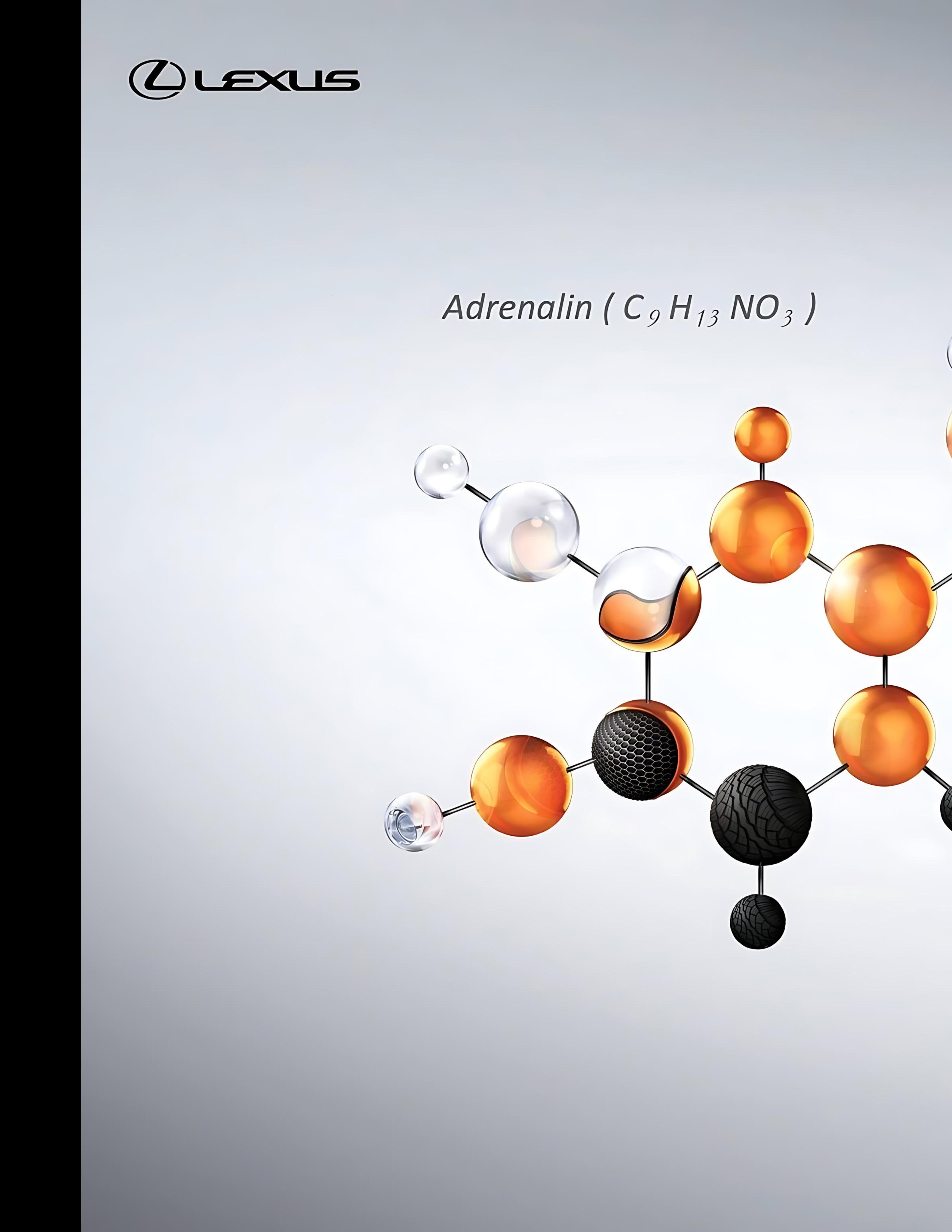
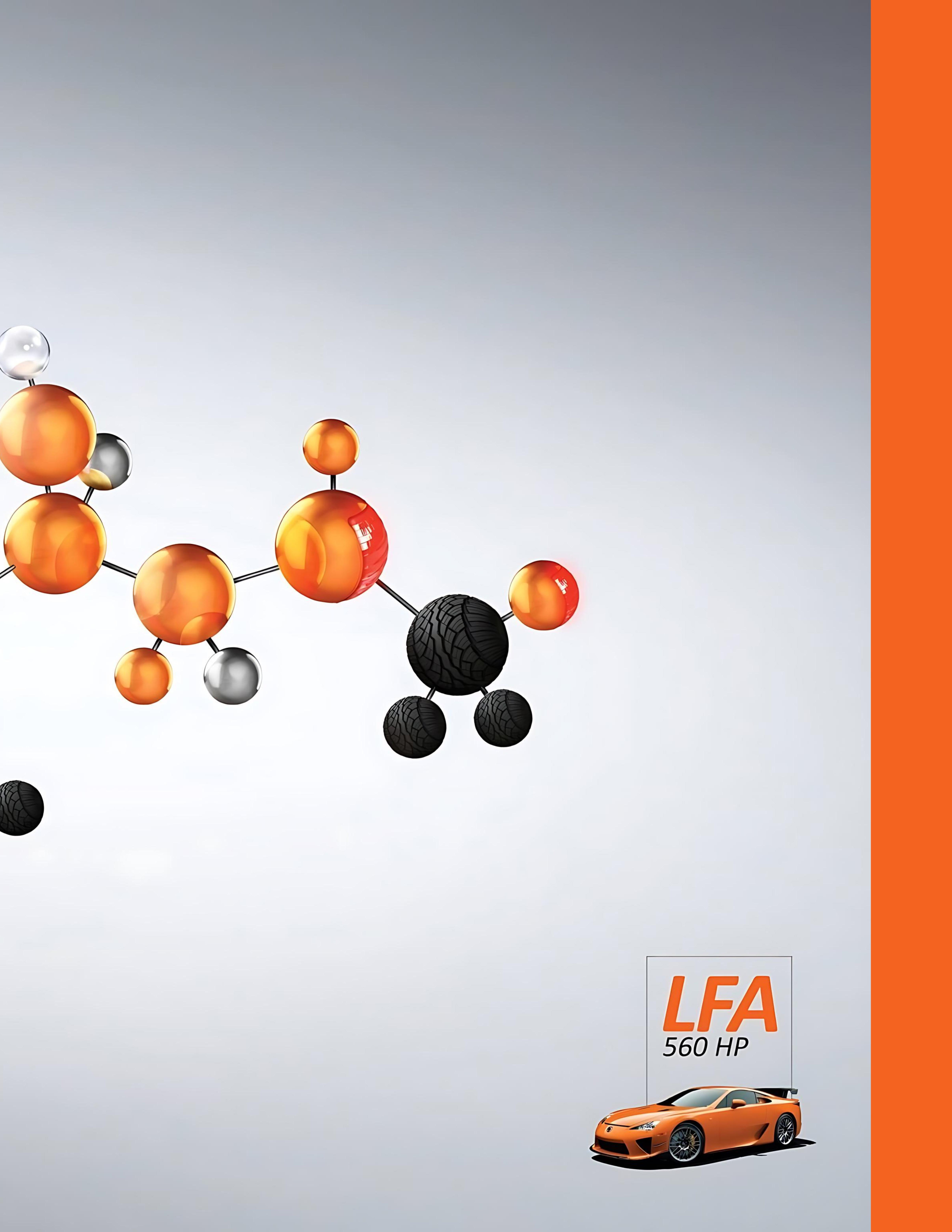
The modern world presents a wealth of opportunities, but it also comes with challenges that can impact our well-being. From long work hours to exposure to environmental toxins, maintaining optimal health can feel like an uphill battle. Good health is the foundation of a happy and fulfilling life. Taking care of your physical, mental, and emotional well-being is essential to lead a healthy and productive life. Fortunately, by incorporating simple yet powerful strategies into your daily life, you can cultivate a holistic approach to health and unlock your body’s full potential. This guide delves into key pillars of holistic health, empowering you to thrive, not just survive.
Eating a balanced diet is crucial for maintaining good health. A balanced diet should include a variety of foods from all food groups, including fruits, vegetables, whole grains, lean proteins, and healthy fats. Aim to eat at least five portions of fruits and vegetables each day, and limit your intake of processed and high-fat foods.
Food is more than just fuel; it’s the foundation for a healthy body and mind. Here’s how to make smart food choices to nourish yourself from the inside out:
Embrace Whole Foods: Prioritize whole, unprocessed foods like fruits, vegetables, whole grains, lean protein, and healthy fats. These foods are packed with essential nutrients that your body needs to function optimally.
Limit Processed Foods: Processed foods often contain excessive sugar, unhealthy fats, and sodium, contributing to negative health outcomes. Minimize your intake of sugary drinks, processed meats, and refined carbohydrates.
Balance and Variety: Aim for a balanced diet that includes all food groups. Include fruits and vegetables with each meal to ensure a wide range of vitamins, minerals, and antioxidants.
Hydration is Key: Water is essential for almost every function in the body, including digestion and elimination, circulation, and temperature regulation. Aim to drink at least eight 8-ounce glasses of water a day, more if you are active or live in a hot climate.
Mindful Eating: Practice mindful eating by paying attention to your body’s hunger and fullness cues. Eat slowly and savour your food to avoid overeating.
Regular exercise is essential for maintaining good health and preventing chronic diseases. Aim to engage in at least 30 minutes of moderate-intensity exercise each day, such as brisk walking, cycling, or swimming. Regular exercise can help to improve cardiovascular health, strengthen muscles and bones, and reduce stress and anxiety.
Regular exercise is a cornerstone of good health, impacting virtually every aspect of physical and mental well-being. Engaging in physical activity consistently can help manage weight, strengthen muscles and bones, and boost cardiovascular health by improving blood circulation and heart function. Additionally, exercise plays a significant role in reducing the risk of chronic diseases such as diabetes, heart disease, and various cancers.
Beyond physical health, regular exercise is also known for its mental health benefits, including reducing symptoms of depression and anxiety, enhancing mood, and improving sleep. Even moderate activities, such as brisk walking or cycling, if performed for at least 150 minutes per week, can confer significant health advantages. Establishing a routine that incorporates a variety of exercises can keep the activities enjoyable and maintain your motivation over the long term. Whether it’s structured workouts, sports, or integrating more movement into daily activities, finding ways to stay active is crucial for sustaining health and vitality.

Getting enough sleep is essential for maintaining good health and well-being. Aim to get at least seven to eight hours of sleep each night, and establish a regular sleep schedule to help regulate your body’s internal clock. Good sleep hygiene can help to improve mood, cognitive function, and overall health.
Getting enough sleep is essential for maintaining optimal health and well-being, playing a critical role in both physical and mental functions.
Adequate sleep, typically 7-9 hours per night for adults, supports numerous vital processes, including the repair and rejuvenation of cells, immune system functionality, and metabolic health. It also enhances cognitive processes such as memory, learning, and decision-making.
Chronic sleep deprivation, on the other hand, can lead to a myriad of health issues, including obesity, diabetes, cardiovascular disease, and poor mental health, exacerbating stress, depression, and anxiety. Establishing a consistent sleep schedule, creating a restful sleeping environment, and avoiding stimulants like caffeine and electronic devices before bedtime can significantly improve sleep quality. Prioritizing good sleep hygiene not only helps safeguard your physical health but also enhances your mood and overall quality of life.
Stress is a common part of modern life, but chronic stress can have negative effects on your health and well-being. To manage stress, engage in relaxation techniques such as meditation, deep breathing, or yoga. Seek support from friends, family, or a mental health profes-
sional if you are struggling to manage stress.
Managing stress effectively is crucial for maintaining both mental and physical health. Chronic stress can lead to serious health problems, such as heart disease, hypertension, depression, and anxiety. It can also affect cognitive functioning, impairing concentration, and decision-making. To manage stress, it’s important to recognize the signs, such as irritability, fatigue, and changes in sleep habits.
Techniques such as regular physical activity, mindfulness meditation, and deep-breathing exercises can greatly alleviate stress levels. Additionally, maintaining a strong social support network, prioritizing tasks, and setting realistic goals can help manage daily stressors more effectively. It’s also beneficial to engage in hobbies or activities that bring joy and relaxation. Managing stress is not about eliminating it entirely but learning how to control how you react to it, ensuring it does not undermine your health or happiness.
Practicing good hygiene is essential for preventing the spread of infectious diseases. Wash your hands regularly with soap and water, especially before eating or preparing food, and after using the bathroom. Cover your mouth and nose when coughing or sneezing, and avoid close contact with people who are sick.
Practicing good hygiene is fundamental to maintaining health and preventing the spread of illnesses. Basic personal hygiene starts with regular handwashing, which is one of the most effective ways to prevent the transmission of pathogens. Ensuring hands are thoroughly washed with soap and water for at least 20 seconds, especially before eating, after using the restroom, or when they are visibly dirty, can drastically reduce the likelihood of falling sick.
Showering regularly, brushing teeth at least twice a day, and wearing clean clothes are also critical components of good personal hygiene. Additionally, keeping your living and working spaces clean and sanitized helps minimize the risk of infection and contributes to overall health and well-being. These practices not only protect individual health but also safeguard the health of others around by limiting the spread of viruses and bacteria.
Regular check-ups are essential for maintaining good health and preventing chronic diseases. Schedule regular appointments with your healthcare provider to monitor your health and screen for potential health problems. Regular check-ups can help to detect and treat health problems early, improving your chances of recovery.
cholesterol levels, and body weight to assess the risk of developing chronic diseases.
Furthermore, regular check-ups provide an opportunity for individuals to discuss any concerns or symptoms they might be experiencing, which could be indicators of underlying health problems. These sessions also serve as a platform for doctors to reinforce healthy behaviours, update vaccinations, and manage ongoing medical conditions by adjusting treatments as needed. This proactive approach to health can lead to significant
have negative effects on your health and well-being. Avoid or limit your intake of harmful substances, and seek support if you are struggling with addiction.
Avoiding harmful behaviours is essential for maintaining good health and preventing unnecessary risks. Engaging in activities like smoking, excessive alcohol consumption, drug use, and reckless driving can lead to serious health consequences and reduce quality of life. Smoking, for instance, is a major risk factor for lung cancer, heart disease,

benefits in terms of longevity and quality of life, as it emphasizes early intervention and continuous health monitoring.
Regular check-ups are a cornerstone of preventative healthcare and play a critical role in maintaining long-term health. These visits allow healthcare providers to perform screenings and tests that can detect potential health issues before they become serious. Early detection of diseases such as cancer, diabetes, and heart conditions can significantly improve the outcome and often reduce the need for extensive and expensive treatment. During these appointments, doctors also monitor vital statistics like blood pressure,
Moreover, developing a relationship with a healthcare provider through regular visits builds a history that can be invaluable in diagnosing conditions more quickly and accurately. Ultimately, regular medical check-ups are an investment in one’s health, offering both immediate and long-term benefits by ensuring that you remain informed and vigilant about your body’s health status.
Avoid Harmful Behaviours
Harmful behaviours such as smoking, excessive alcohol consumption, and drug use can
and stroke, while excessive alcohol intake can cause liver disease, digestive problems, and impair cognitive functions. Substance abuse not only deteriorates physical health but also impacts mental health, relationships, and productivity.
Additionally, unsafe practices such as not wearing seat belts or helmets invite potential injuries or worse accidents. Adopting a proactive approach towards health by consciously avoiding these behaviours can significantly lower the risk of developing chronic diseases and enhance overall well-being. It’s also beneficial to cultivate positive habits that replace detrimental ones, reinforcing a healthy lifestyle that supports longevity and vitality.
Maintaining a healthy weight is essential for preventing chronic diseases such as diabetes, heart disease, and cancer. Aim to maintain a healthy body mass index (BMI) by engaging in regular exercise and eating a balanced diet. If you are overweight or obese, seek support from a healthcare professional to develop a weight loss plan.
Maintaining a healthy weight is crucial for overall health and well-being, significantly
necessary adjustments to your diet or exercise routine. Staying at a healthy weight not only enhances physical health but also boosts mental health, energy levels, and overall quality of life.
Spirituality is a broad concept encompassing a sense of meaning, purpose, and connection to something larger than oneself. While not everyone subscribes to traditional religion,
Live with Purpose: What are your values? What do you want to contribute to the world? Defining your purpose allows you to make choices aligned with your core values and find deeper meaning in life.
Practicing self-care is essential for maintaining good mental and emotional health. Engage in activities that bring you joy and relaxation, such as reading, listening to music, or spending time in nature. Seek support from friends, family, or a mental health professional if you are struggling with mental or emotional health issues.

reducing the risk of chronic diseases such as heart disease, diabetes, and certain cancers. Achieving and sustaining a healthy weight involves balancing the calories consumed through food and beverages with calories burned through physical activity. To do this effectively, adopt a nutritious, balanced diet rich in fruits, vegetables, lean proteins, and whole grains while limiting the intake of sugars, fats, and processed foods.
Regular physical activity is also essential, with a combination of aerobic exercises, like walking or cycling, and strength training exercises recommended each week. Additionally, consistent monitoring of weight and body composition can help gauge progress and make
fostering a spiritual connection can contribute to overall well-being:
Explore Different Practices: There’s no onesize-fits-all approach to spirituality. Meditation, spending time in nature, volunteering, and connecting with loved ones are all ways to cultivate a sense of meaning and purpose.
Find a Community: Connecting with a spiritual community or like-minded individuals can provide support and a sense of belonging.
Practice Gratitude: Gratitude fosters a sense of connection to something bigger than oneself. Regularly acknowledging the positive aspects of your life cultivates a more fulfilling outlook.
Practicing self-care is vital for maintaining both mental and physical health, creating a resilient foundation that supports all areas of life. Self-care involves engaging in activities that promote well-being and reduce stress, encompassing a broad spectrum from adequate sleep and proper nutrition to mindfulness practices and leisure activities. It requires taking intentional breaks to relax and rejuvenate, whether through meditation, reading, or spending time in nature, which helps to clear the mind and restore energy.
Regular self-care also means recognizing when professional help is needed, whether for physical health issues or mental health struggles like anxiety and depression. Furthermore, setting boundaries in personal and professional relationships can prevent burnout and maintain emotional health. By prioritizing self-care, individuals can improve their quality of life, enhance their productivity, and strengthen their emotional resilience, enabling them to better cope with daily stressors and challenges.
Maintaining good health and well-being is essential for leading a happy and fulfilling life. By following these essential health tips, you can take control of your health and improve your overall quality of life. Remember to eat a balanced diet, stay hydrated, exercise regularly, get enough sleep, manage stress, practice good hygiene, get regular check-ups, avoid harmful behaviours, maintain a healthy weight, and practice self-care. By prioritizing your health and well-being, you can live a healthier life.
